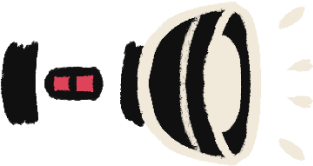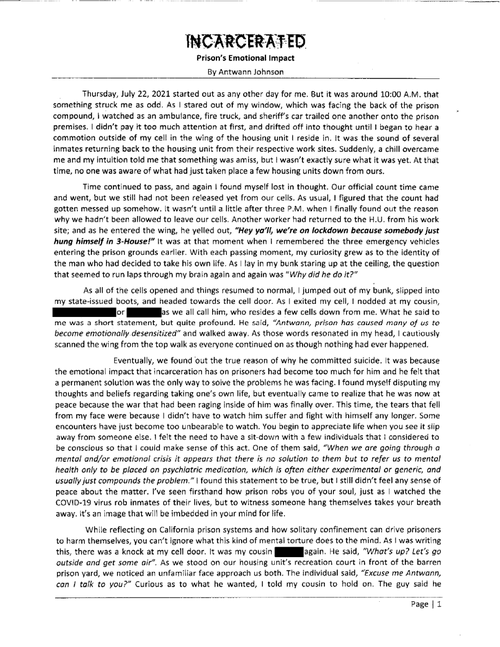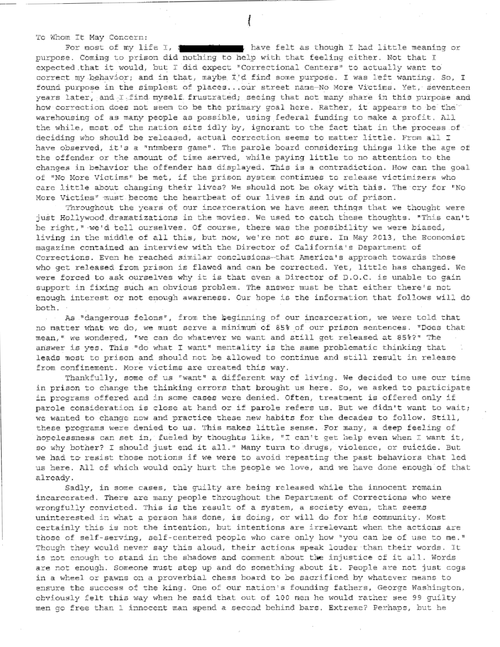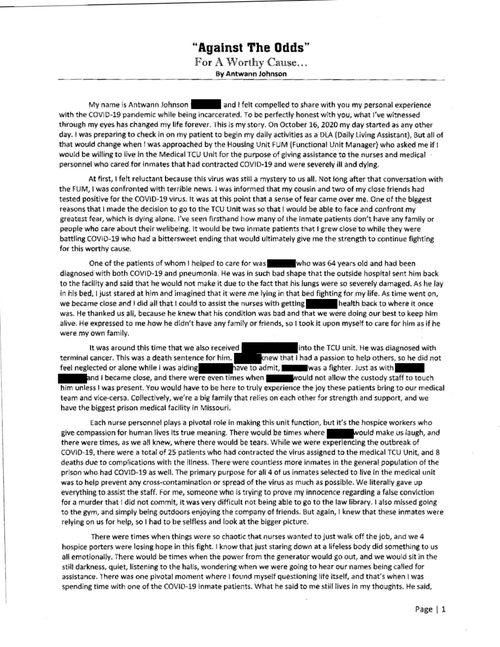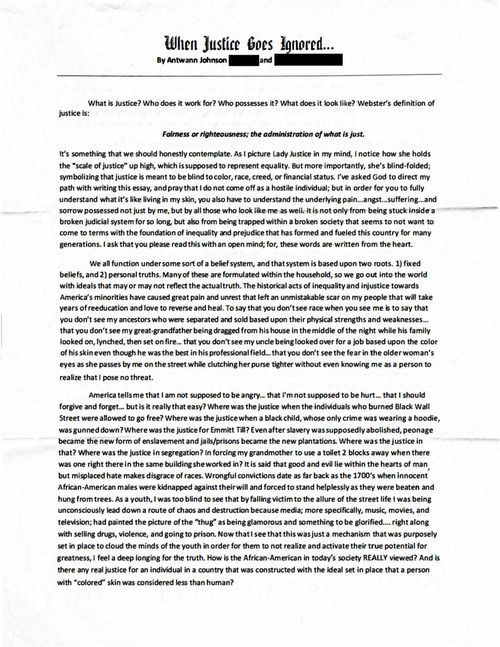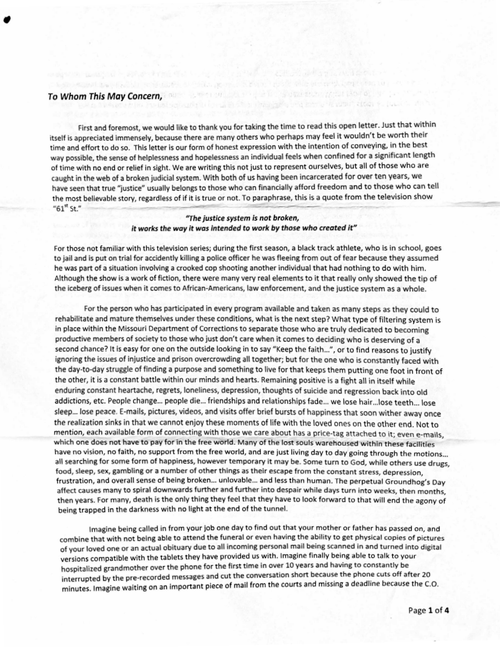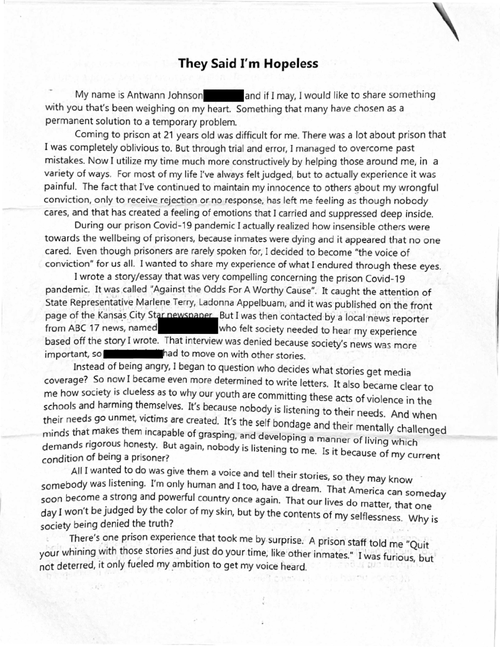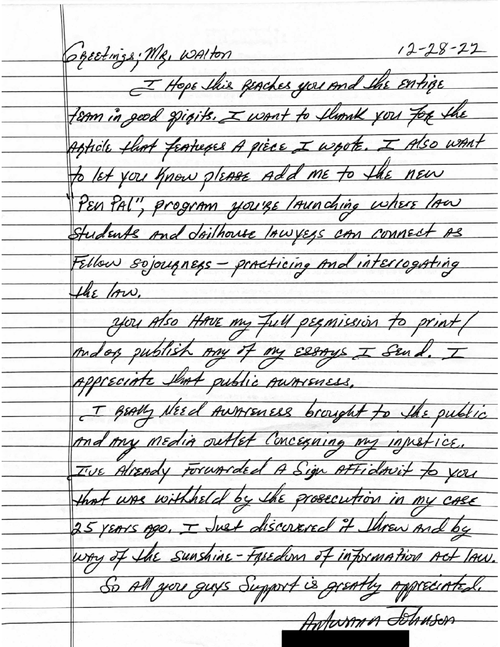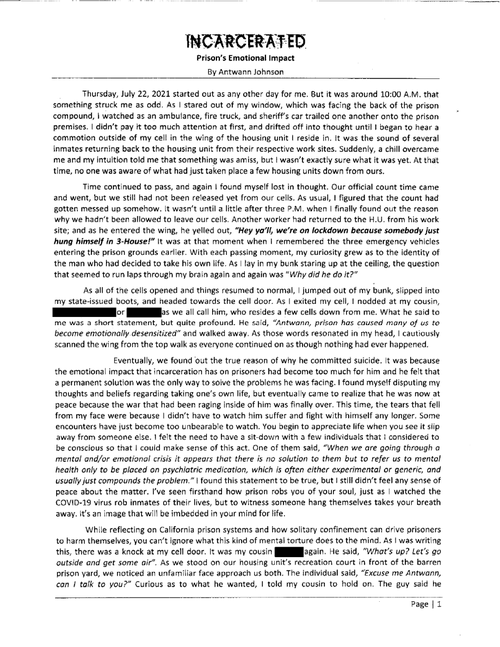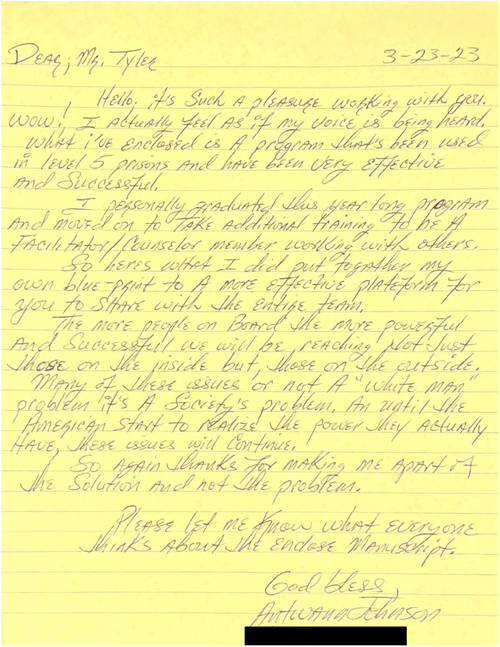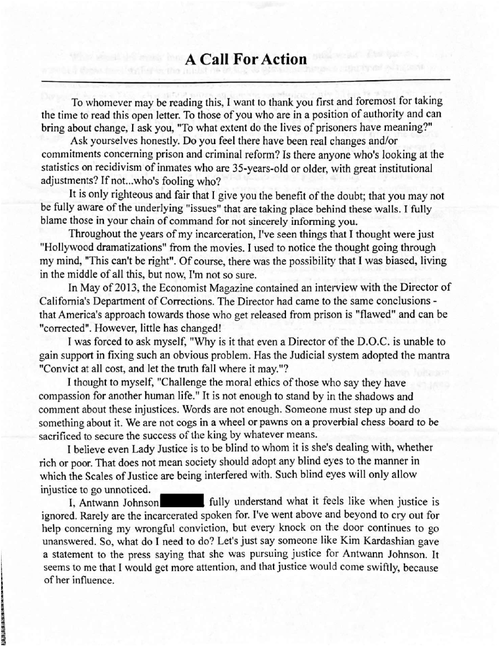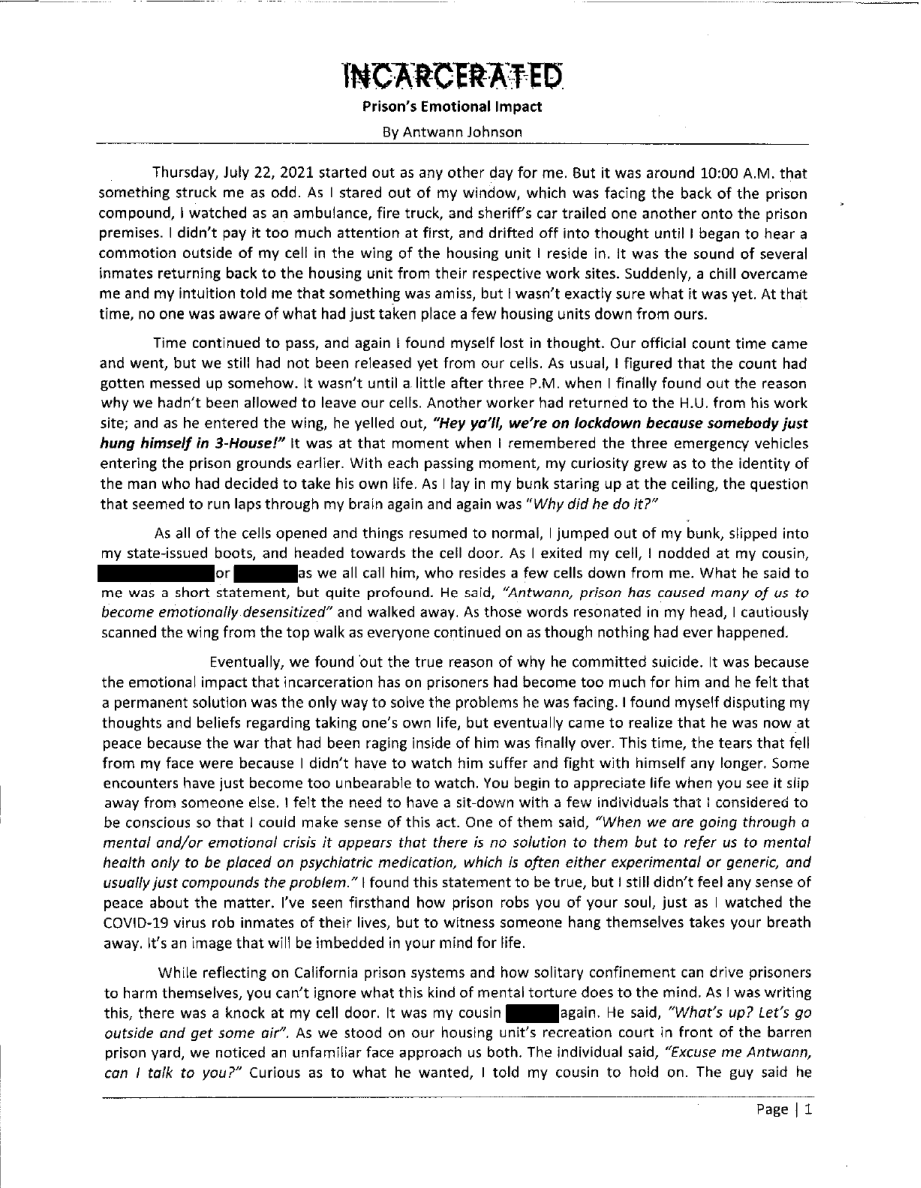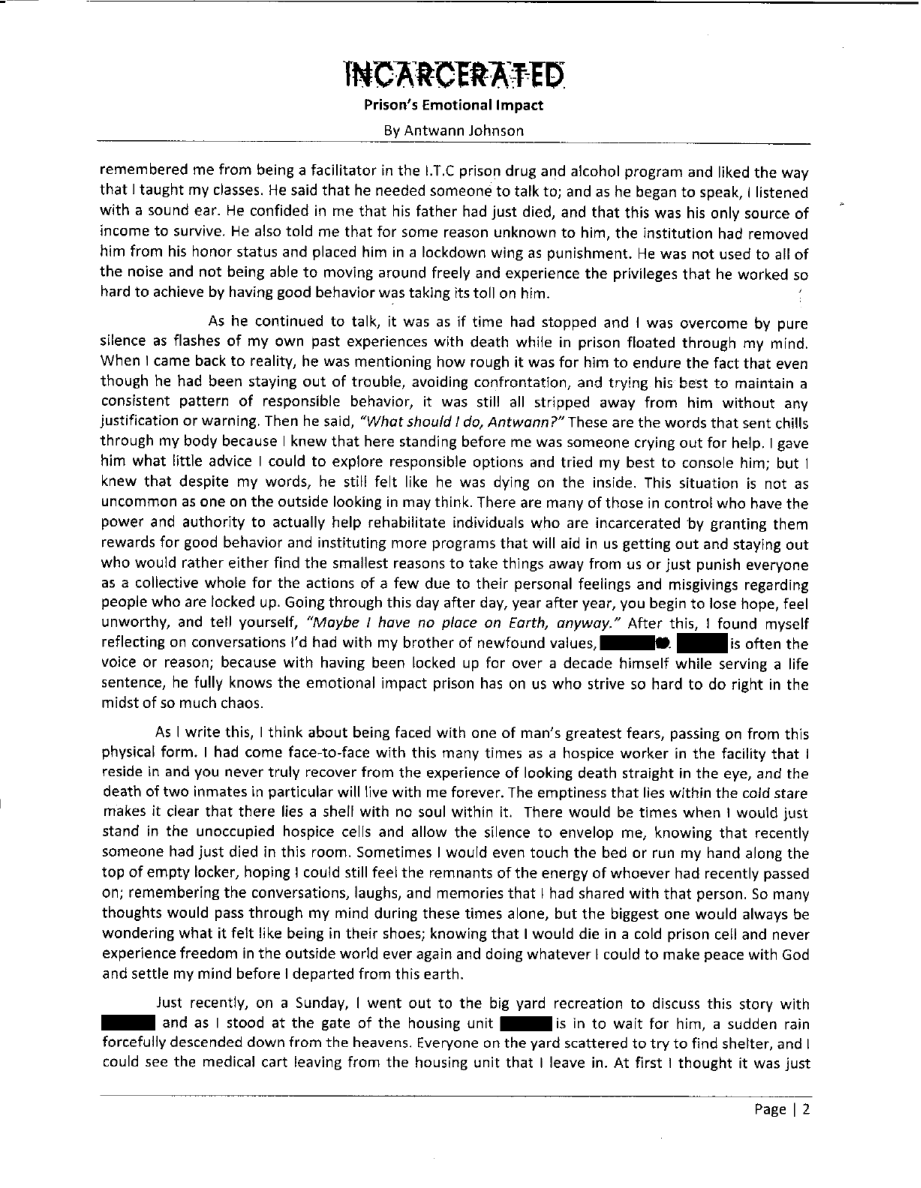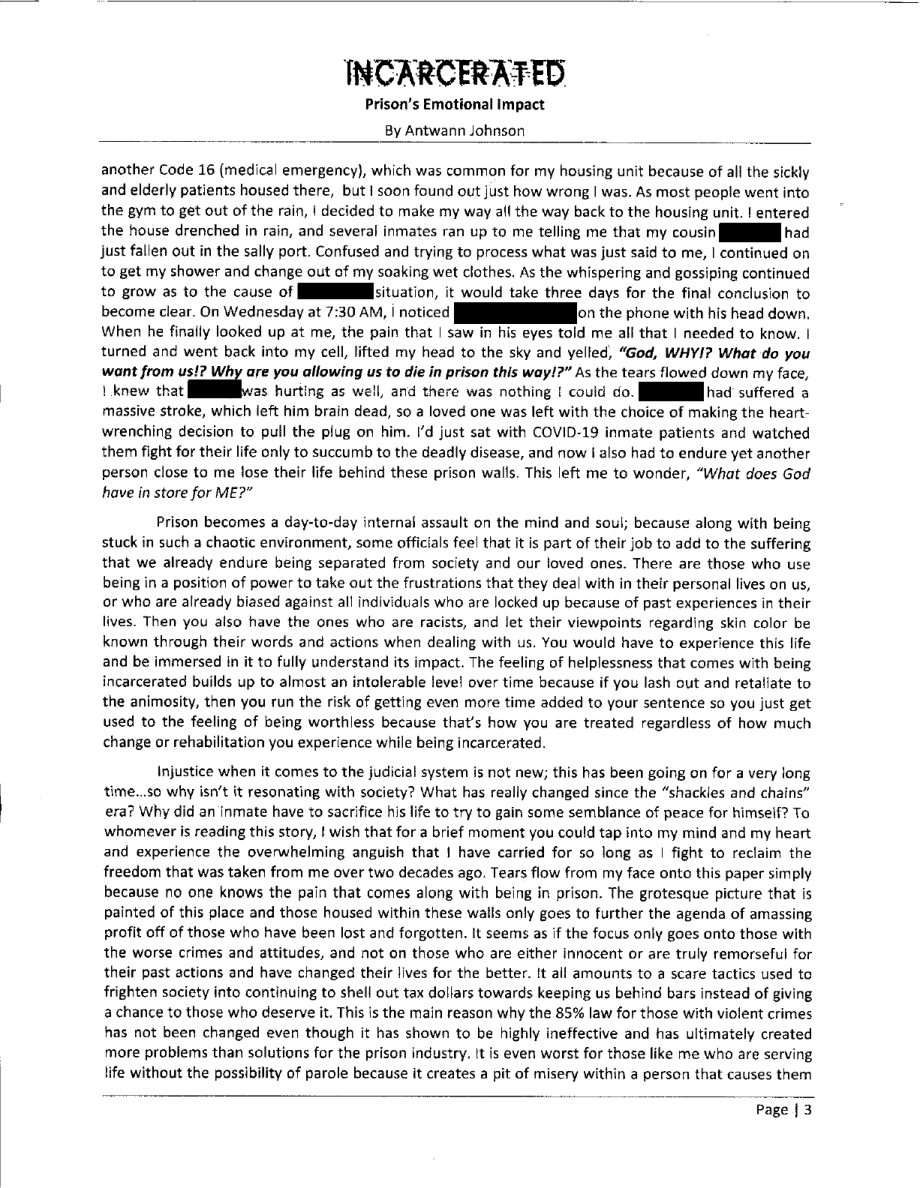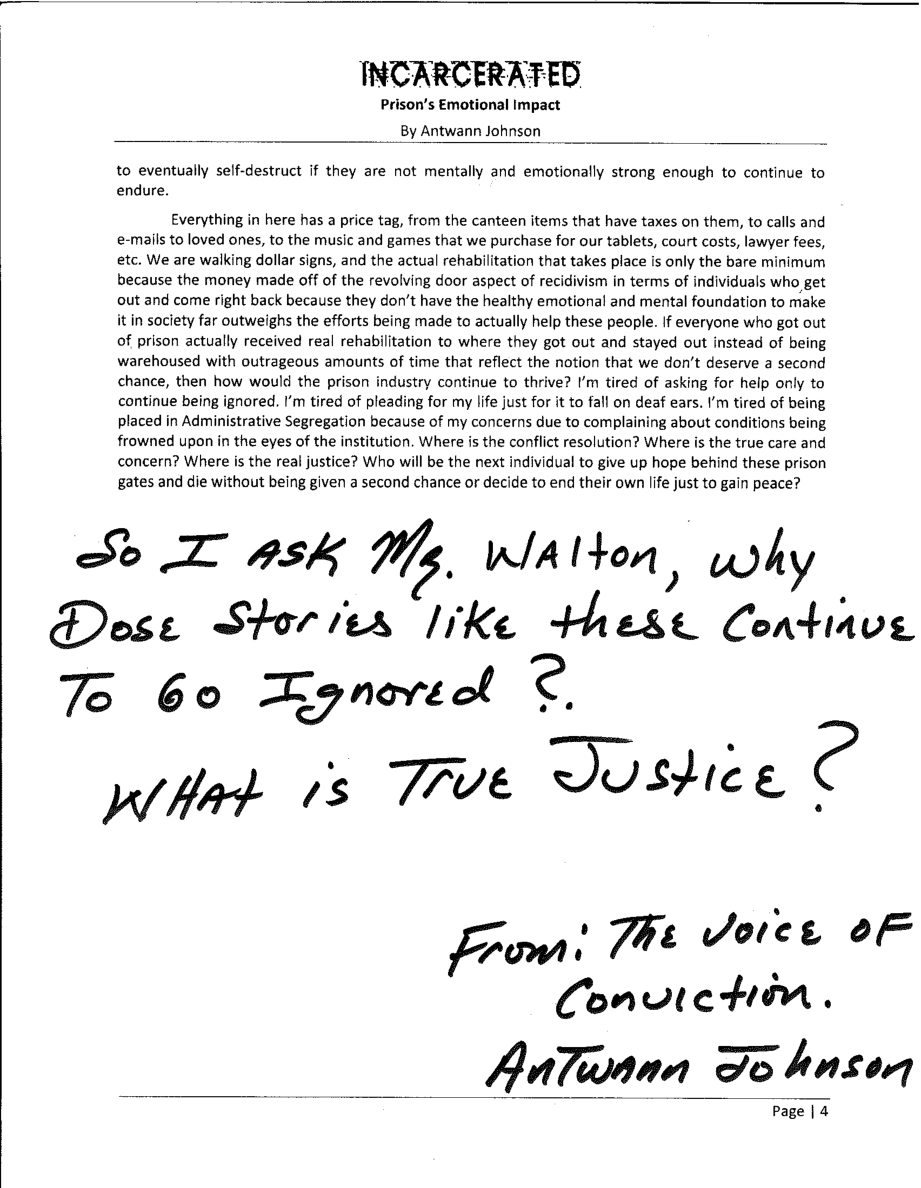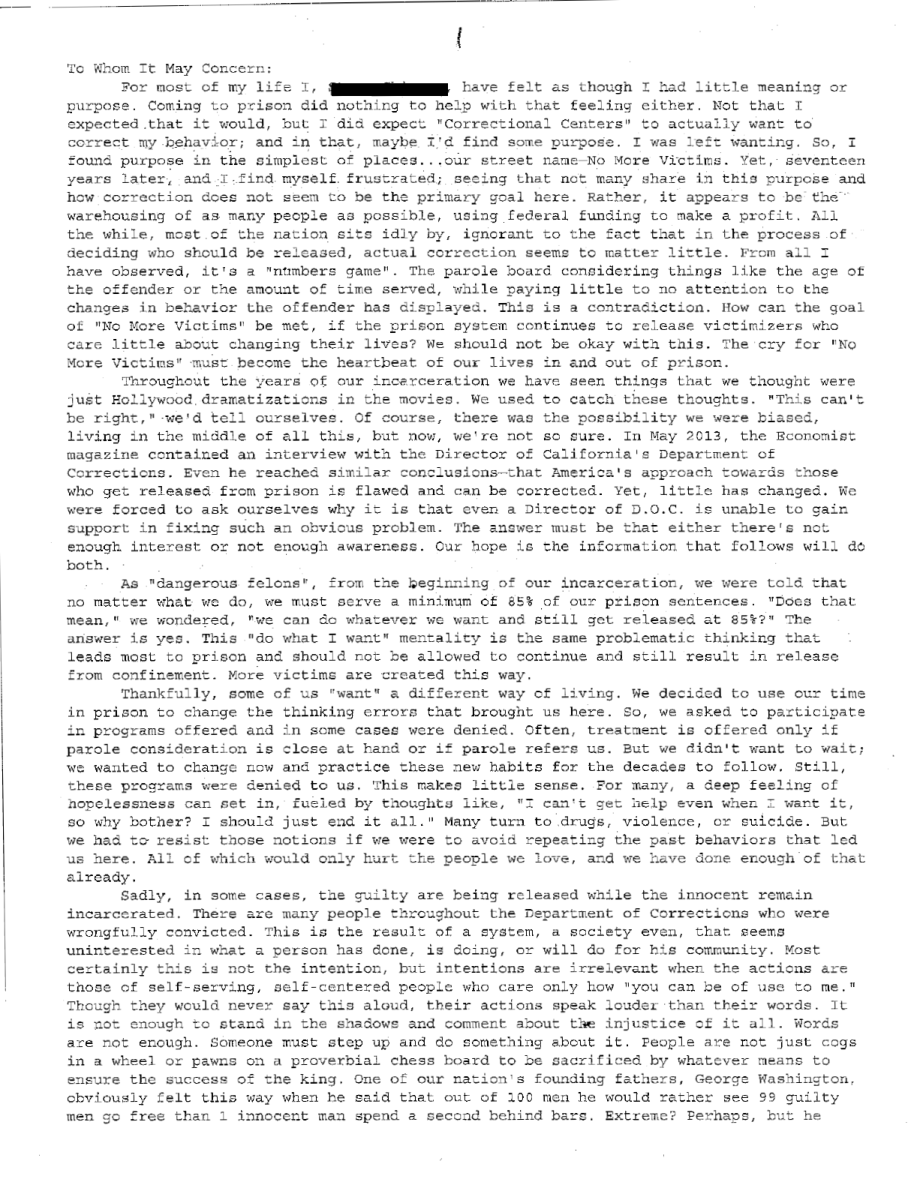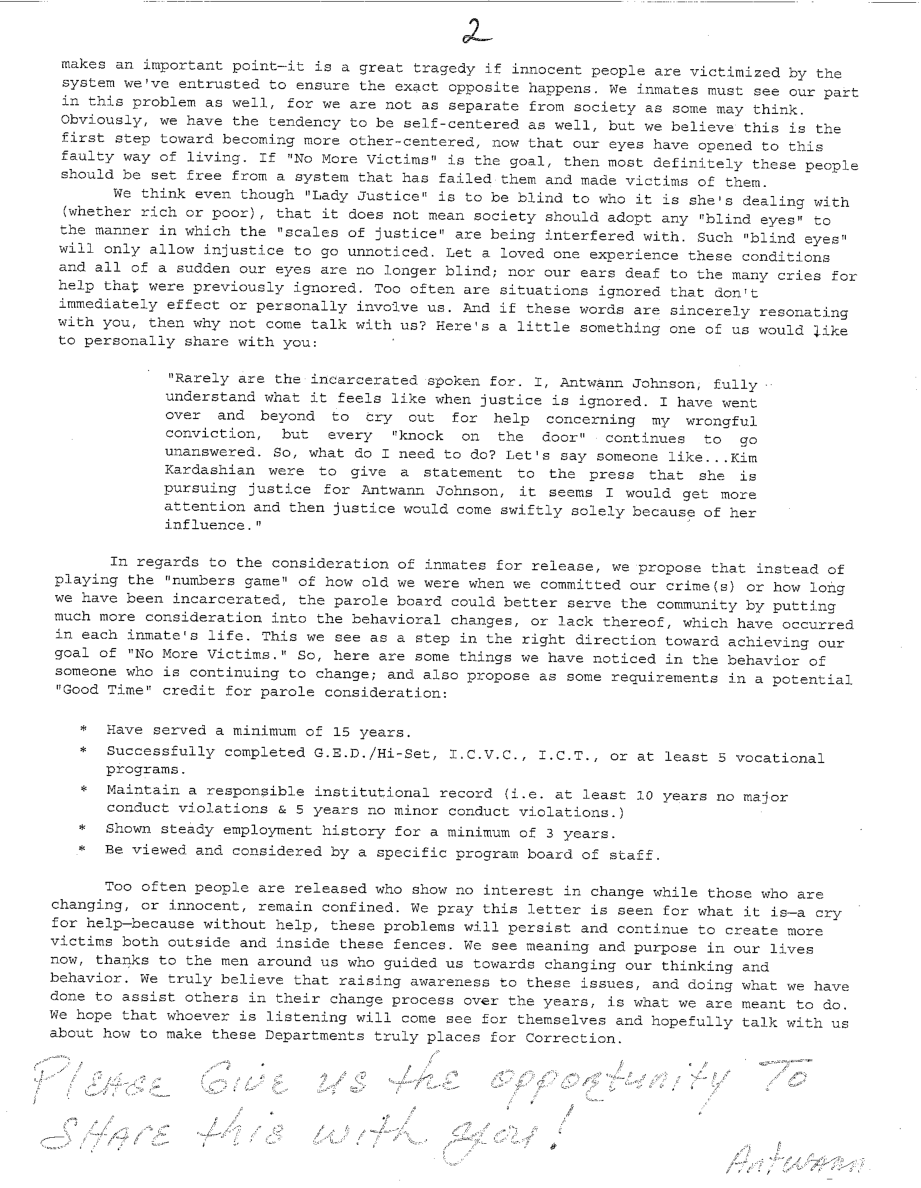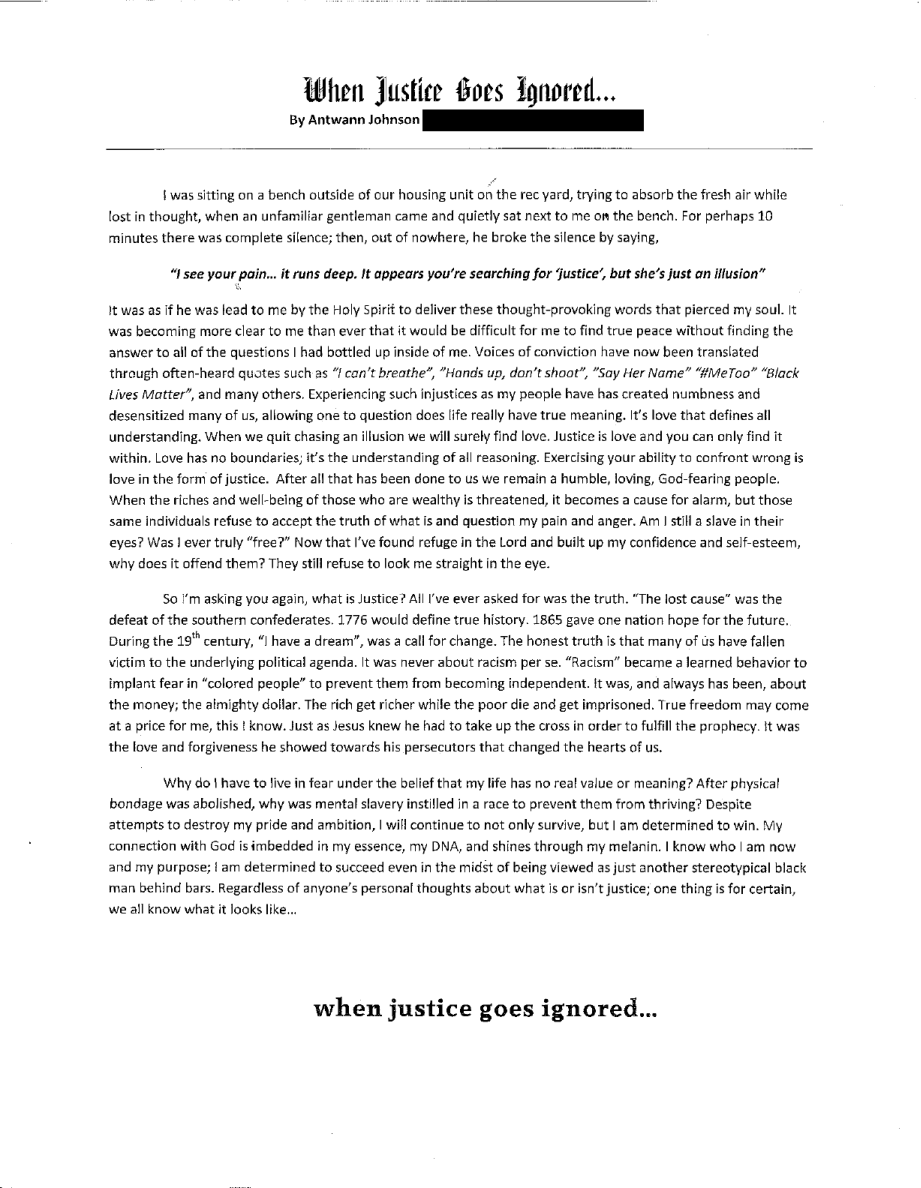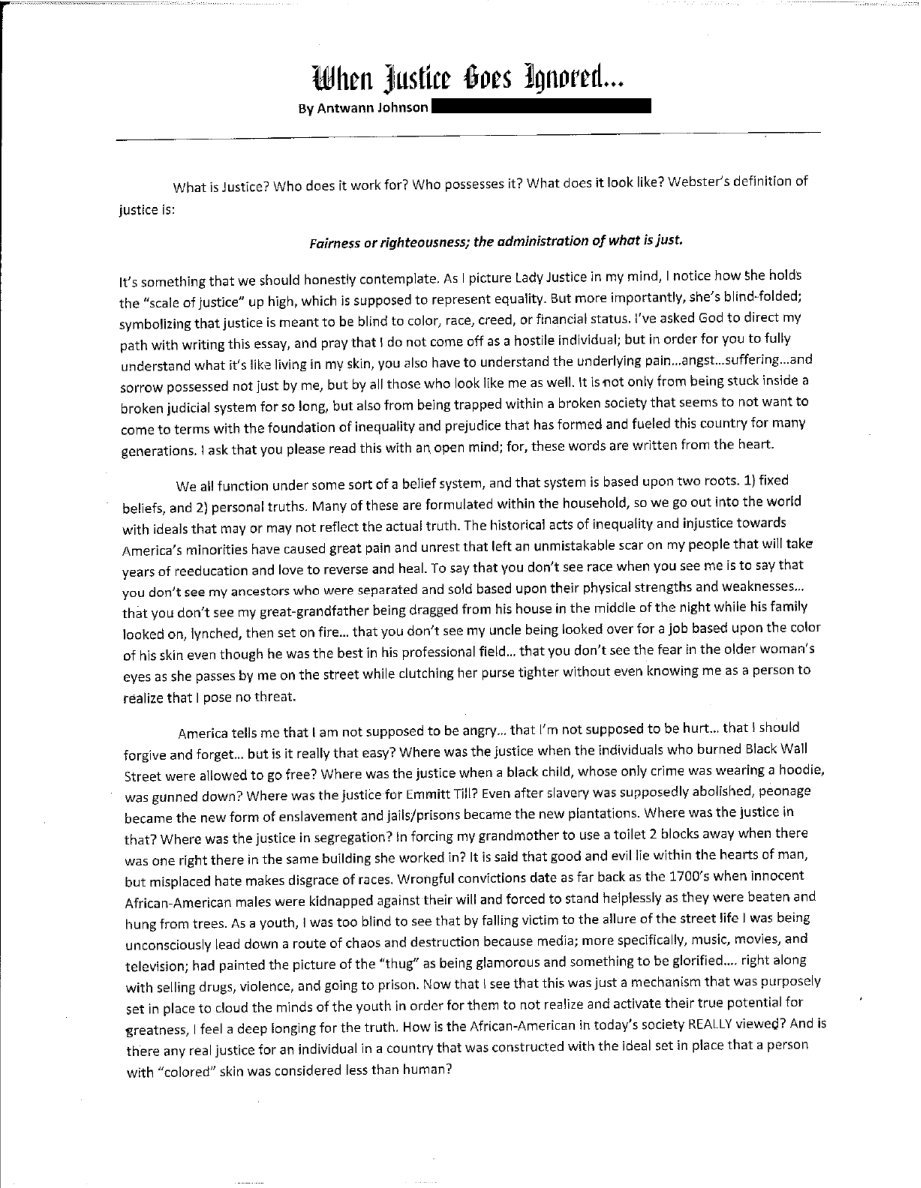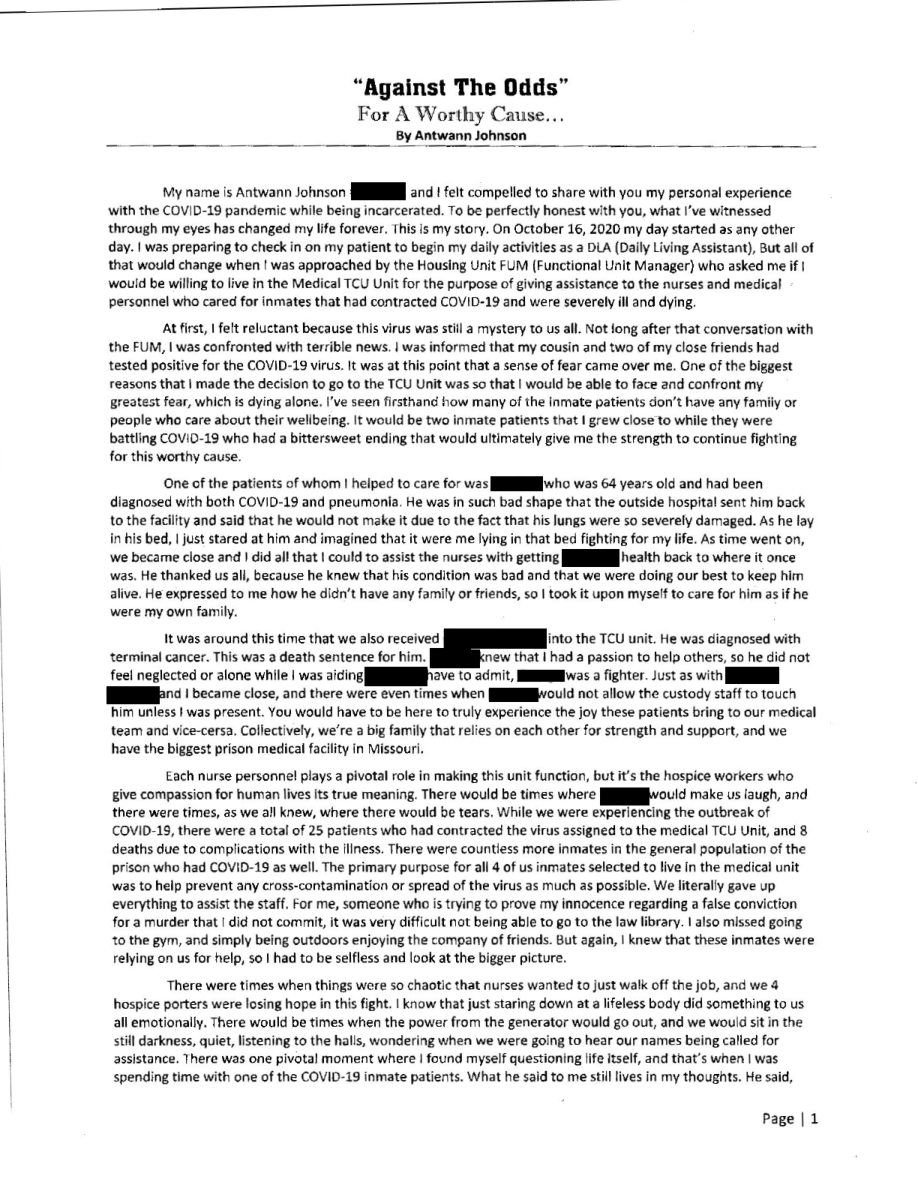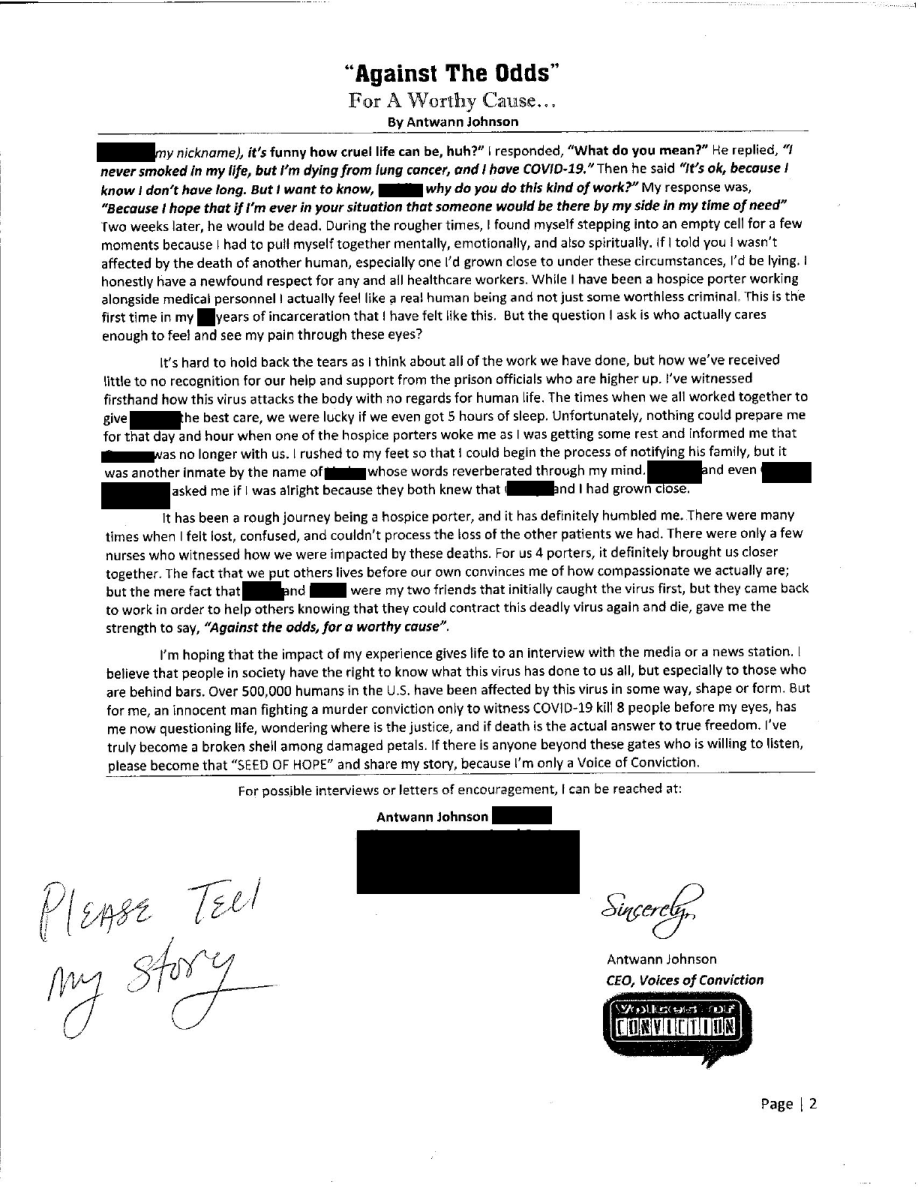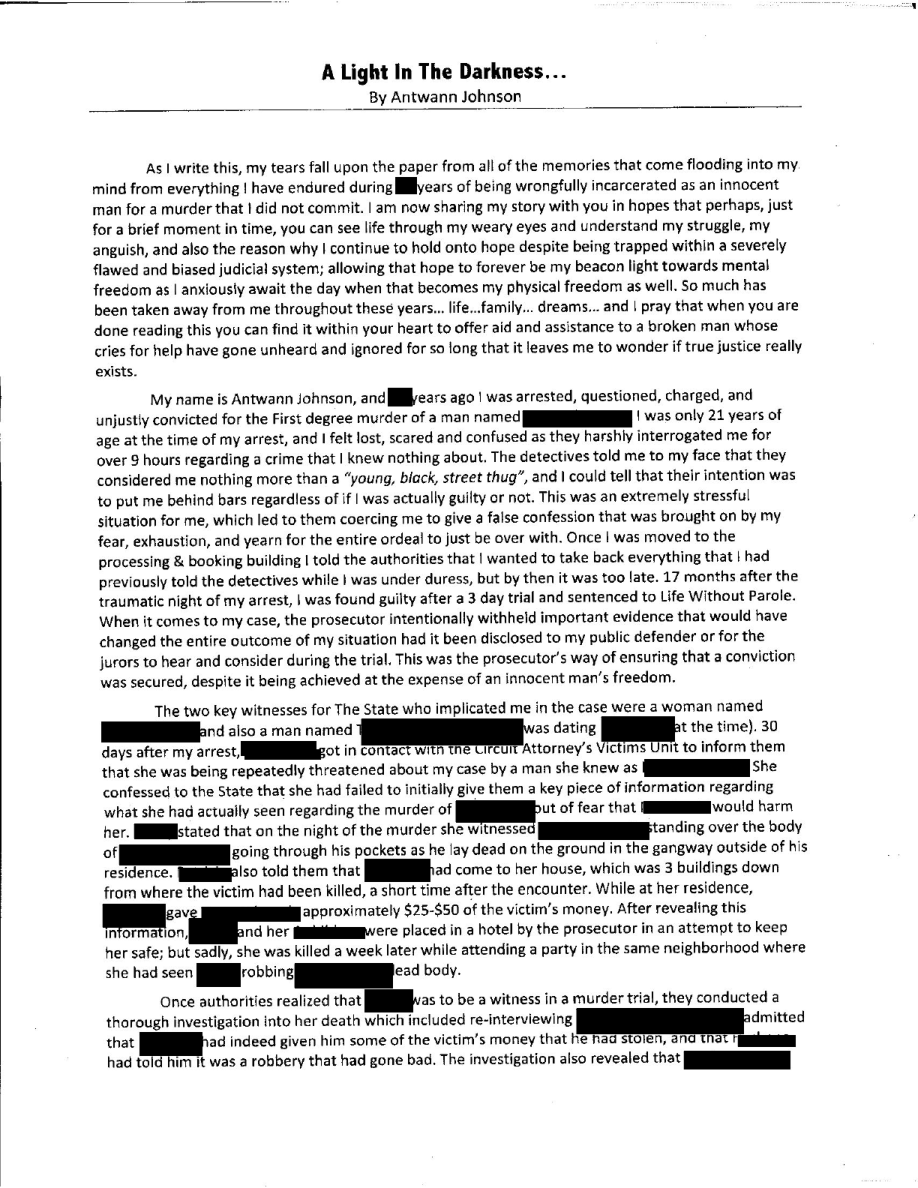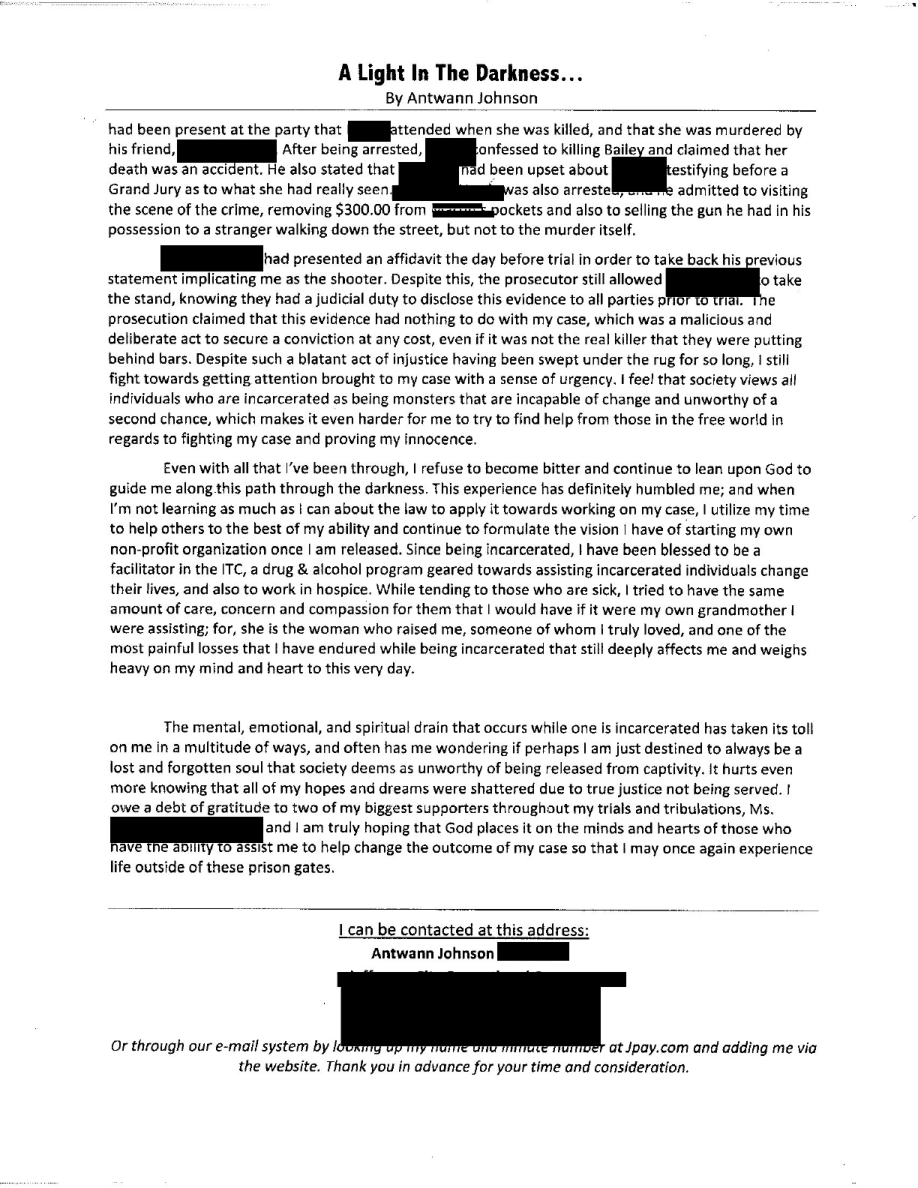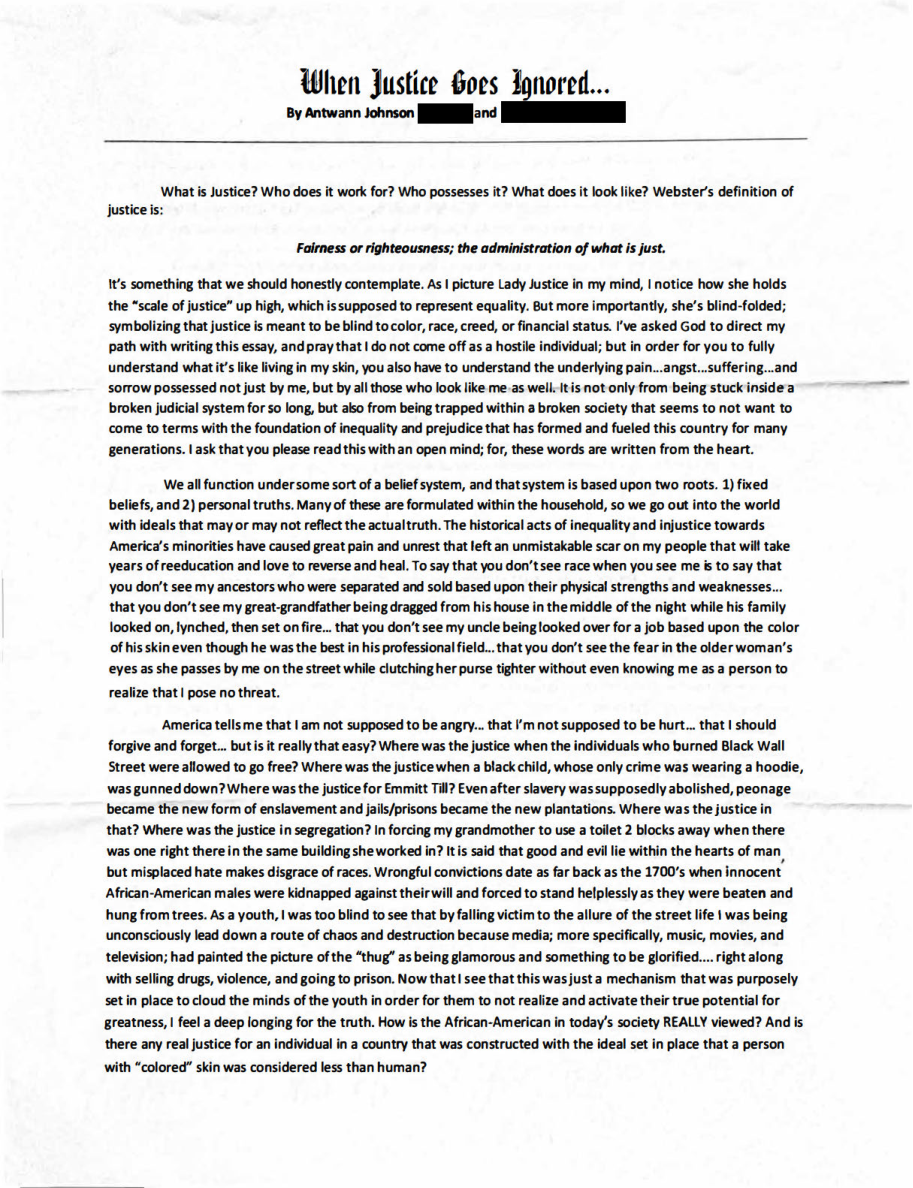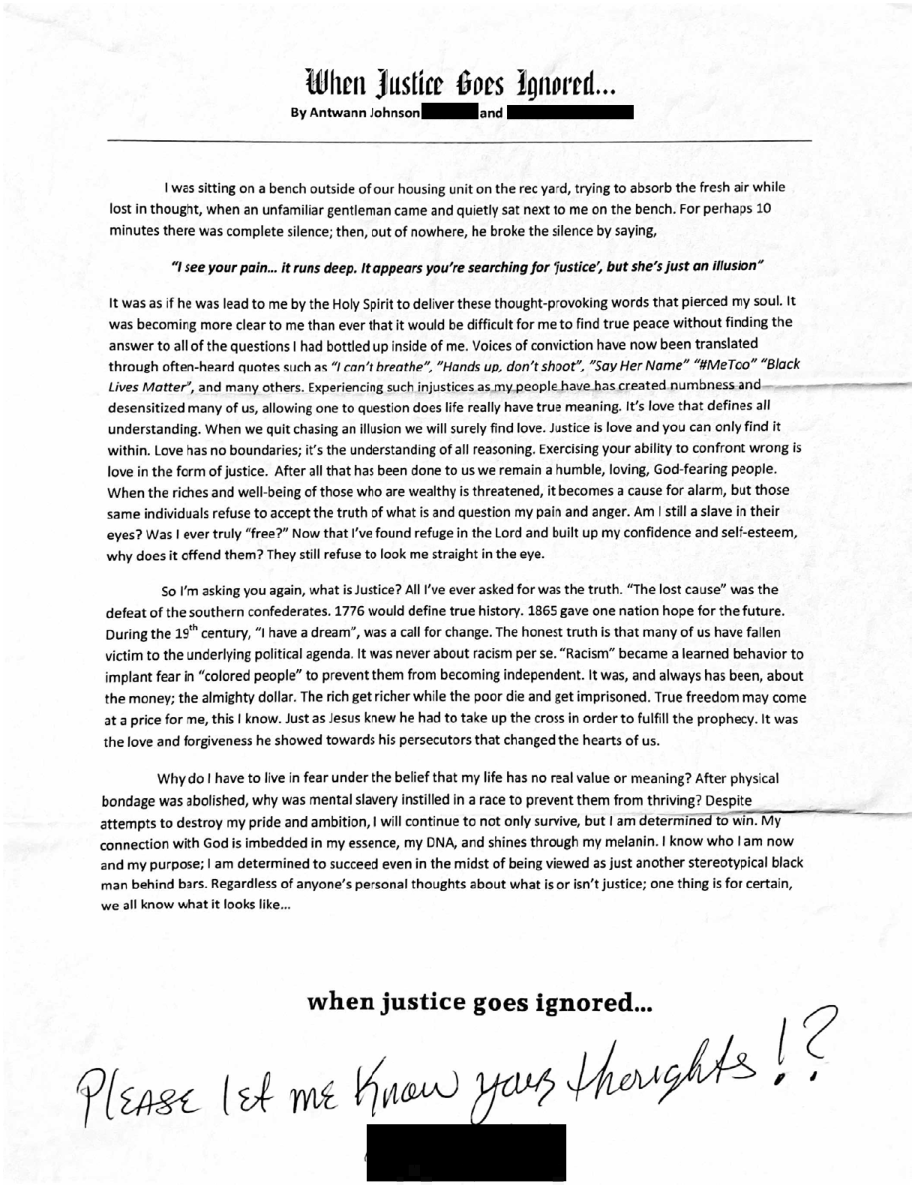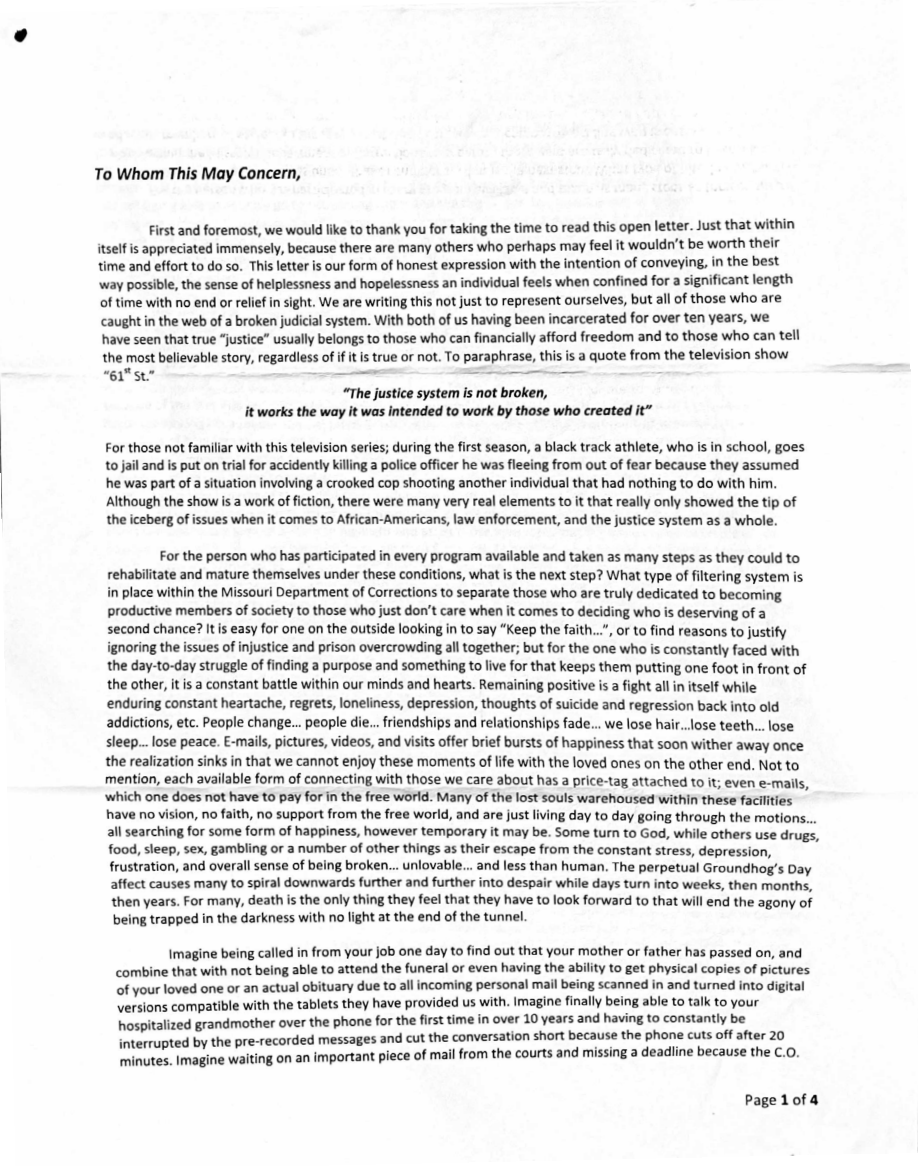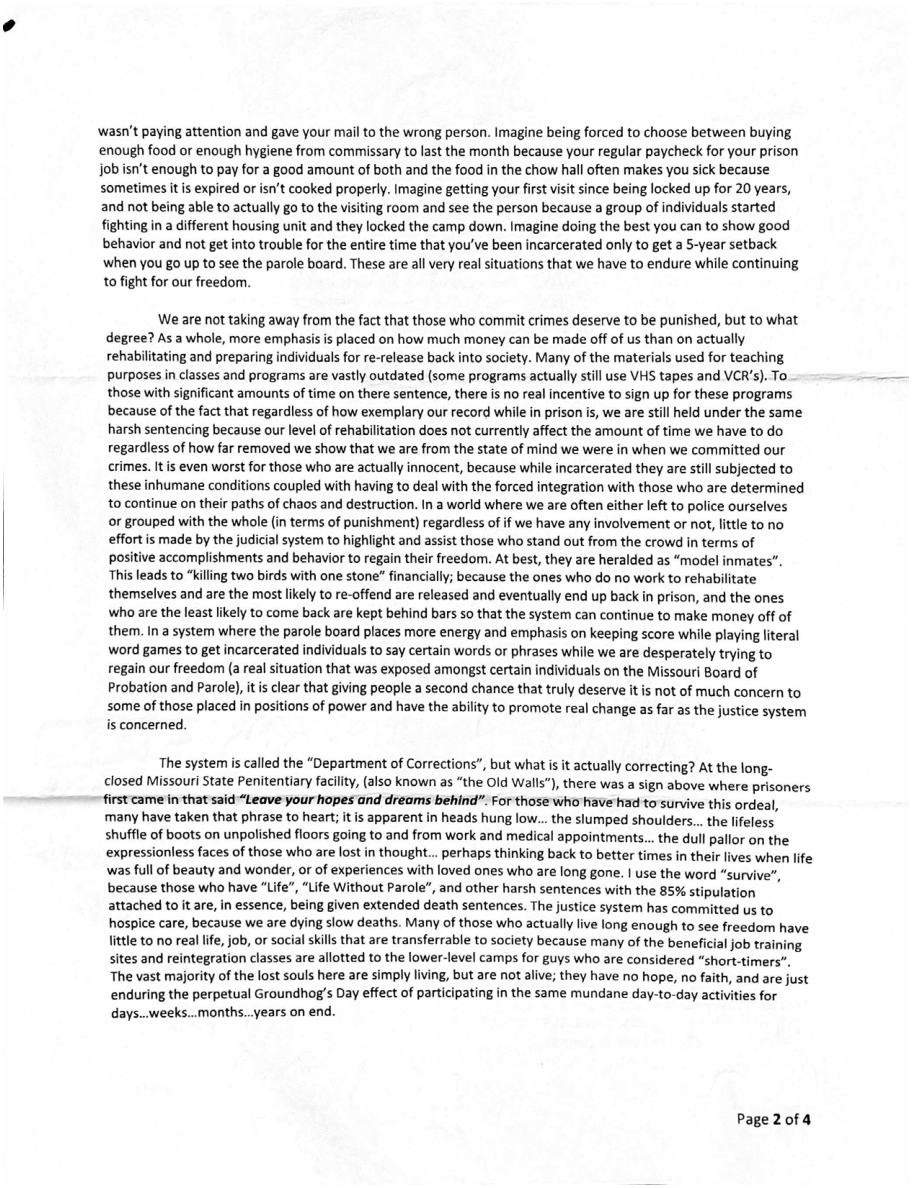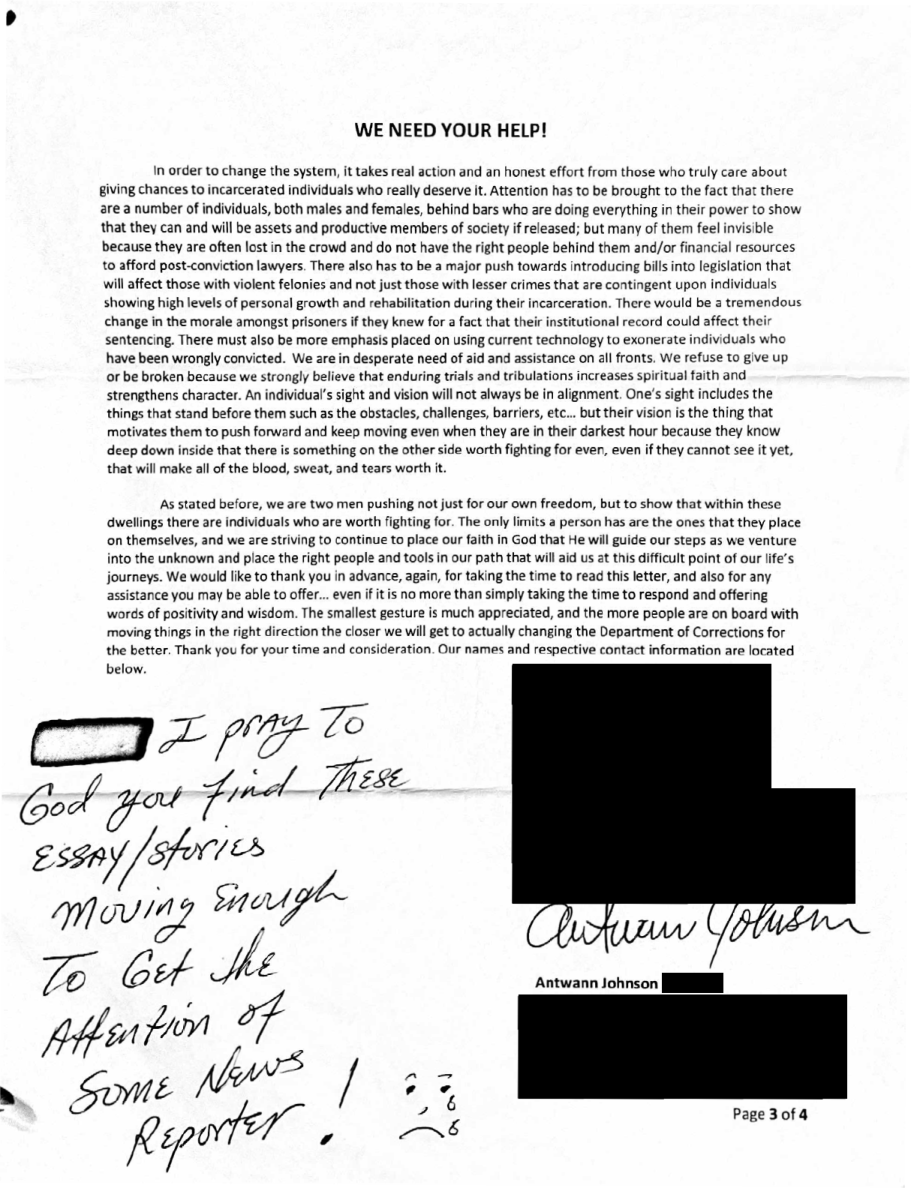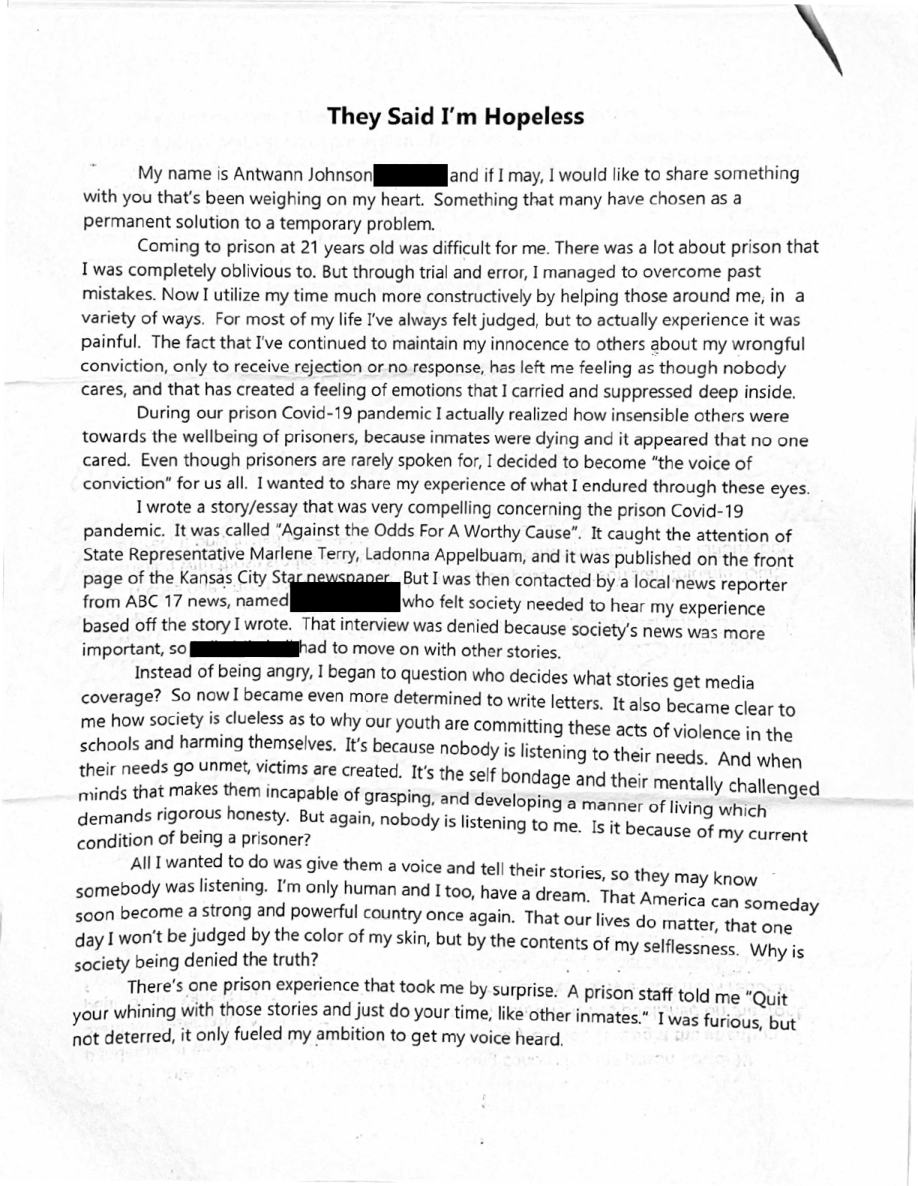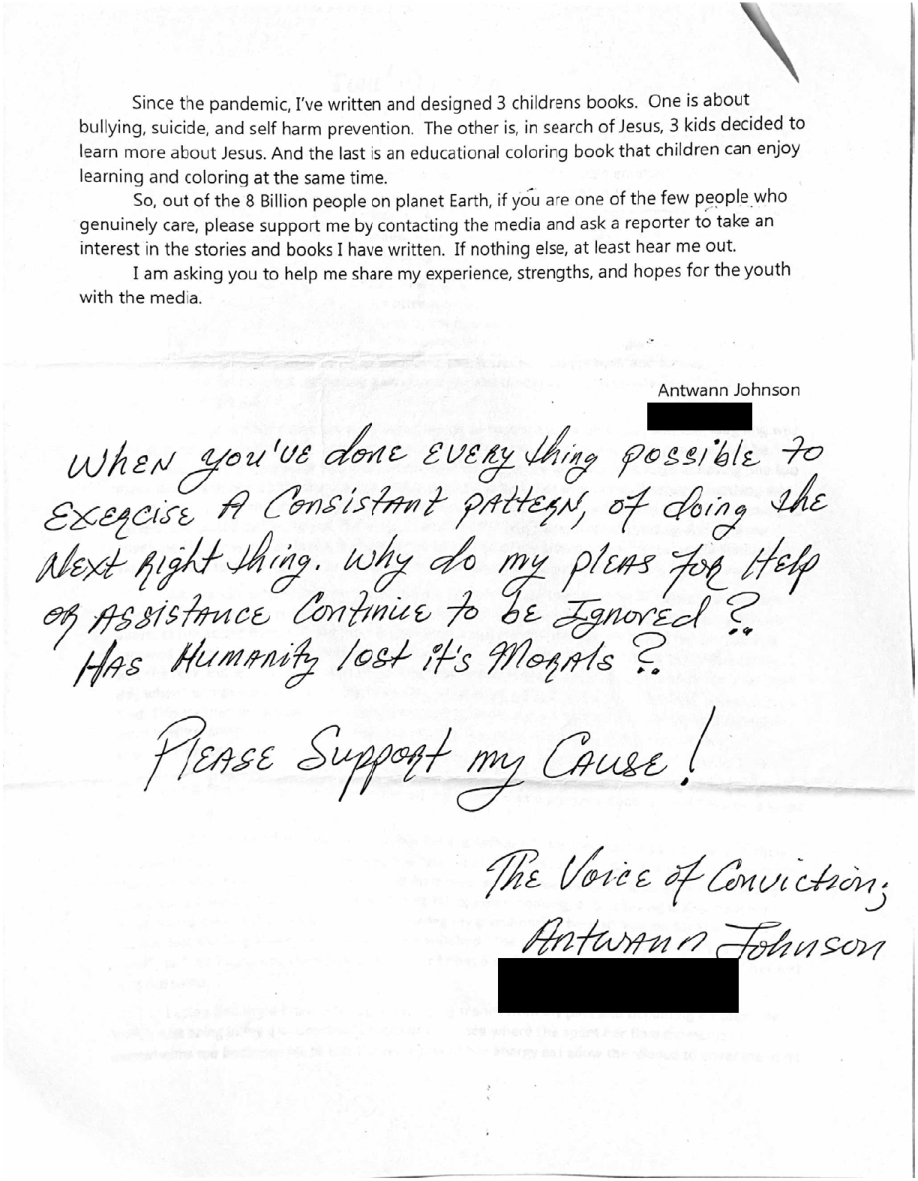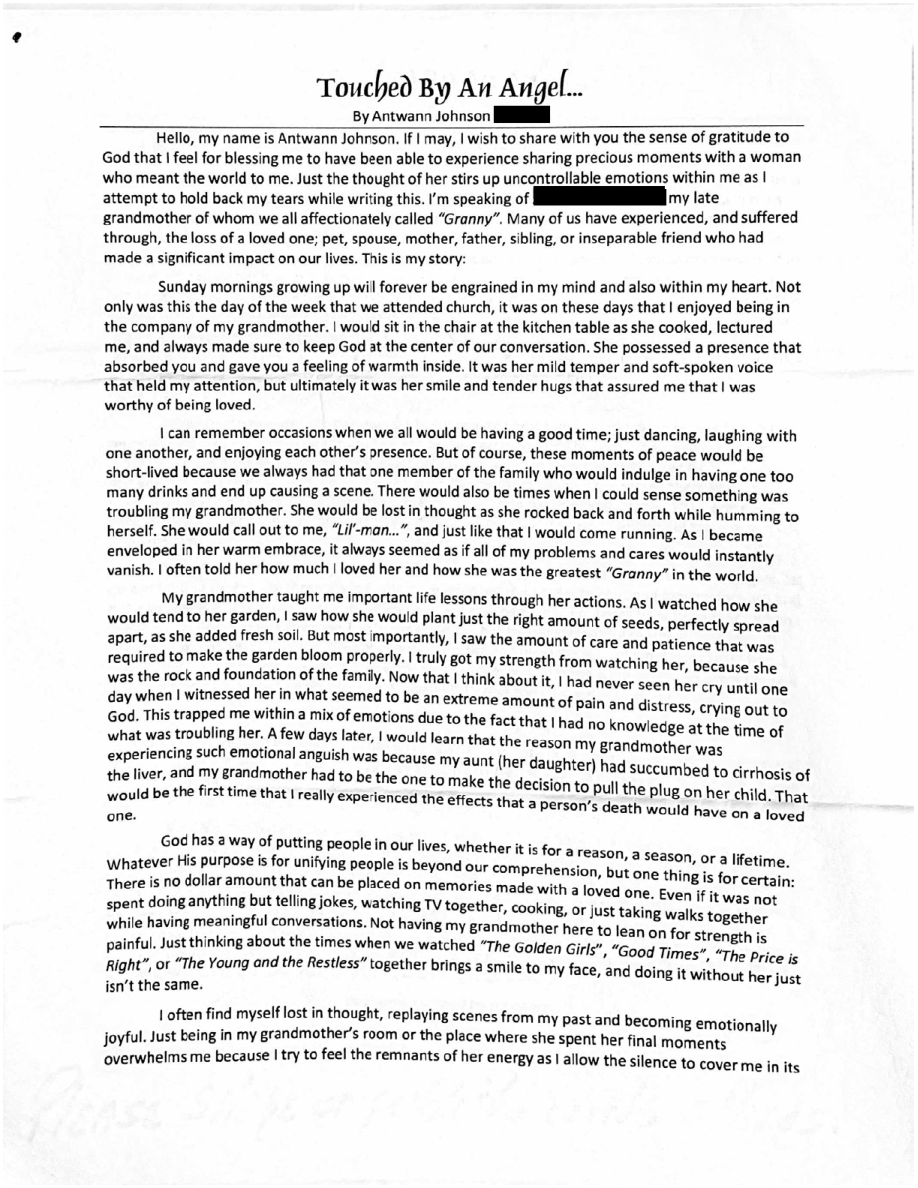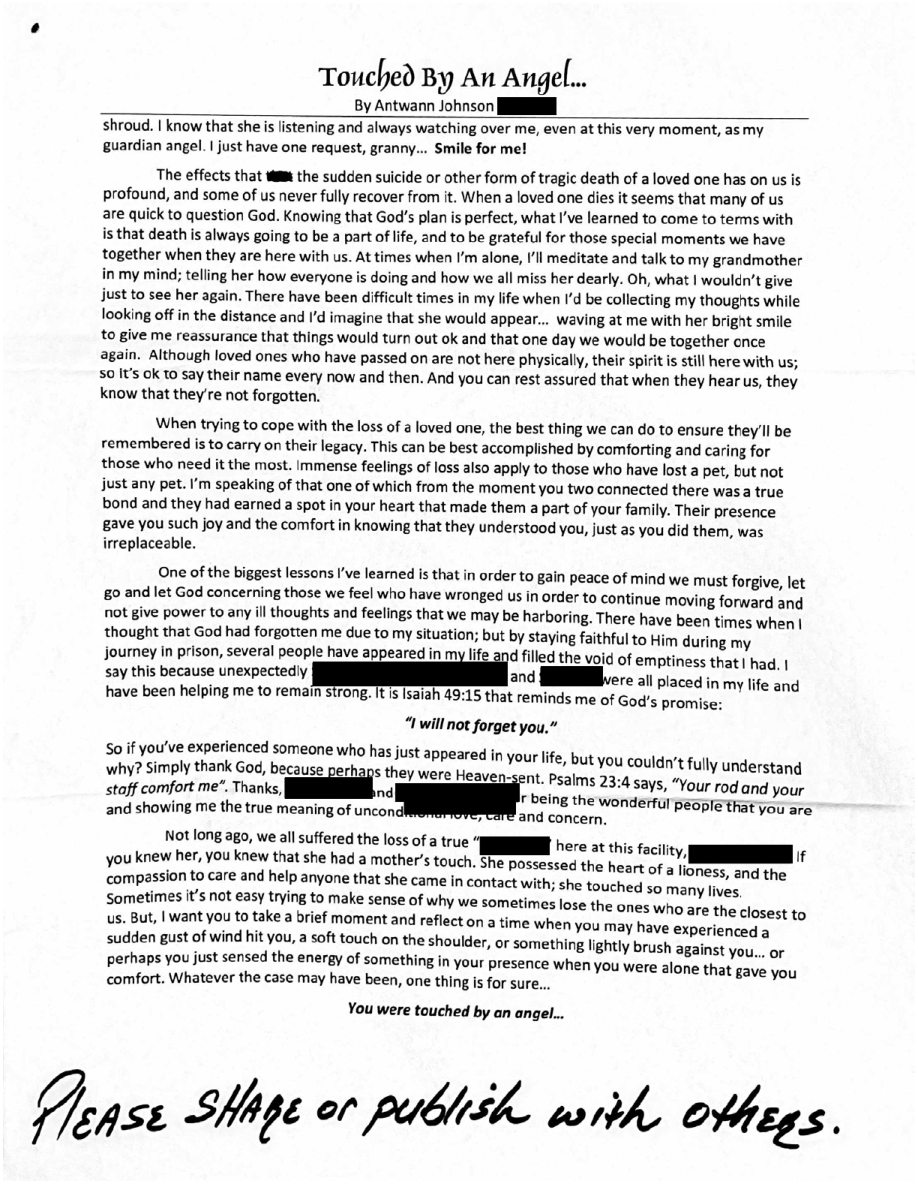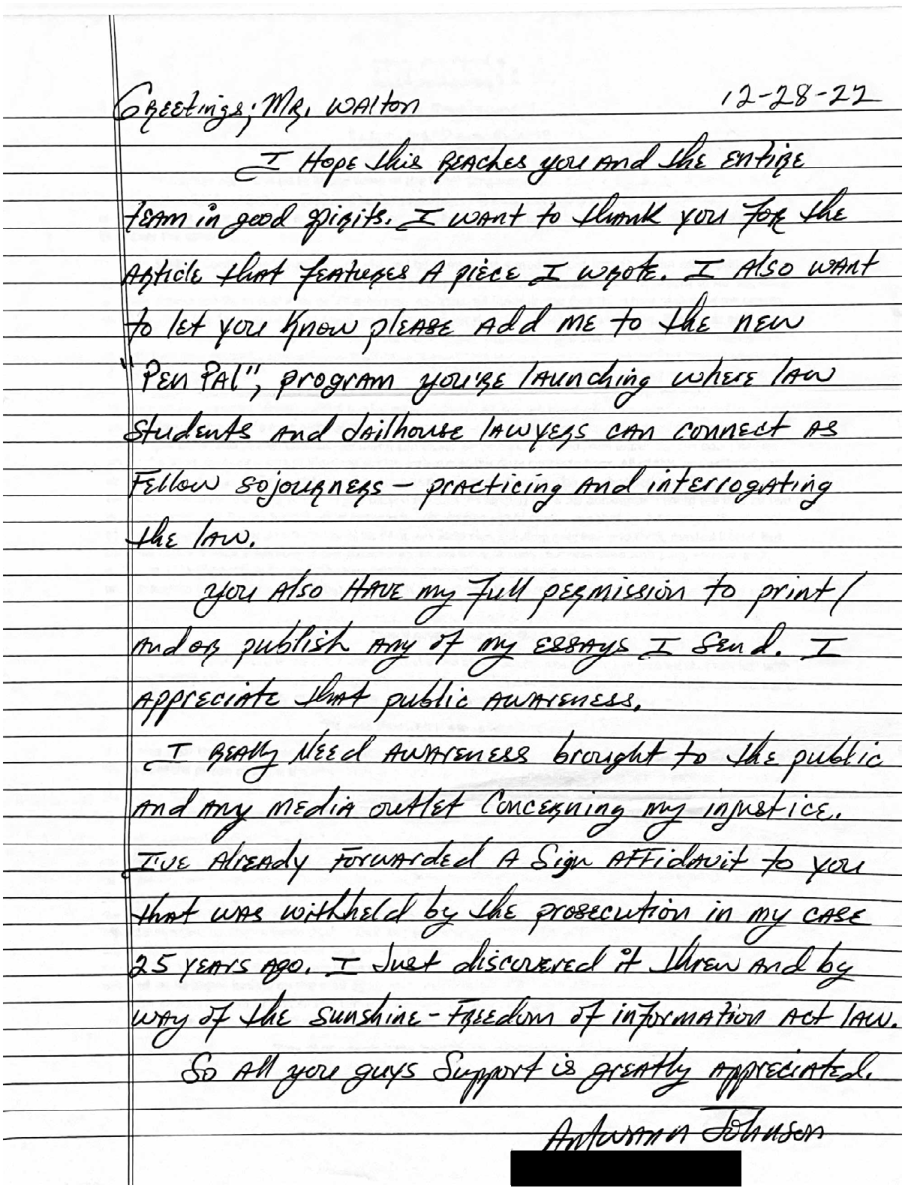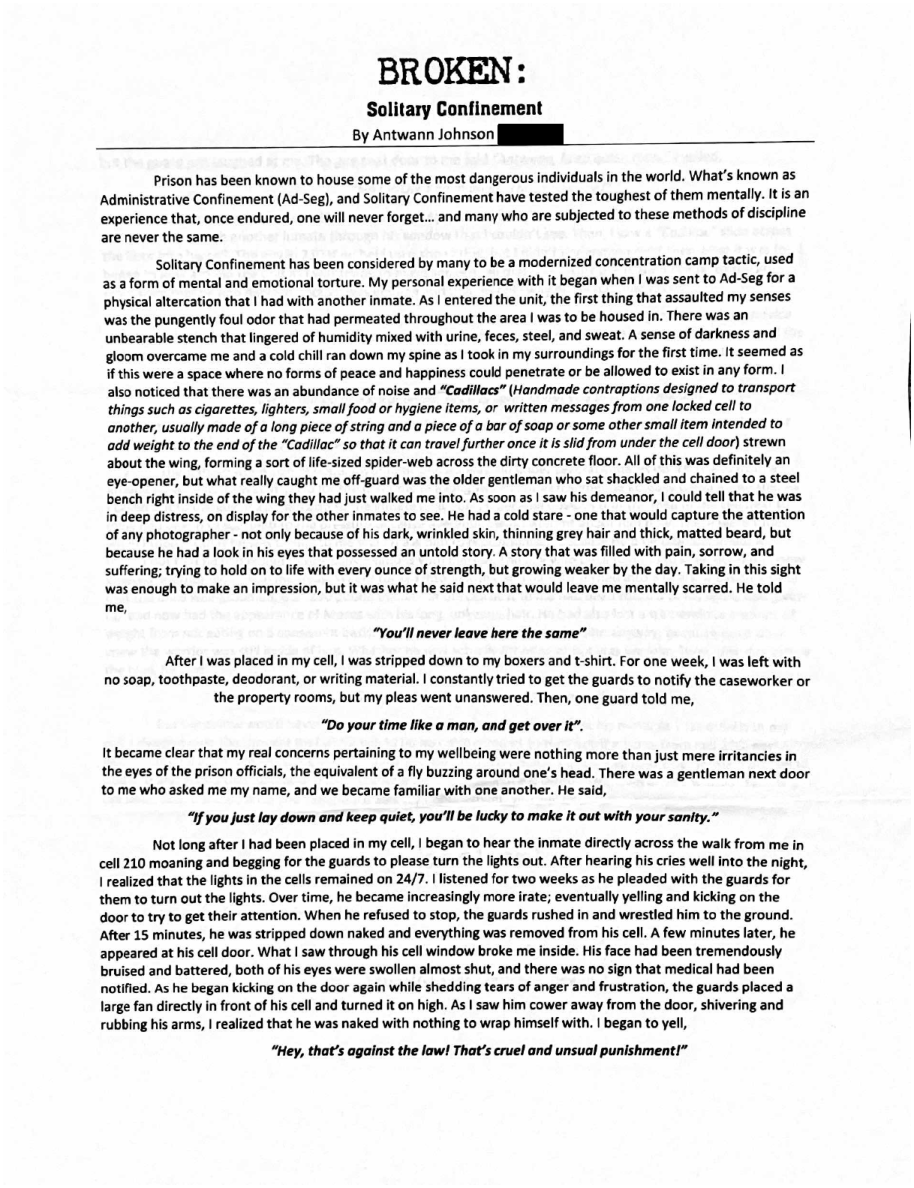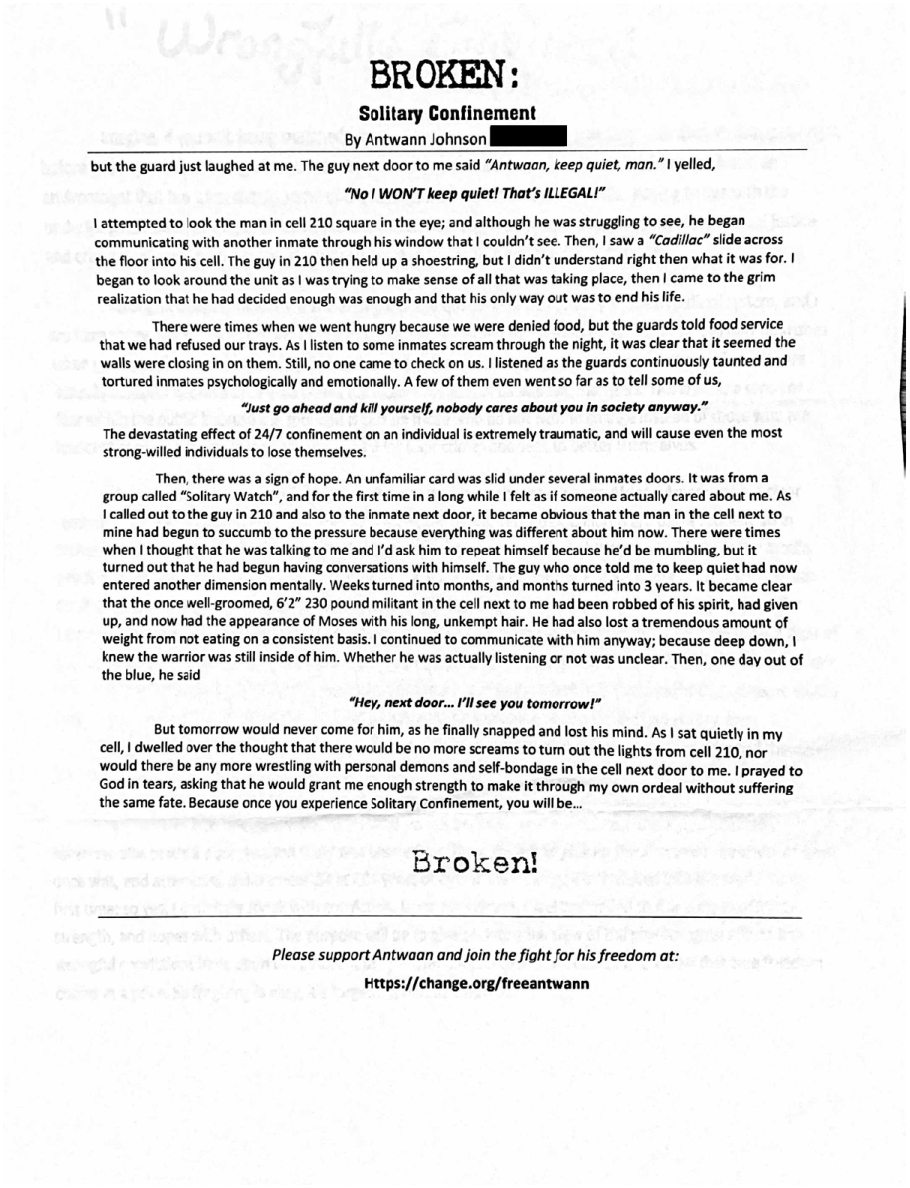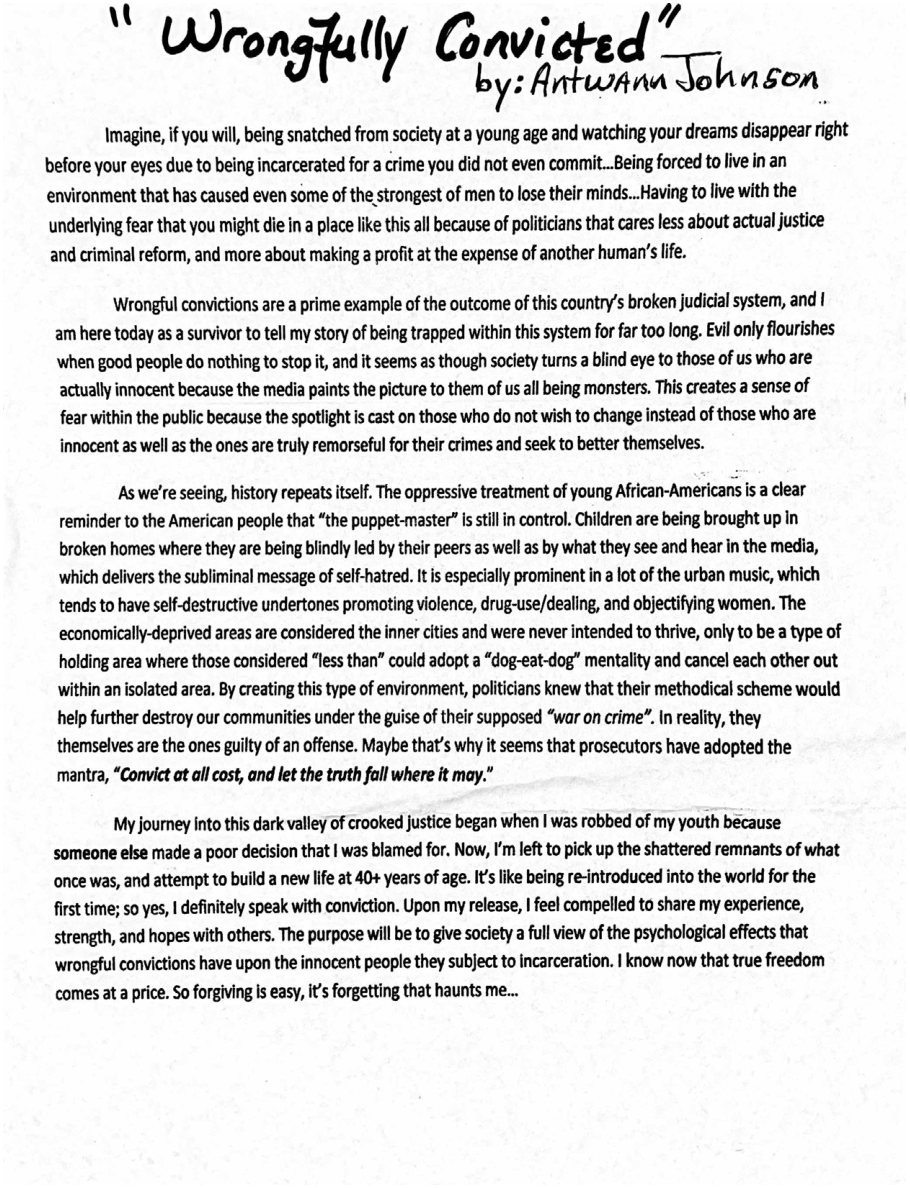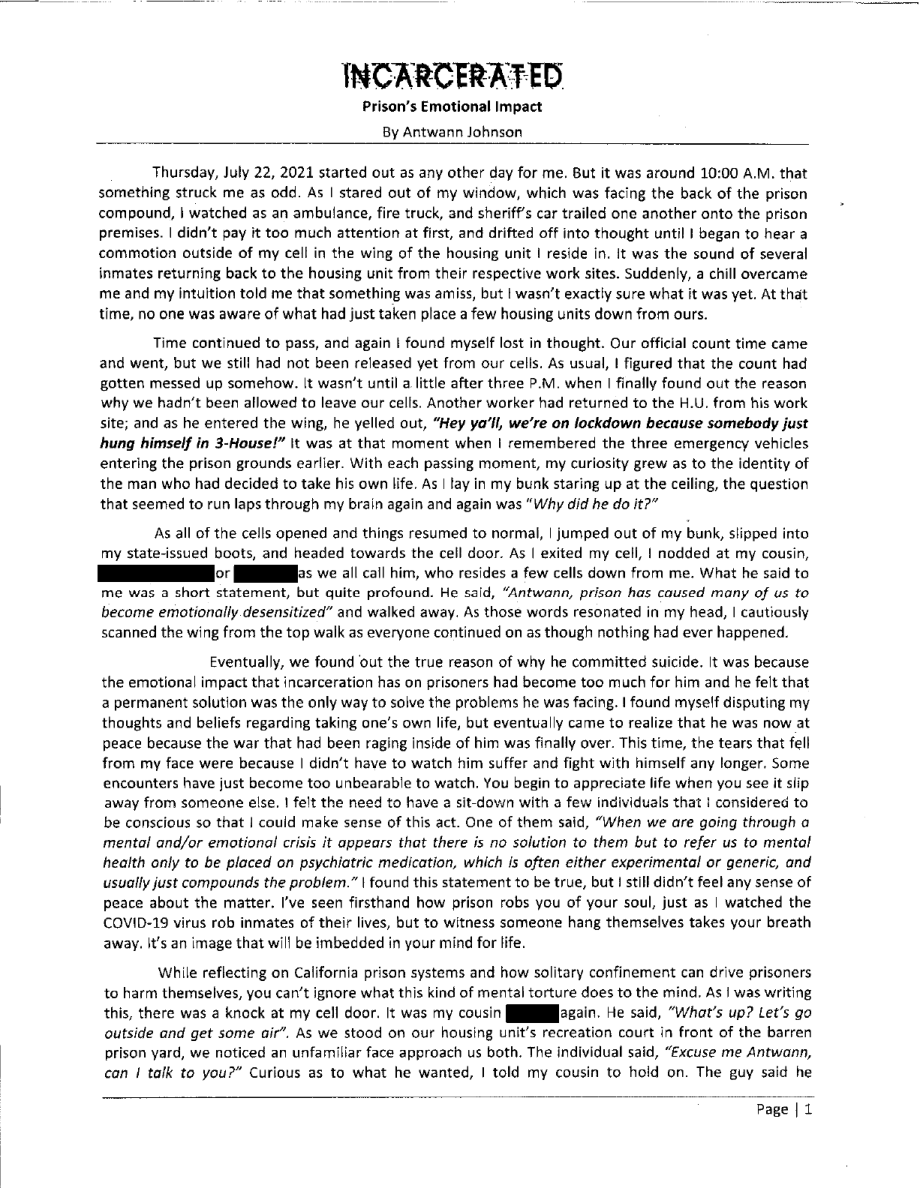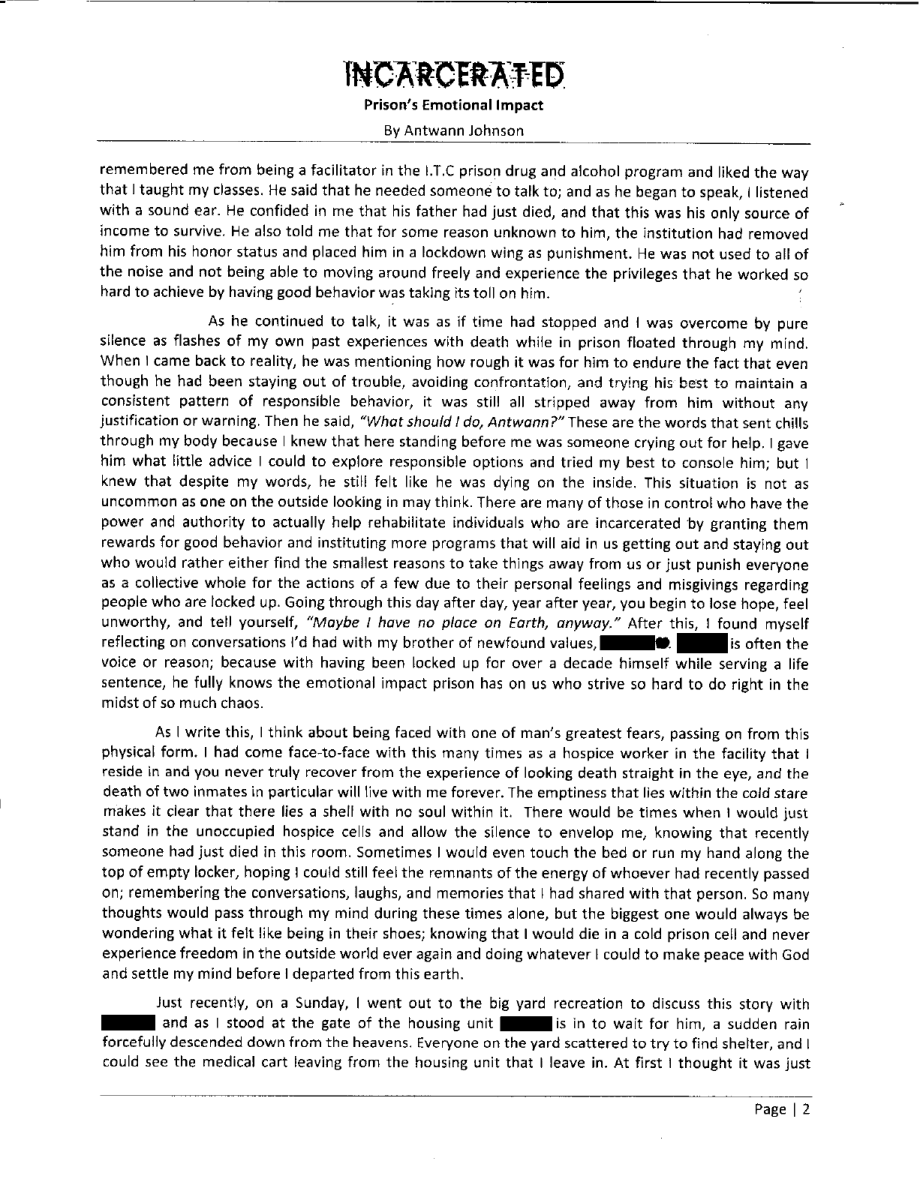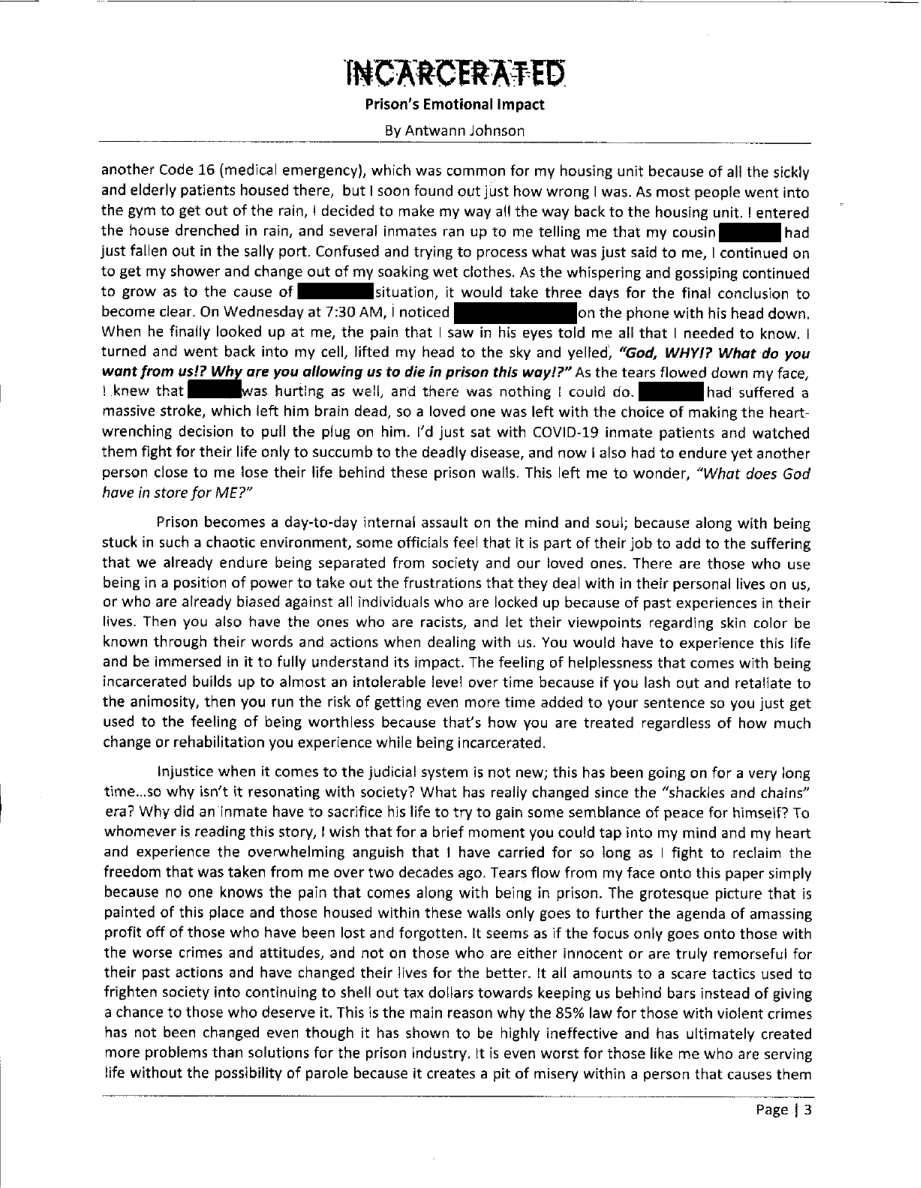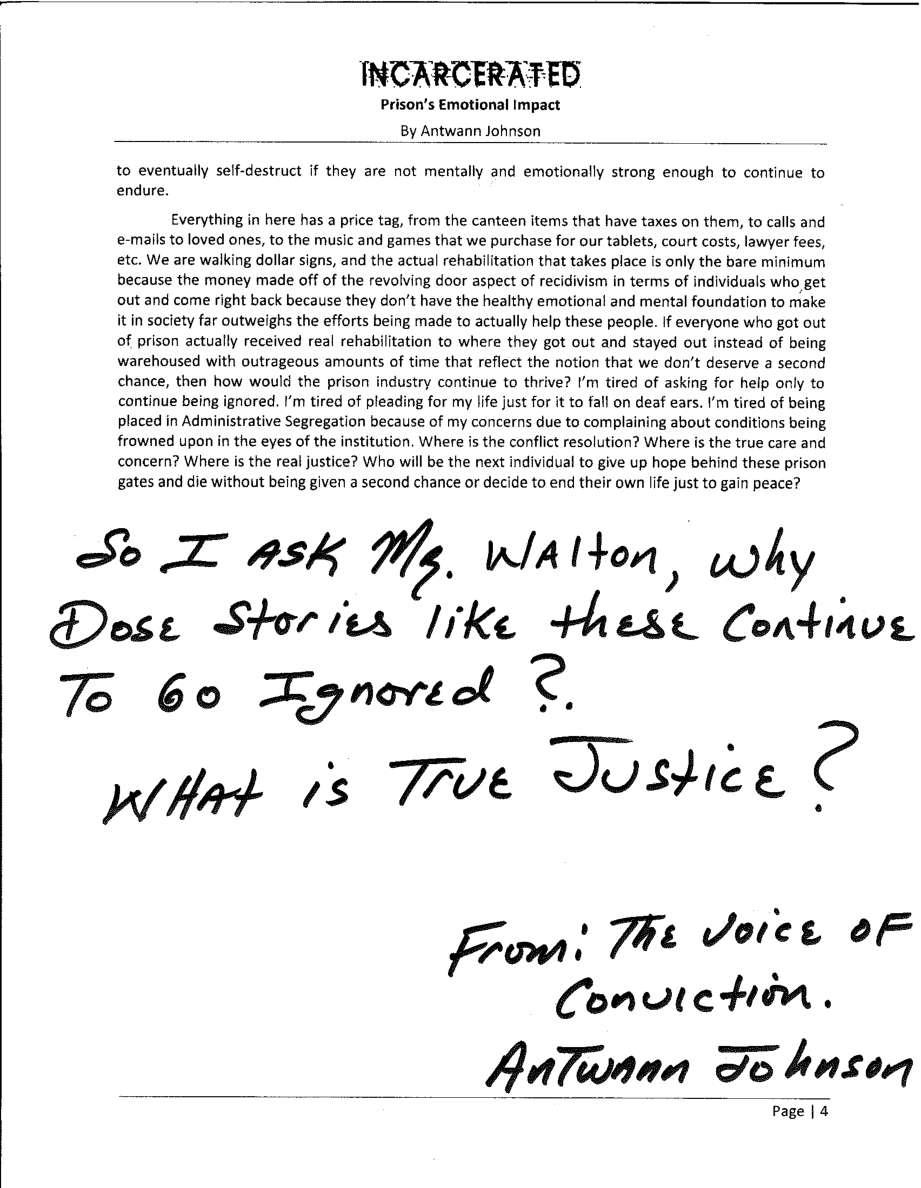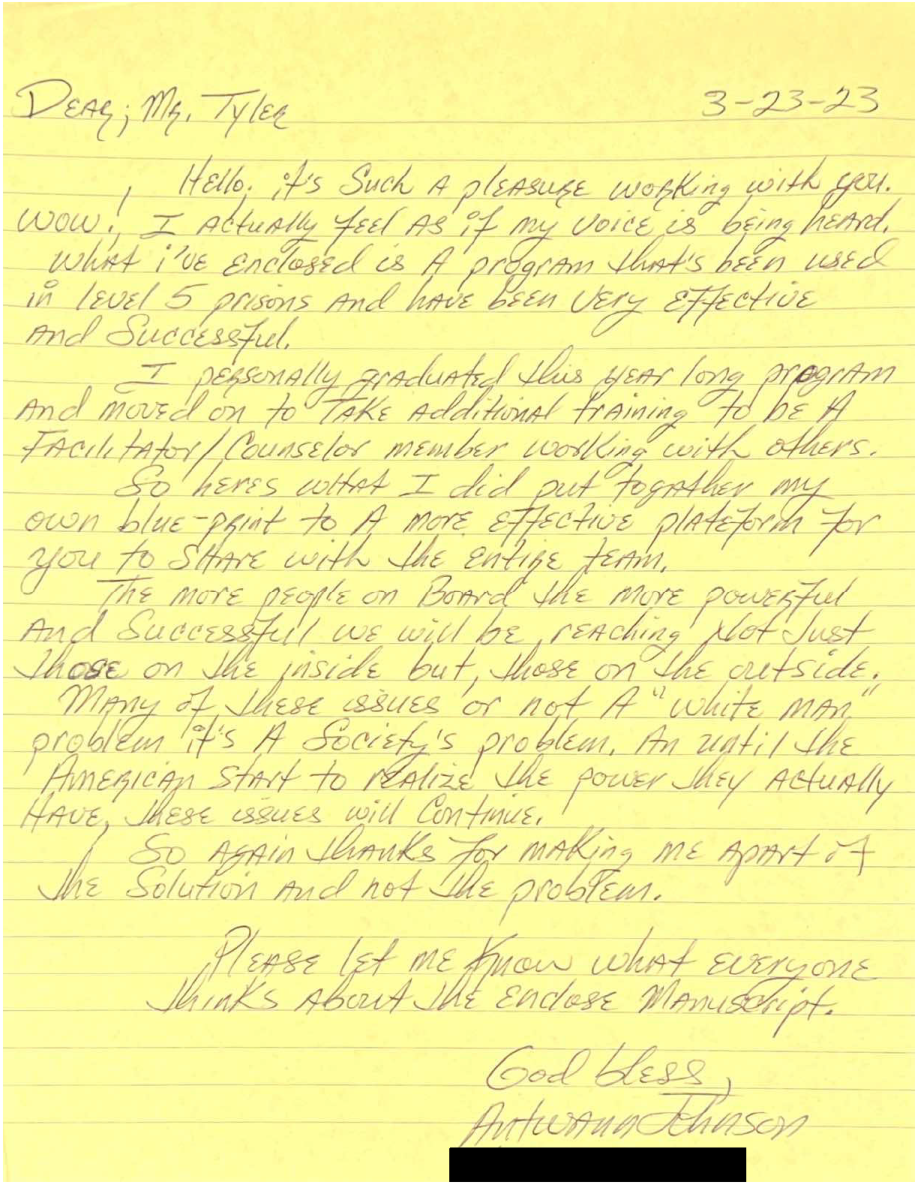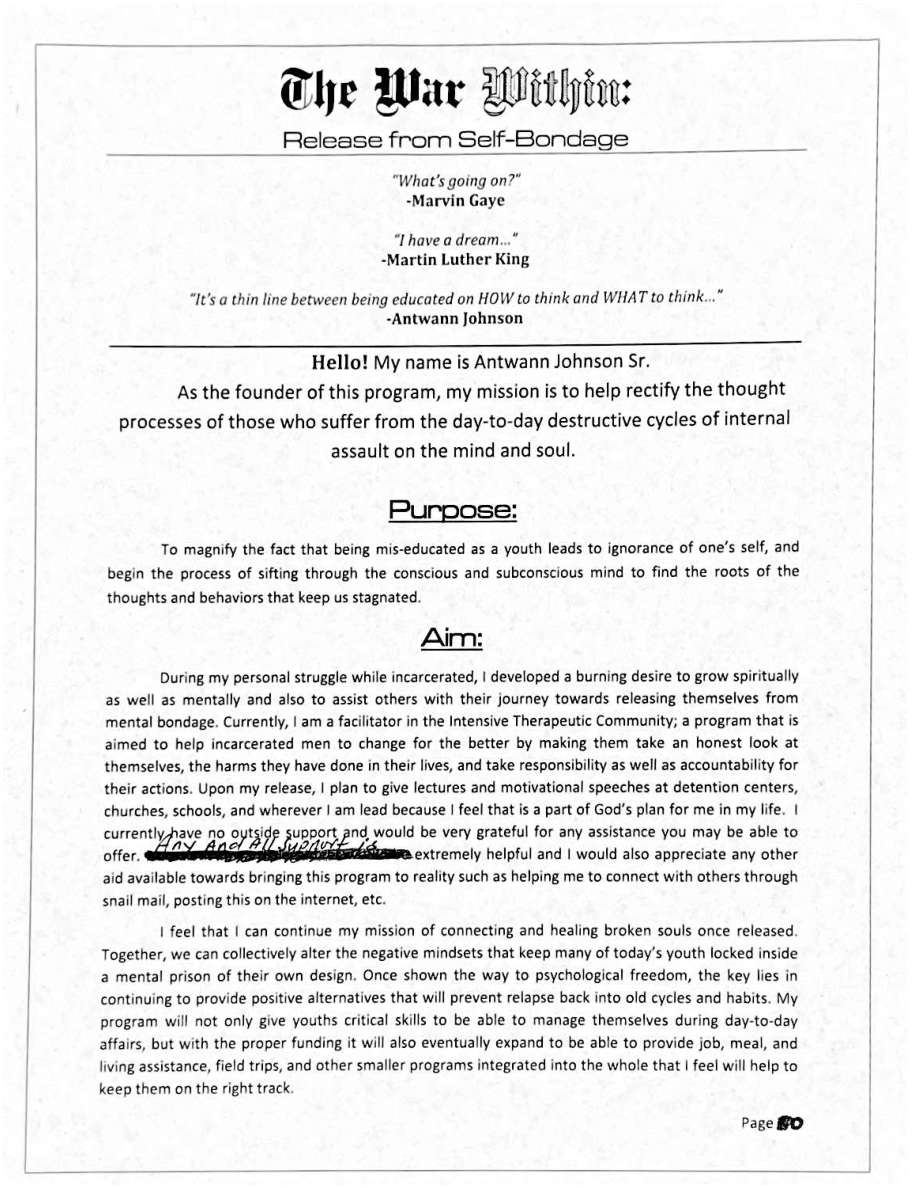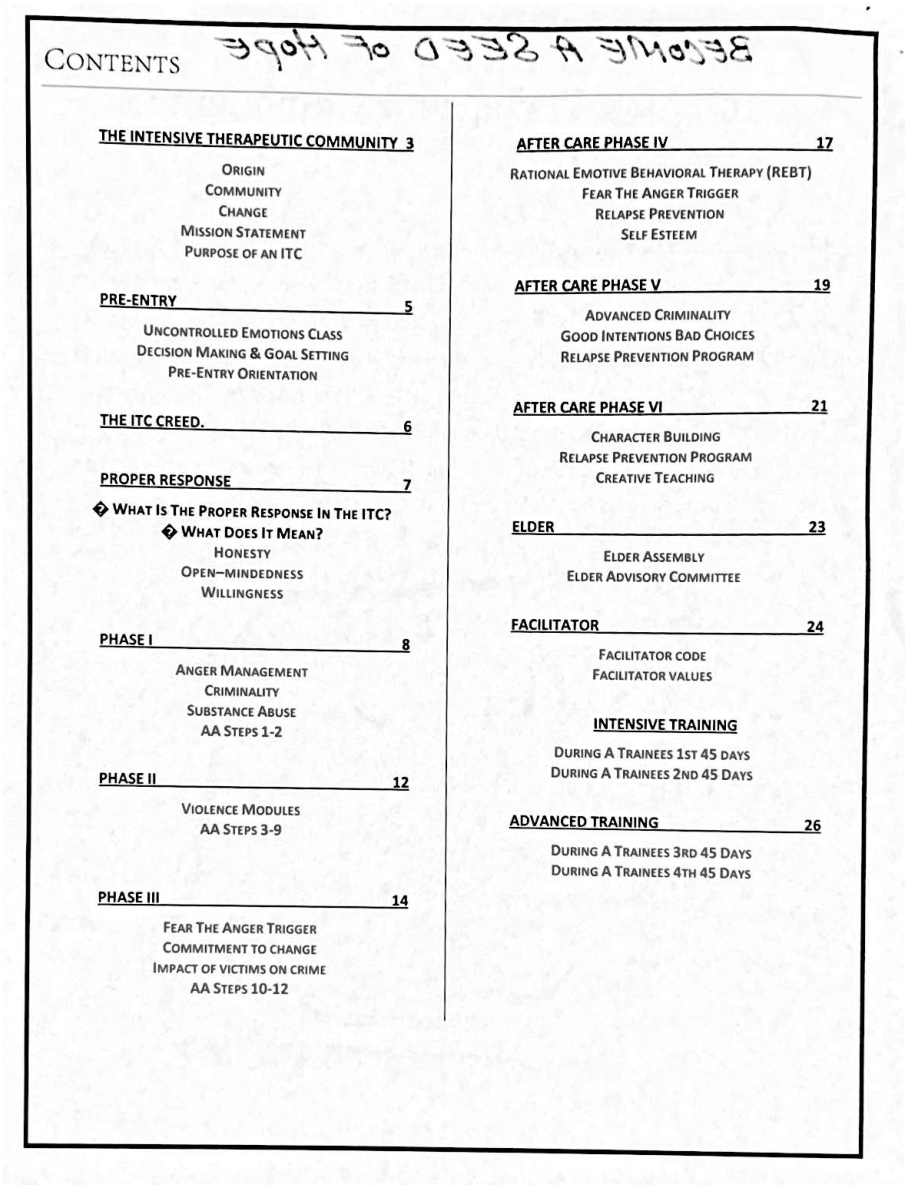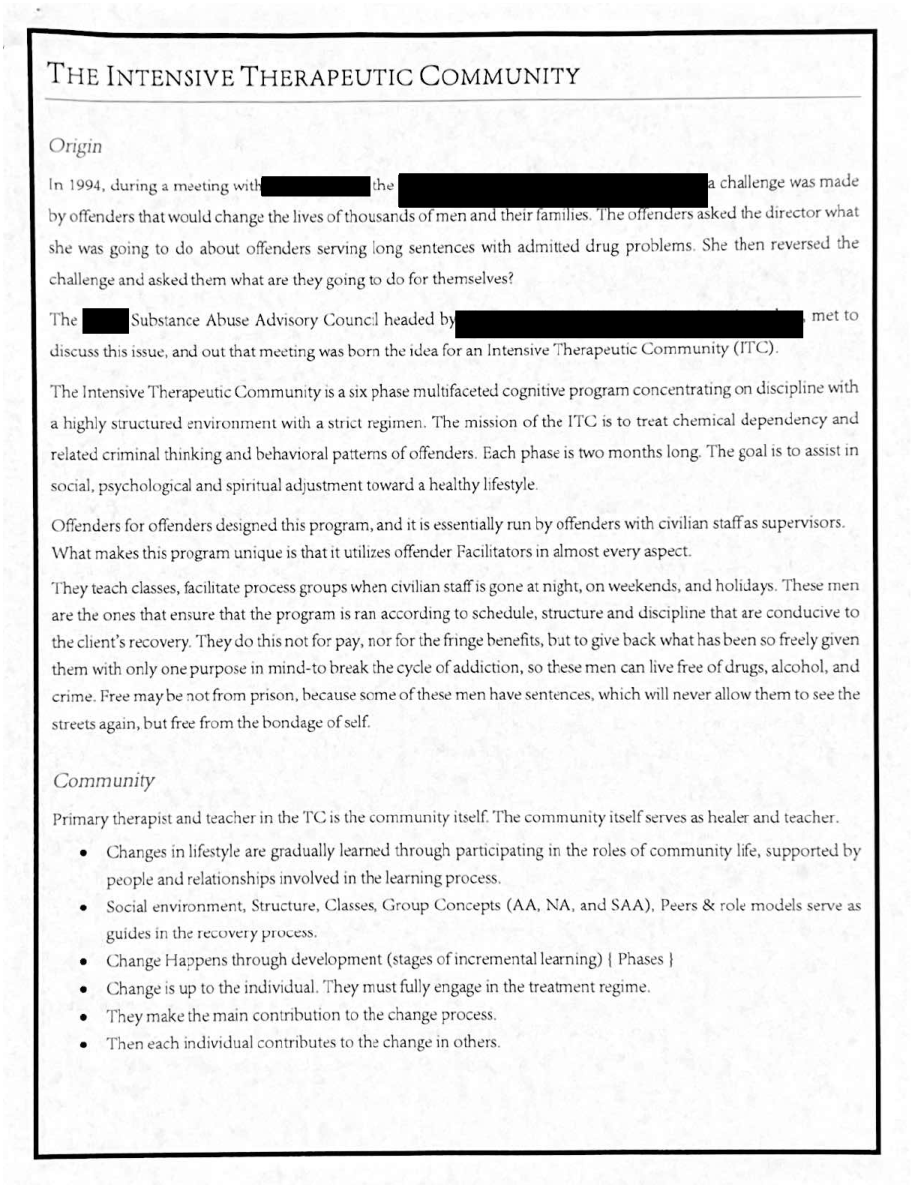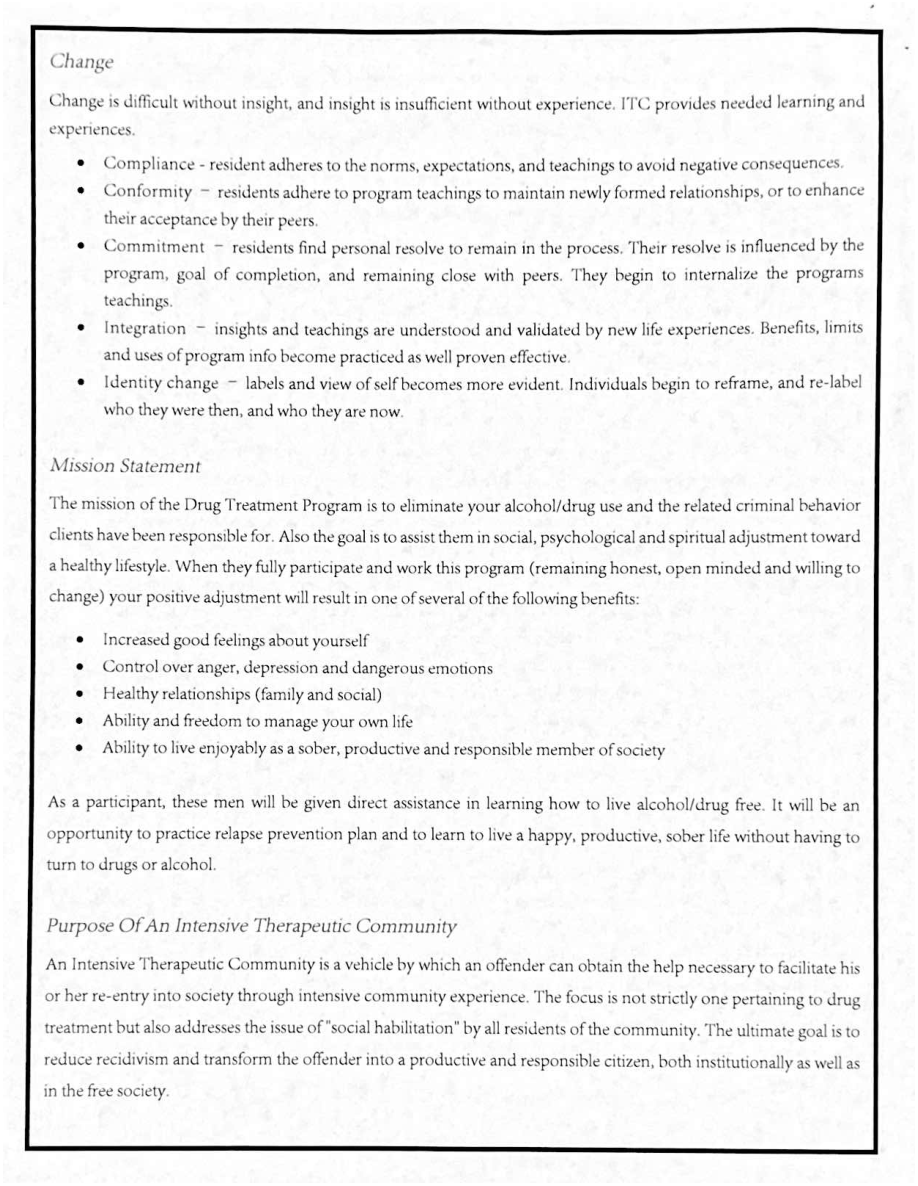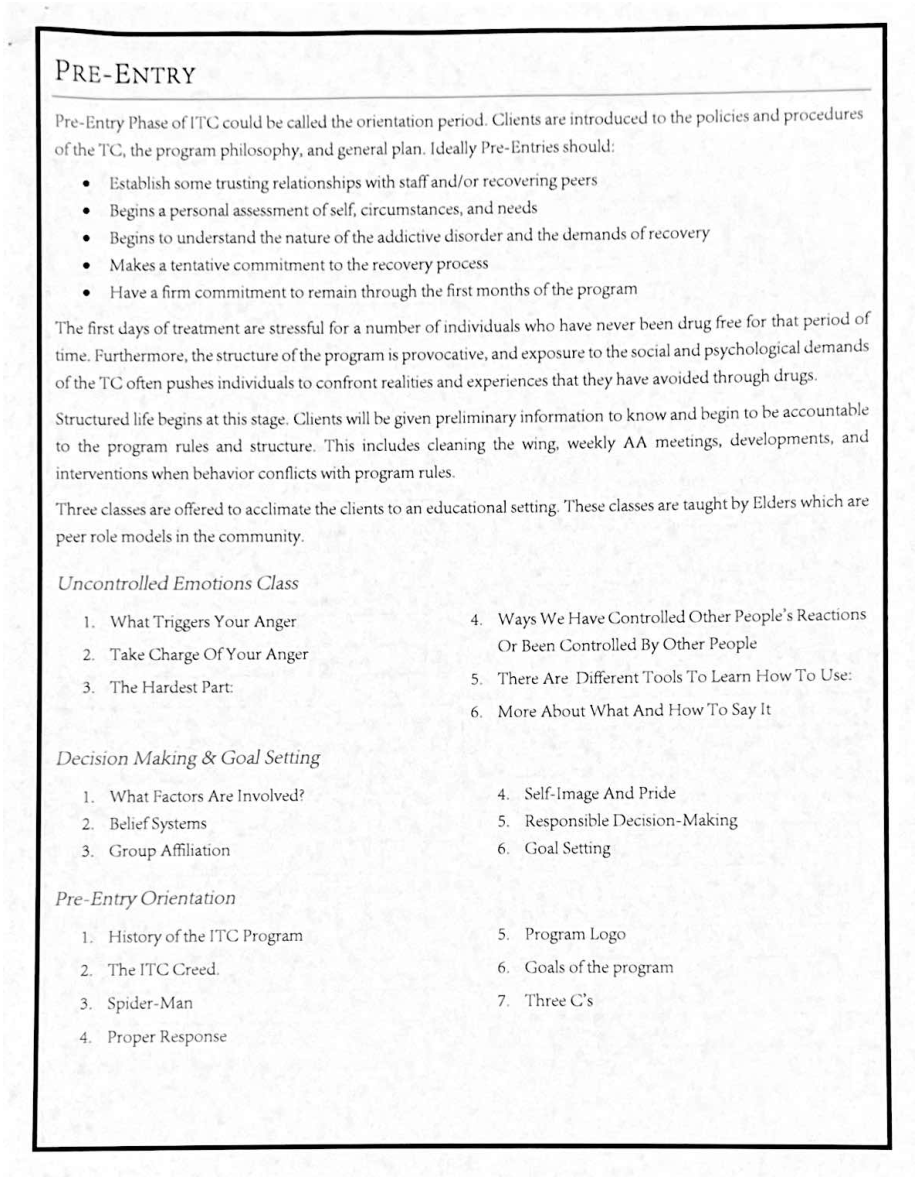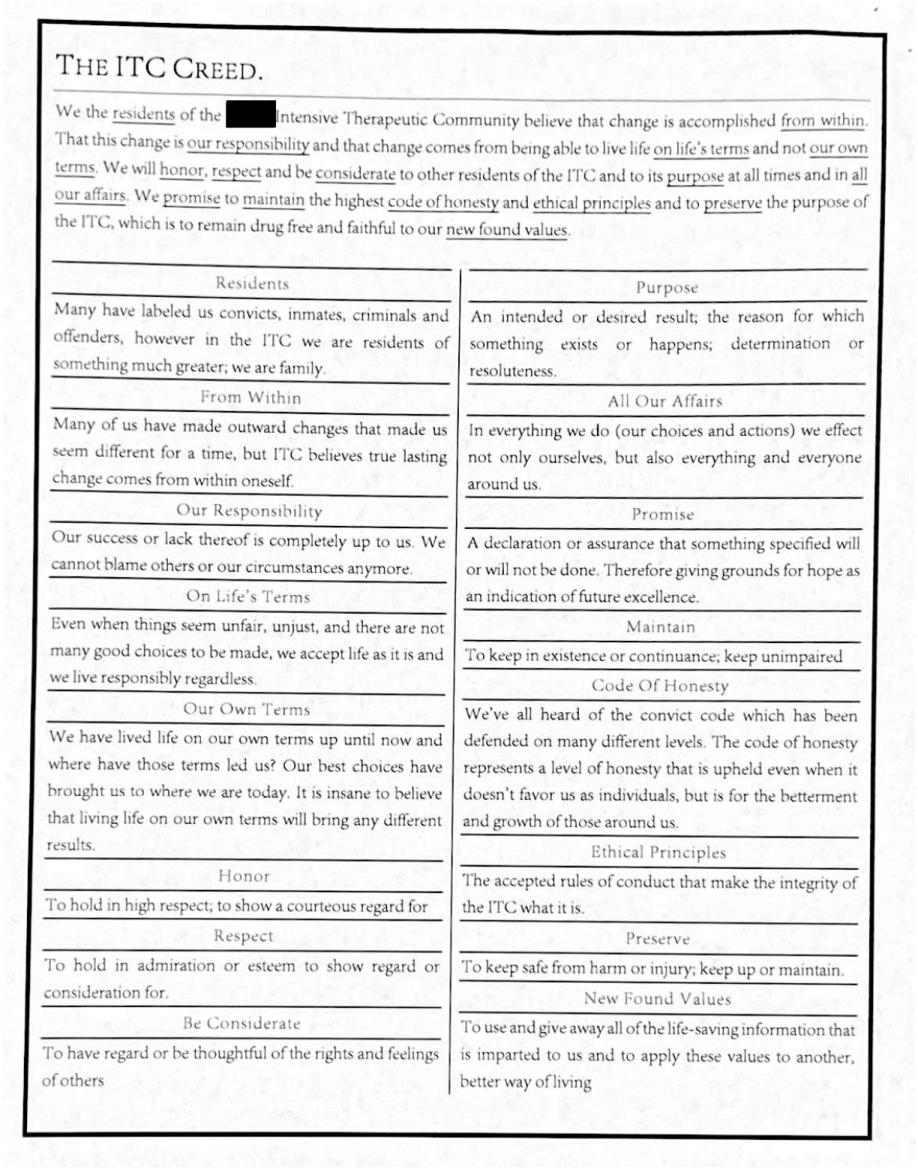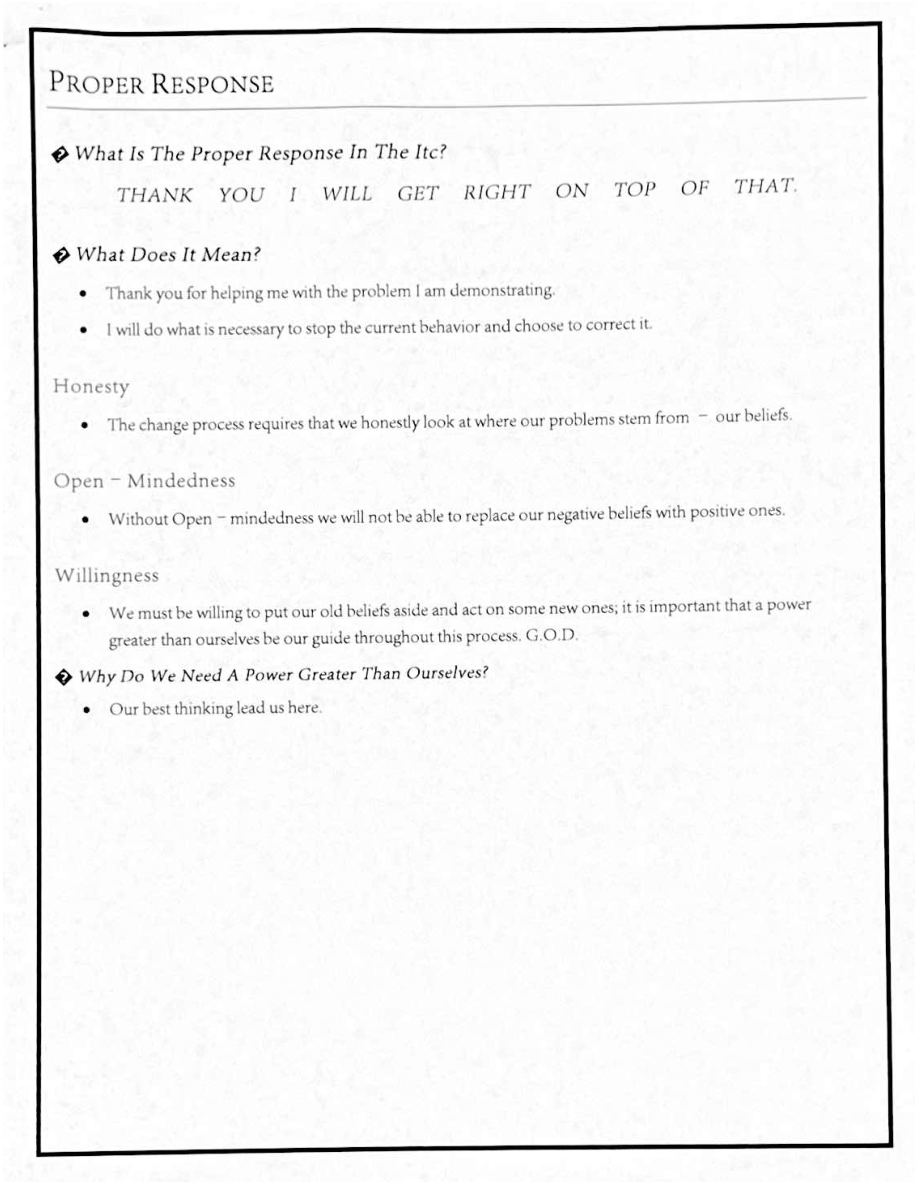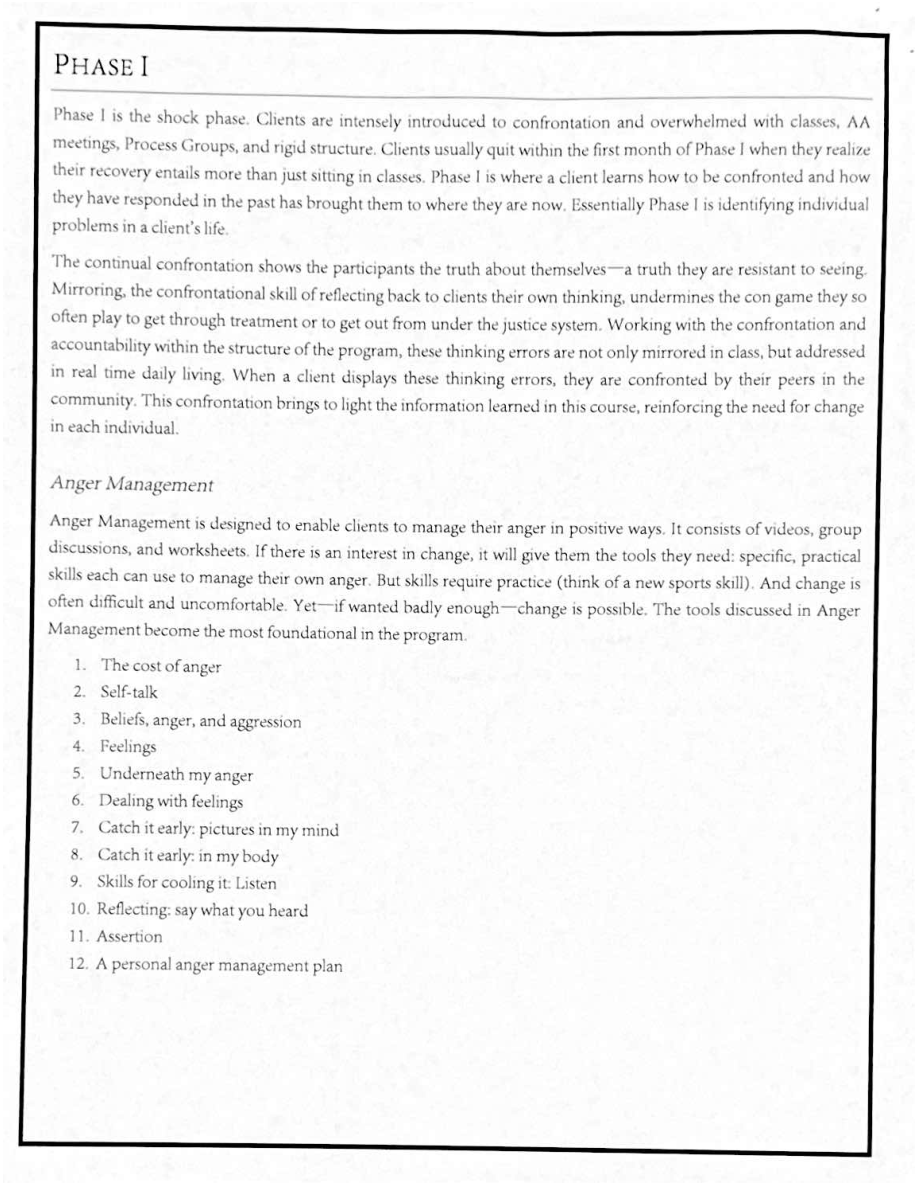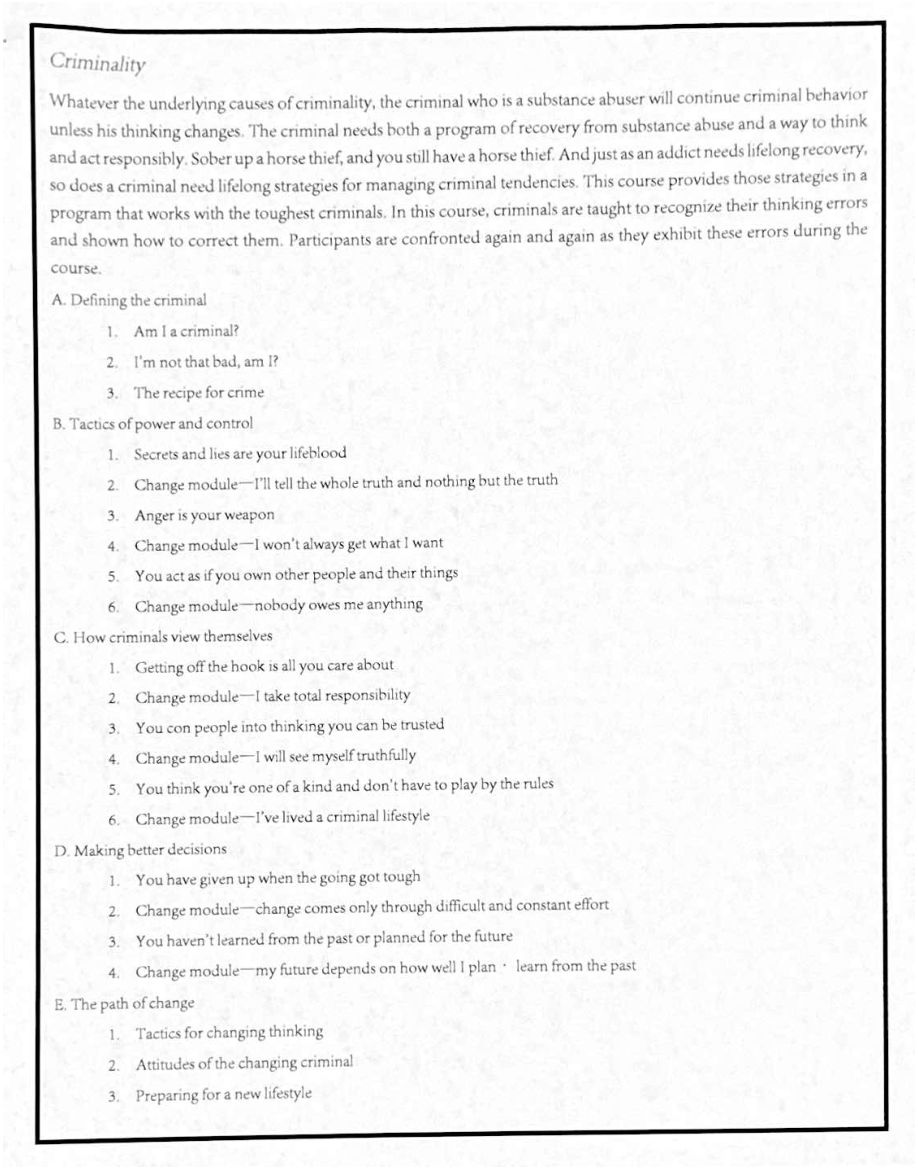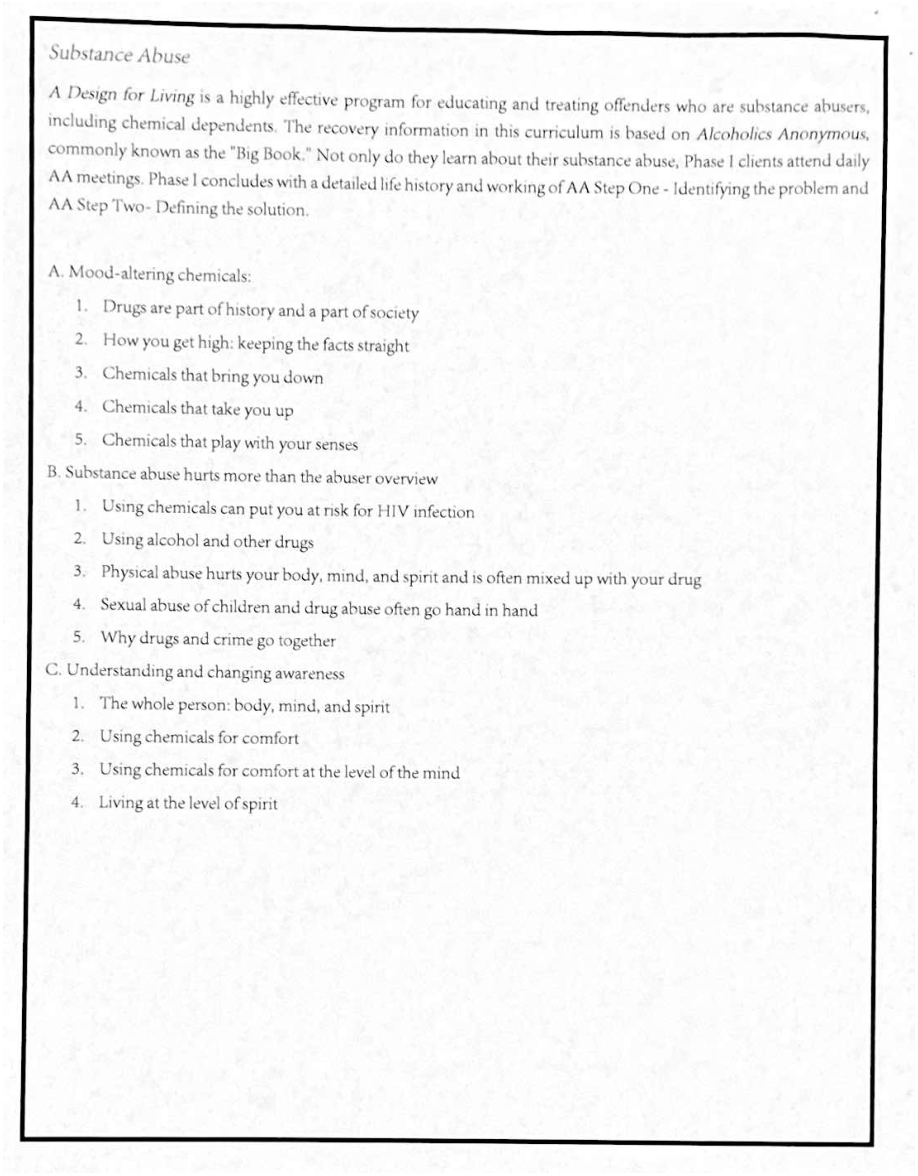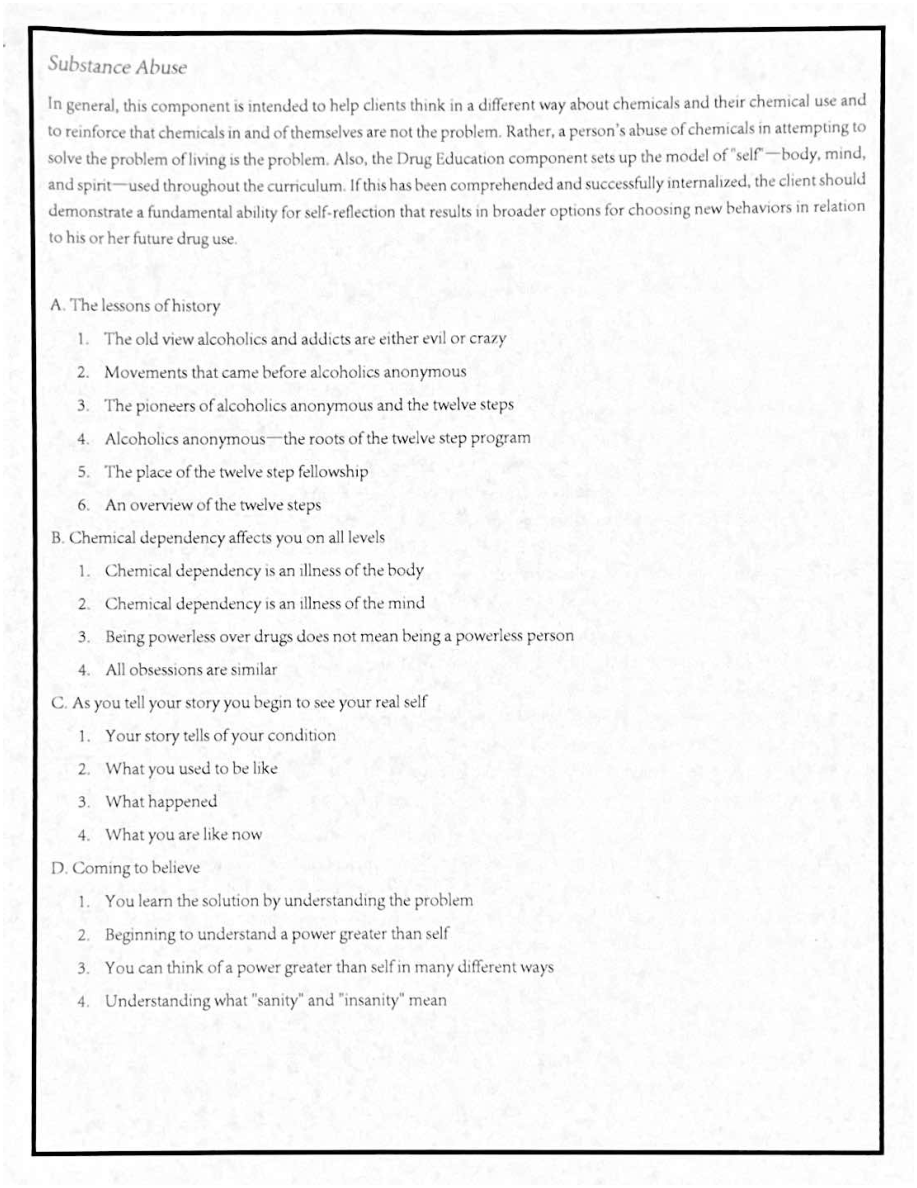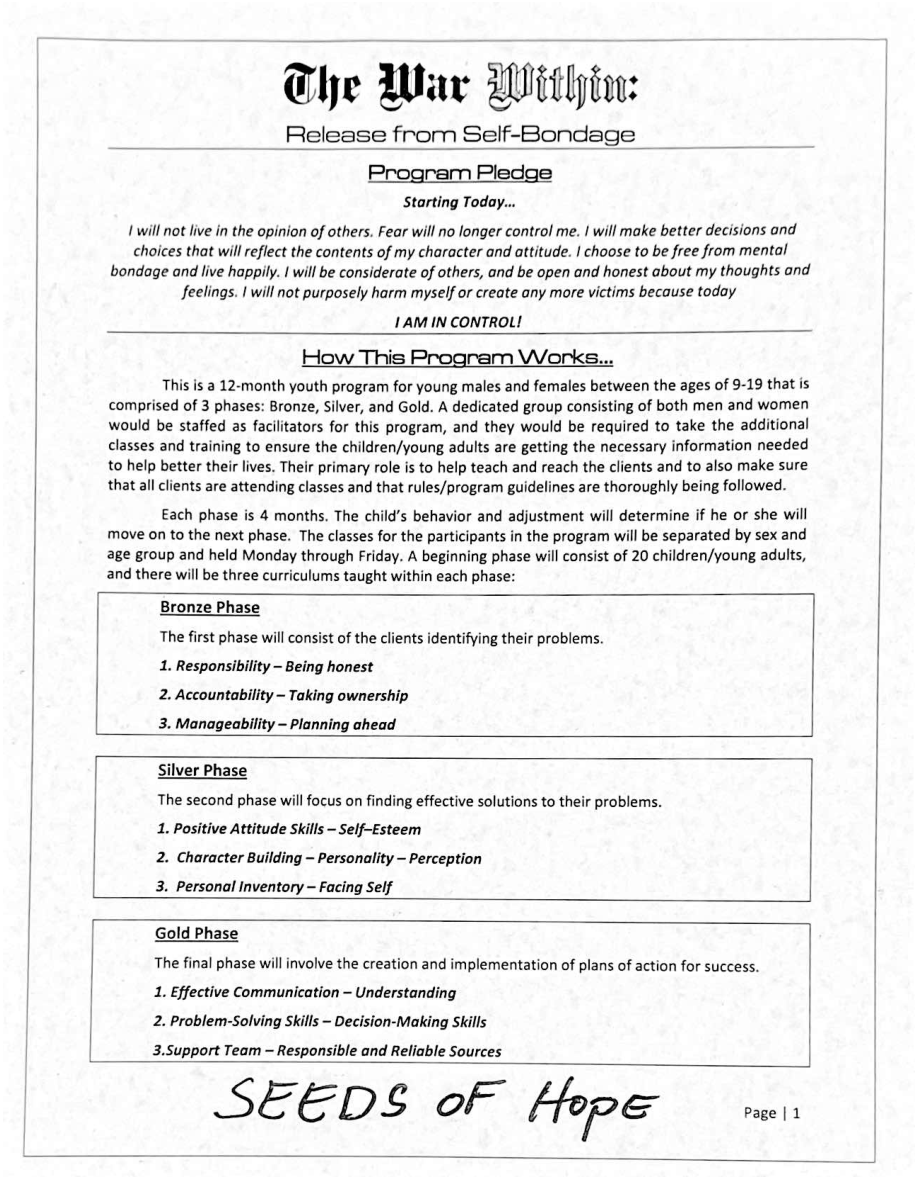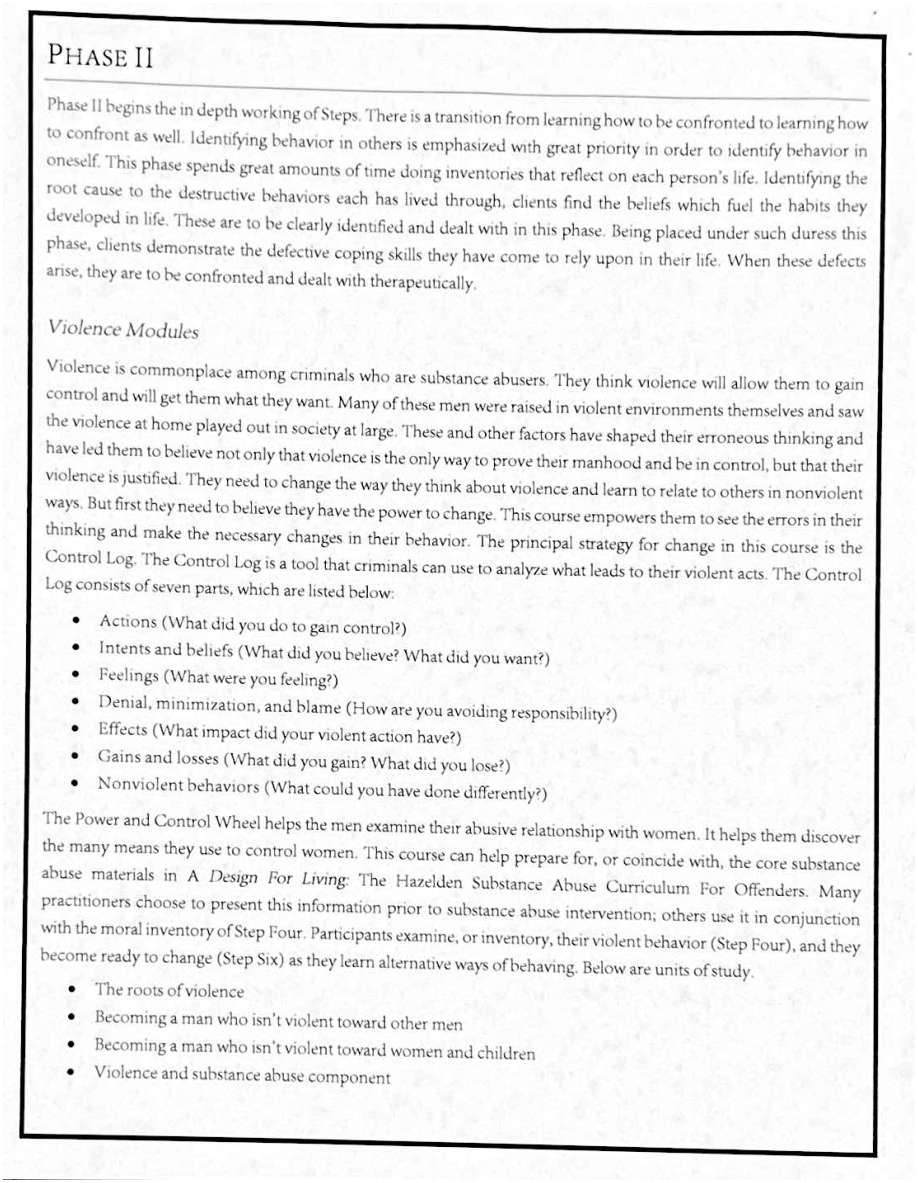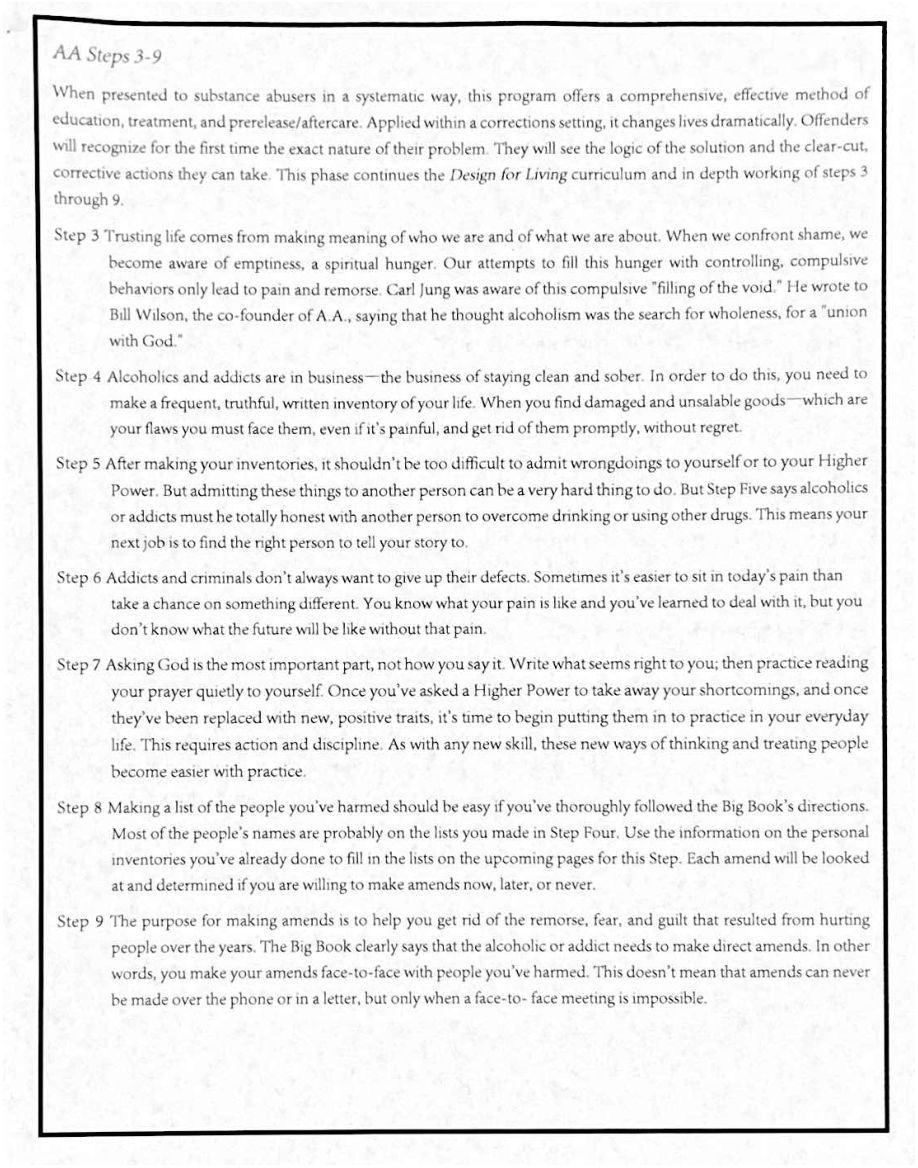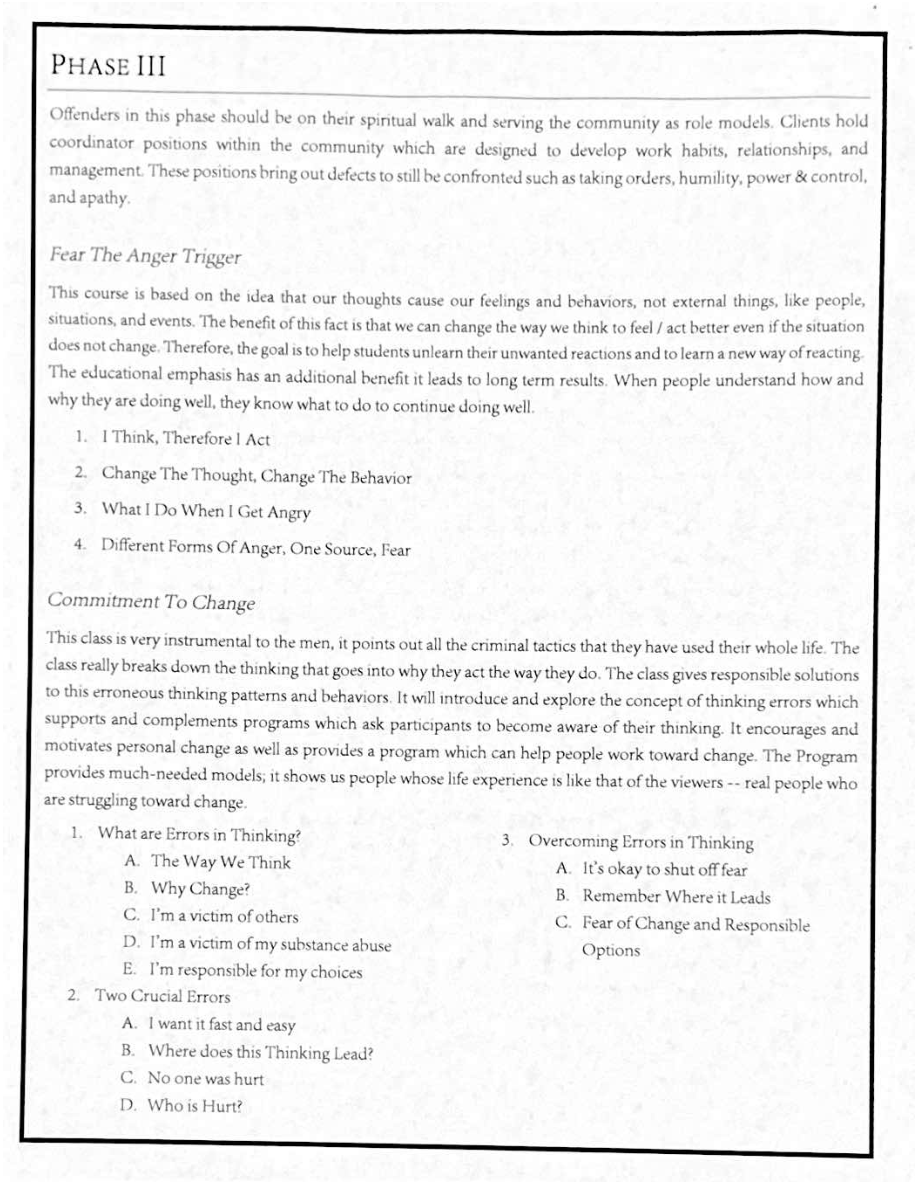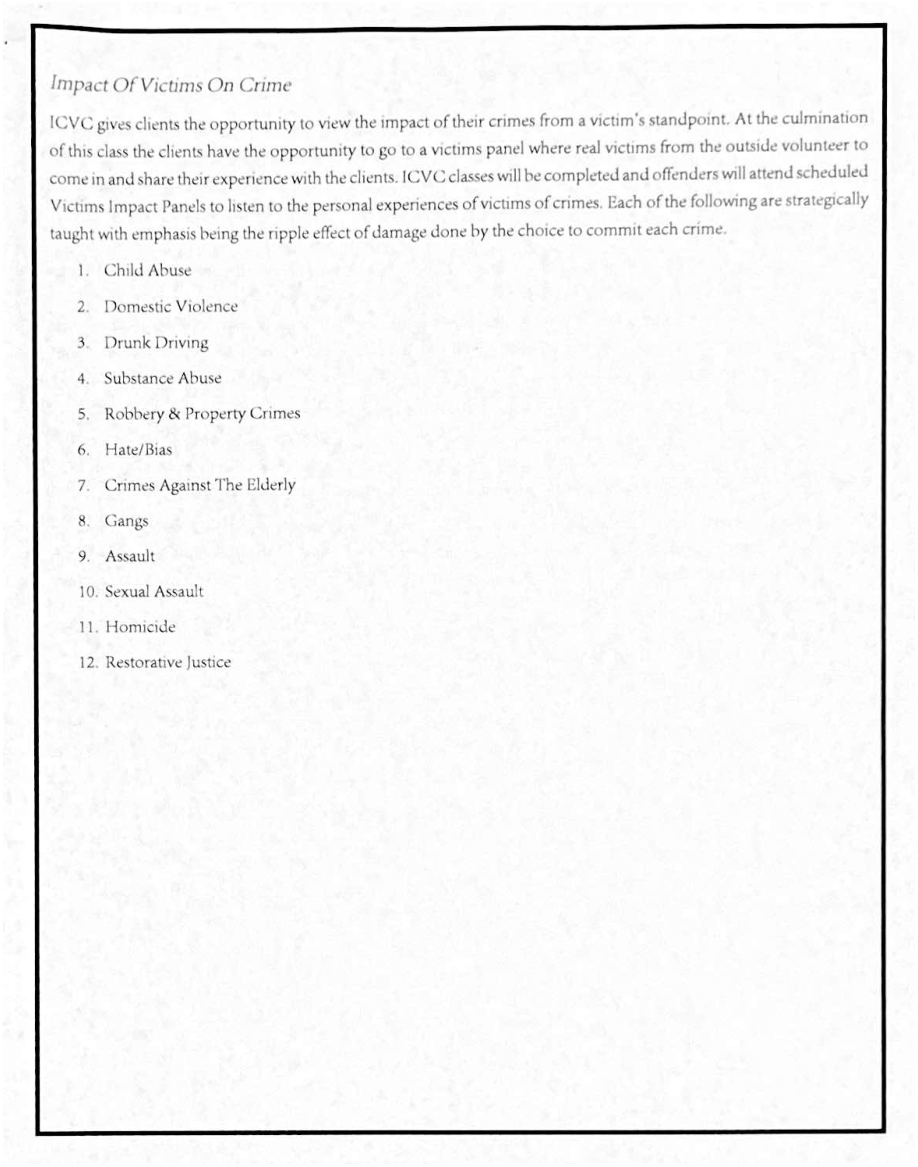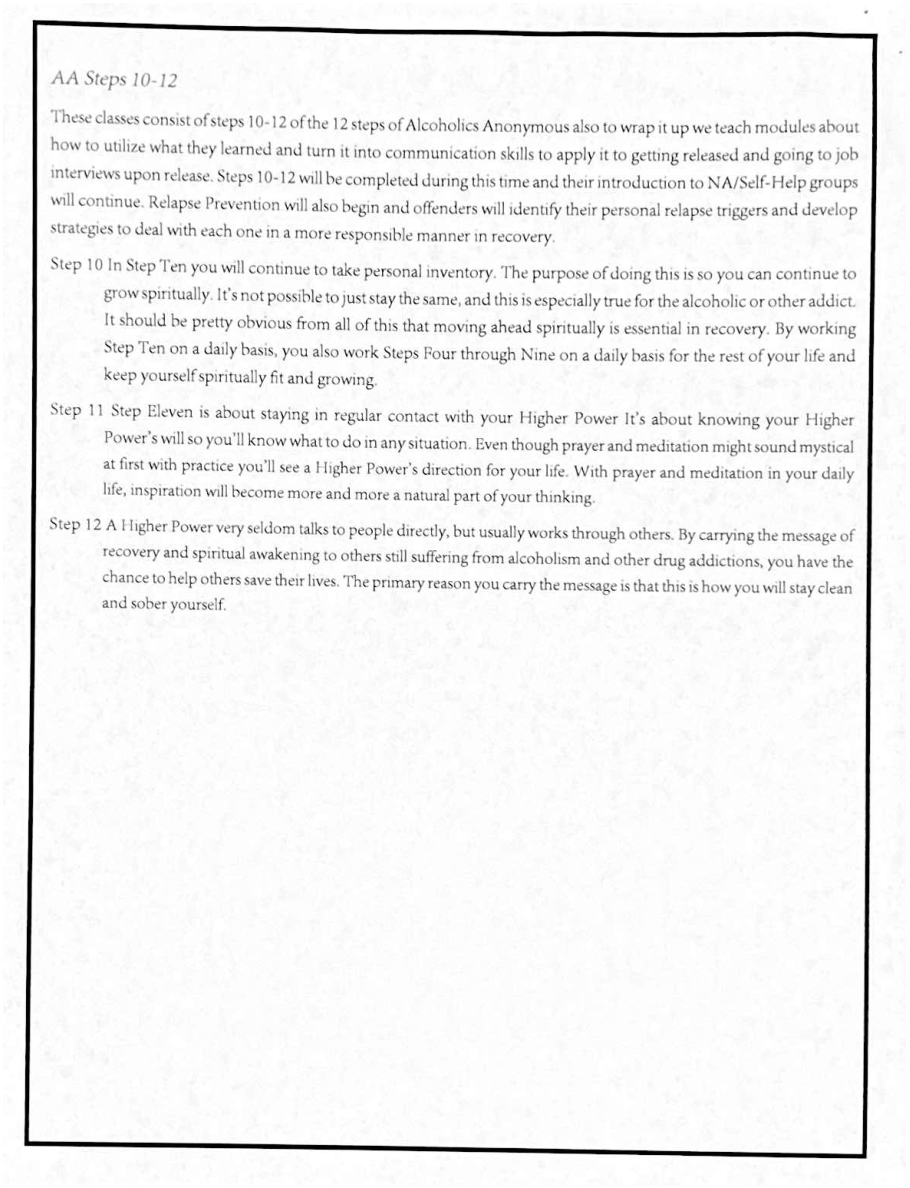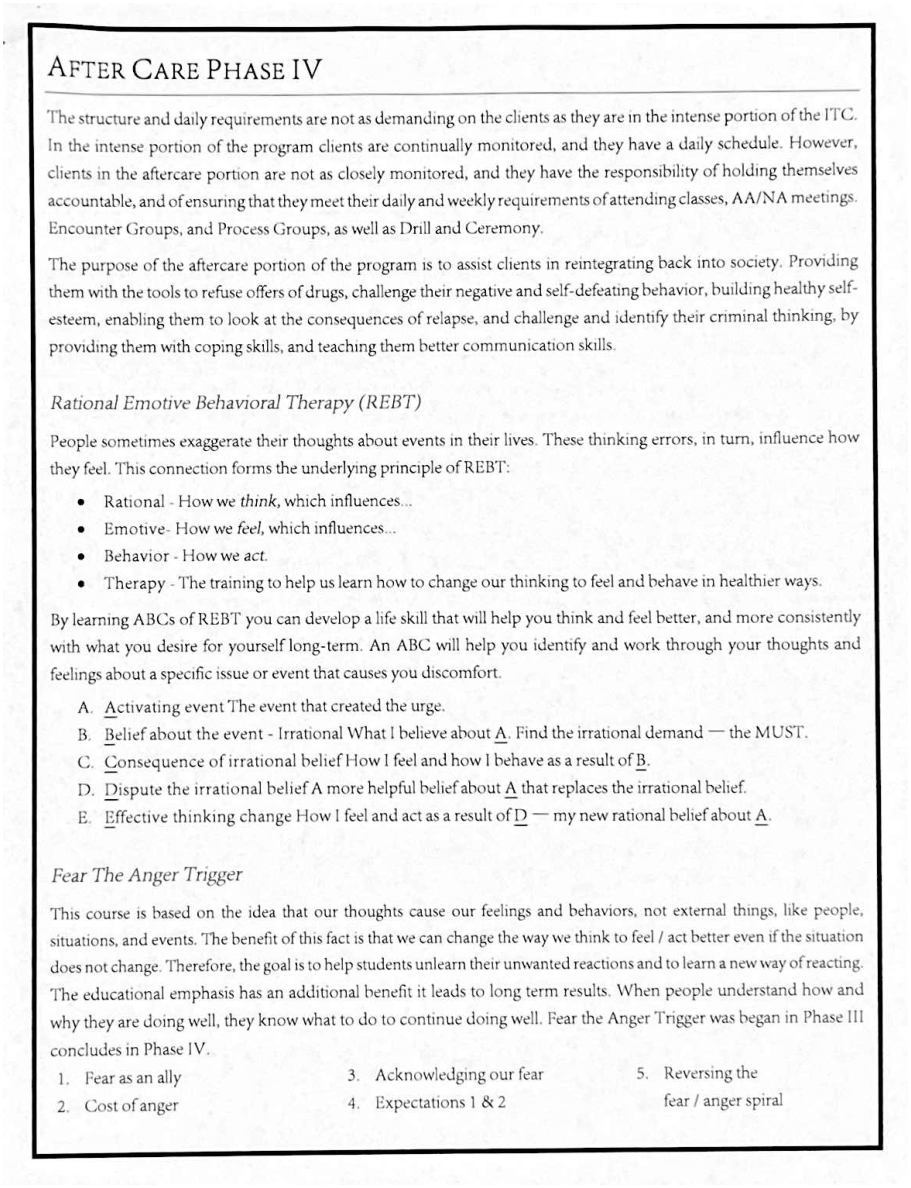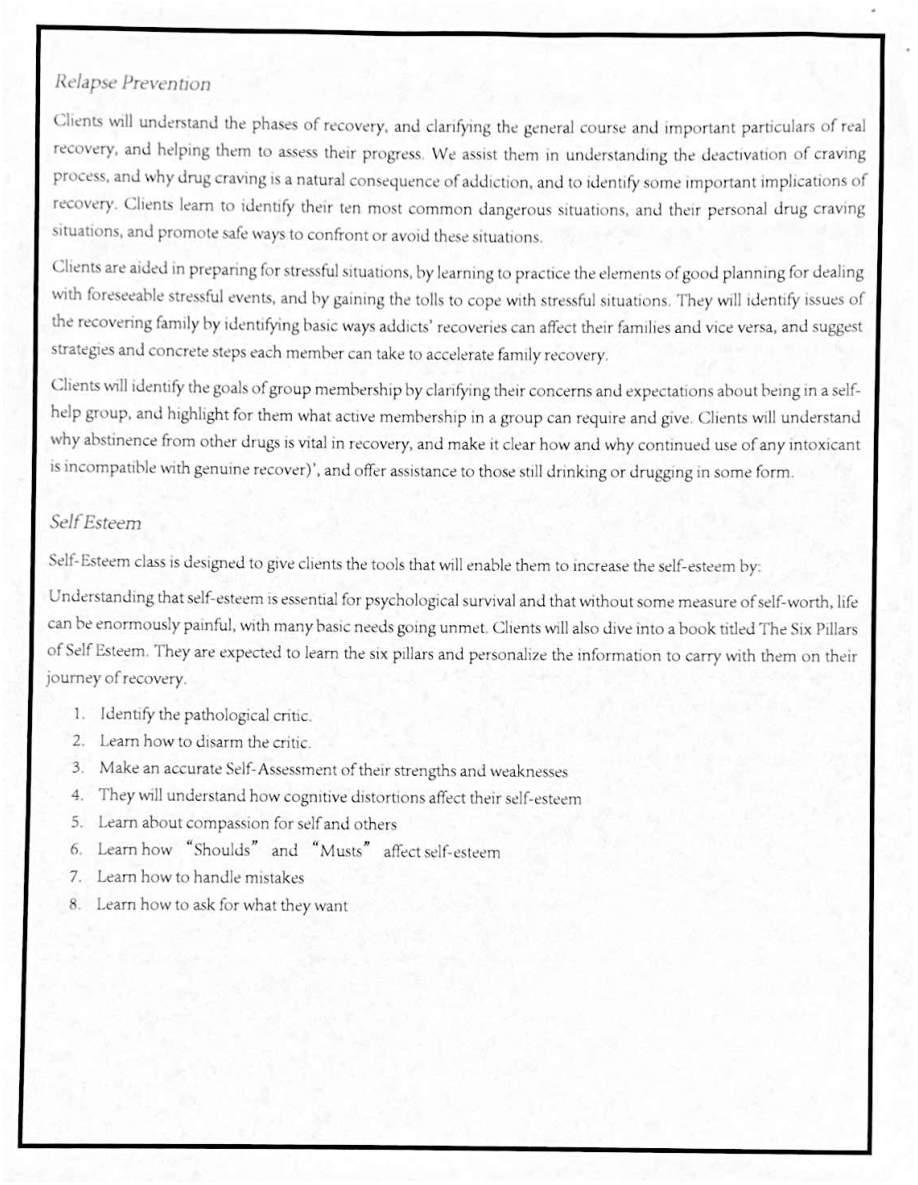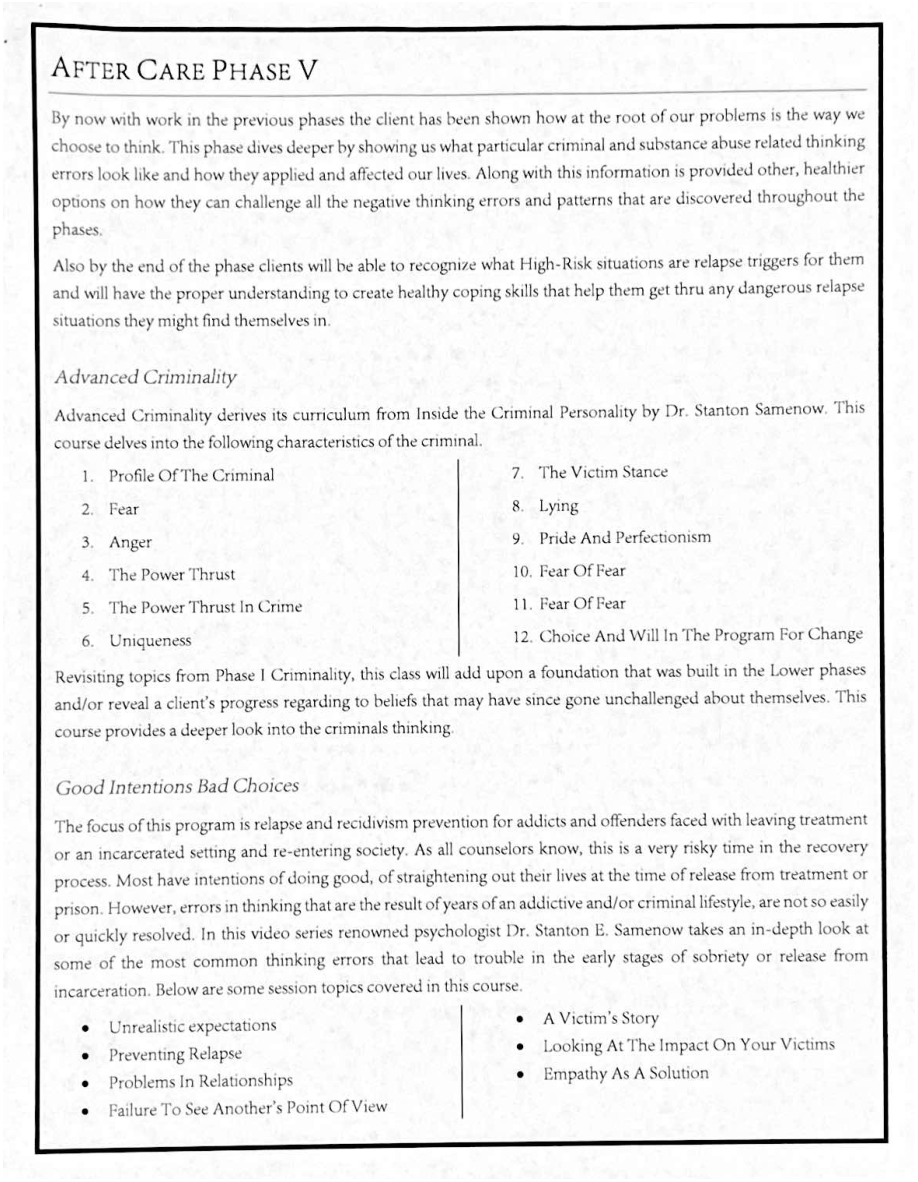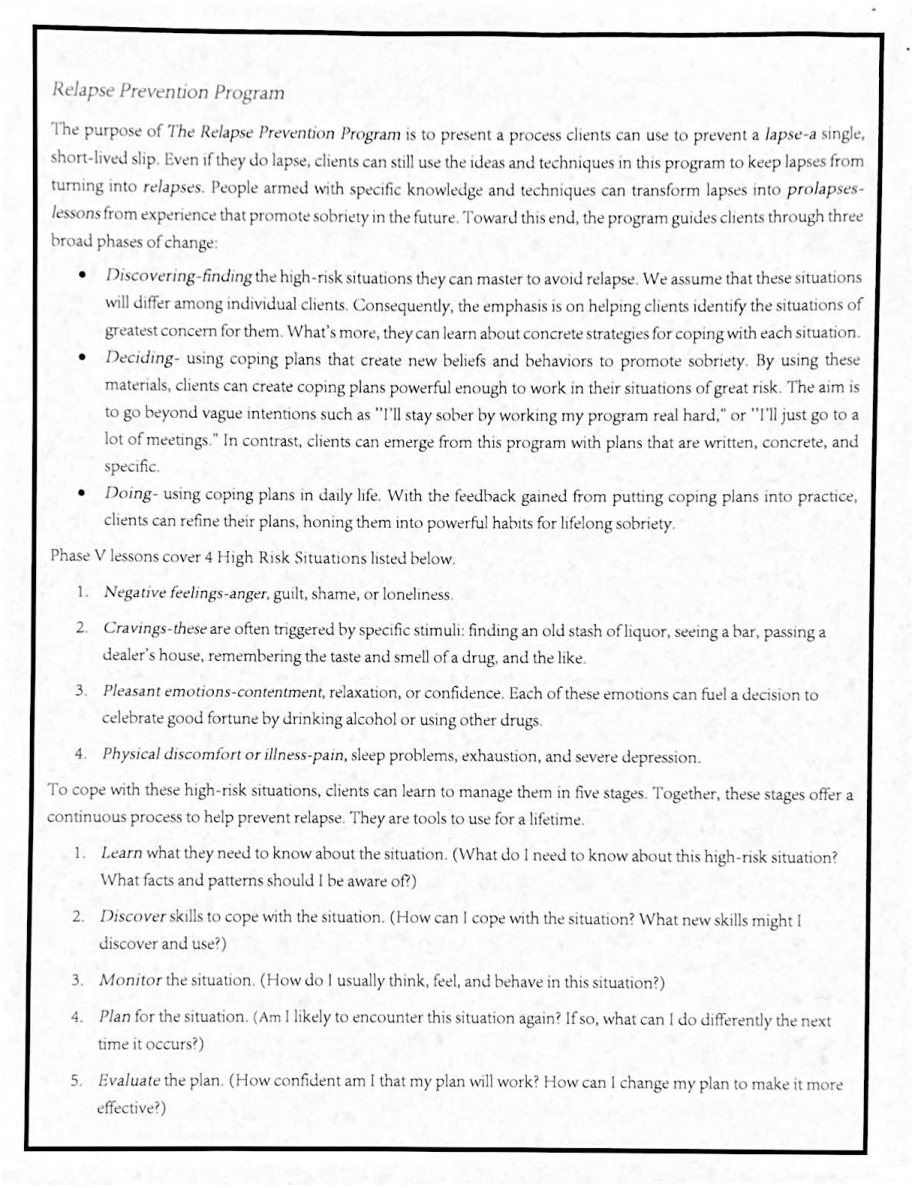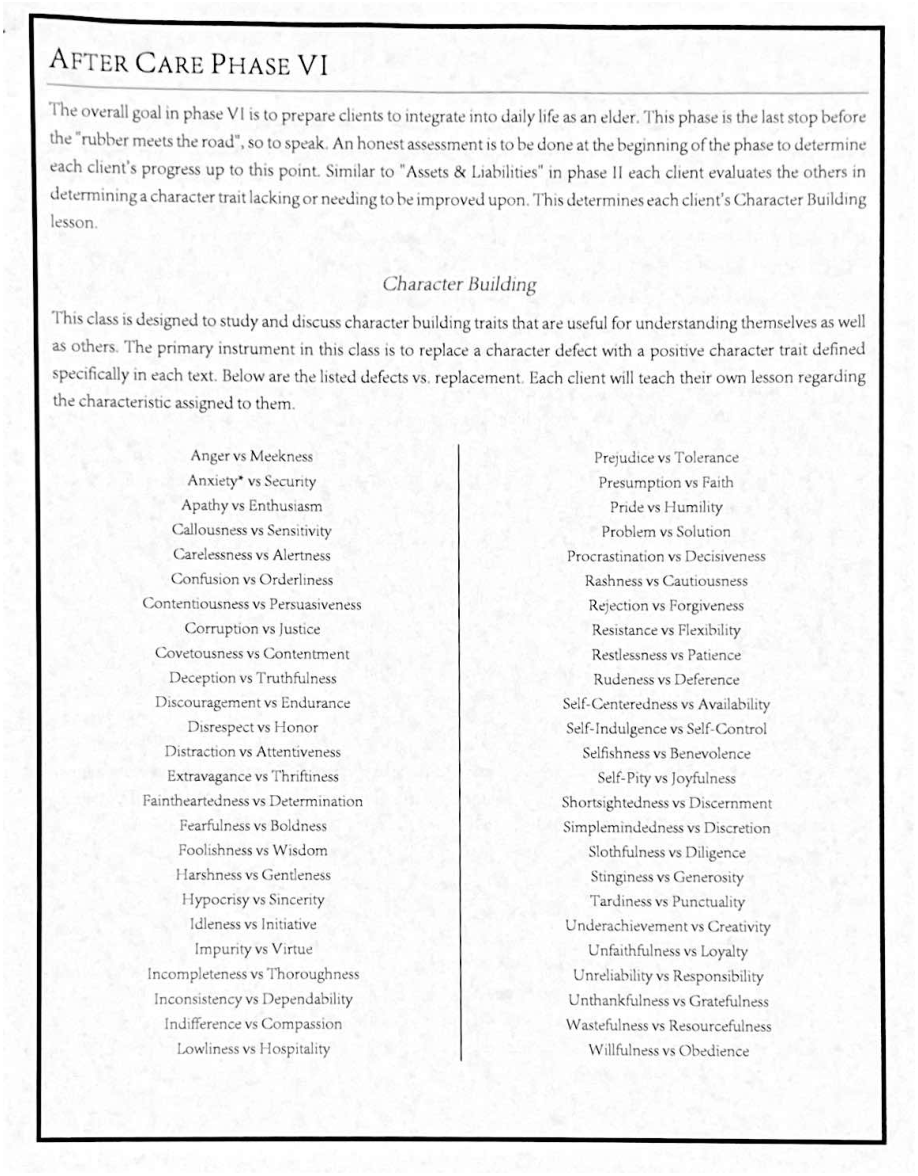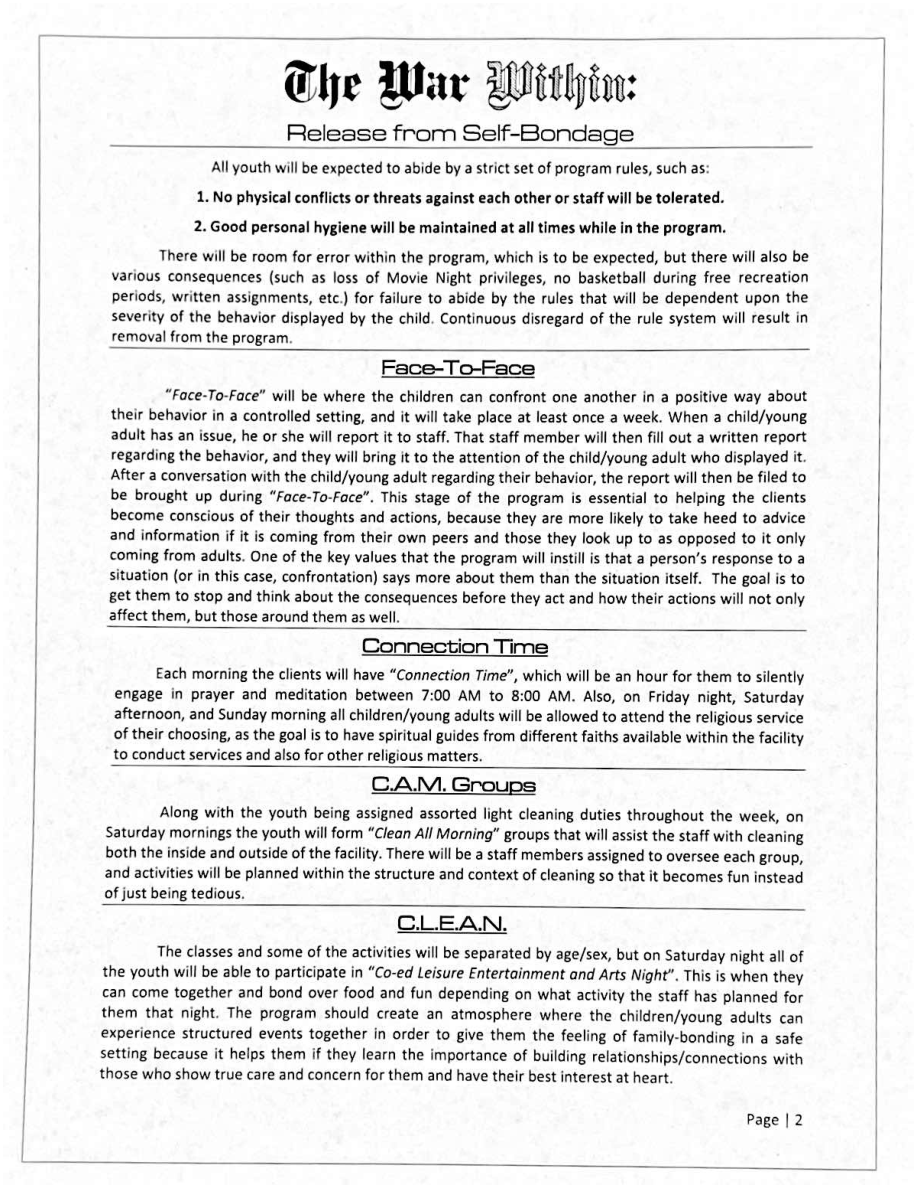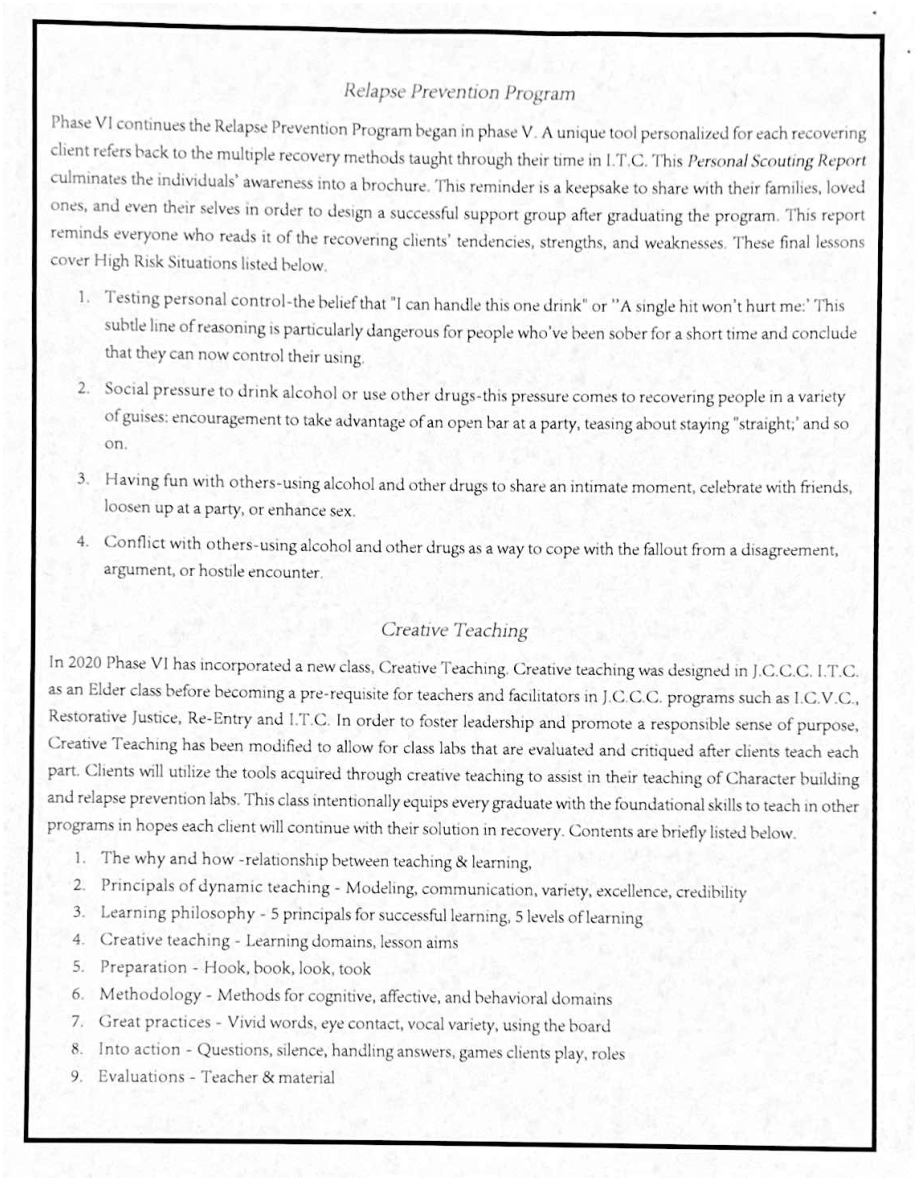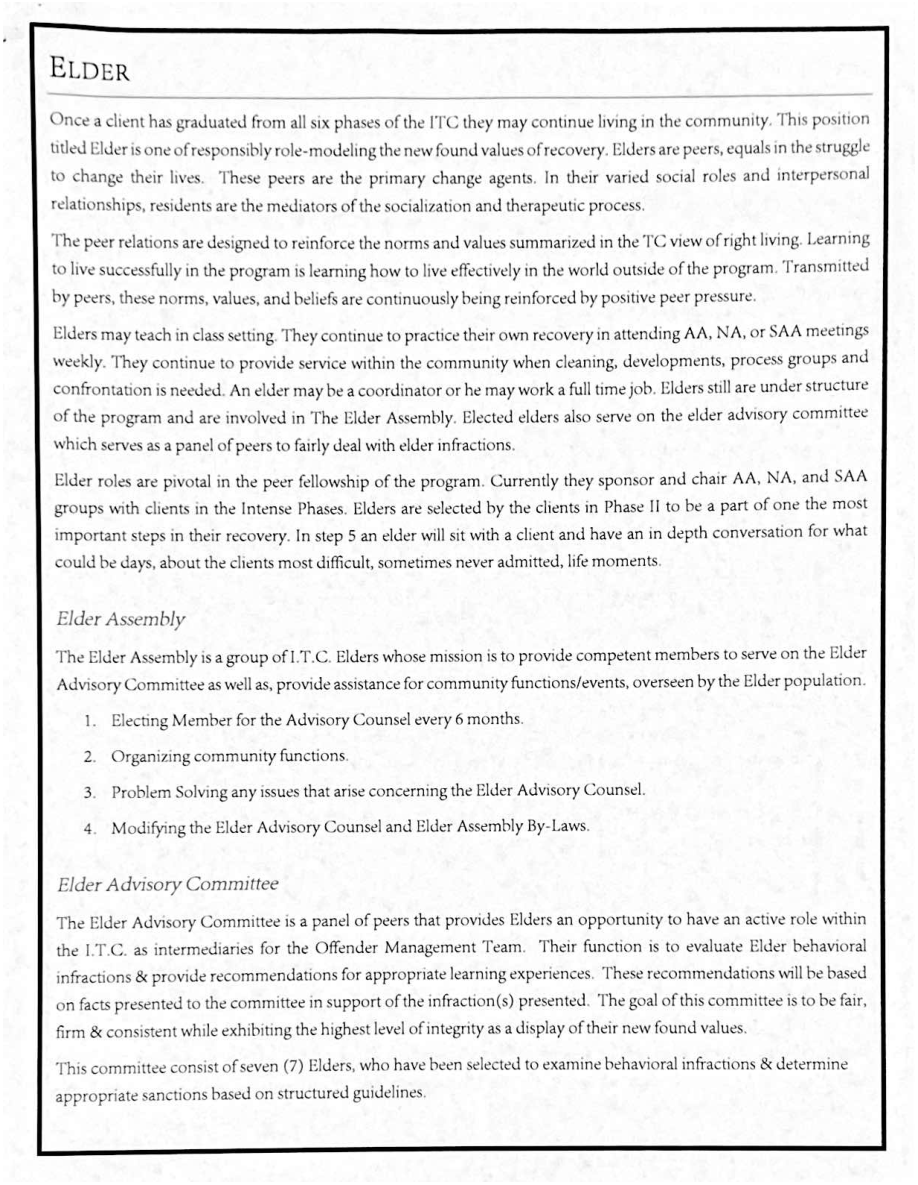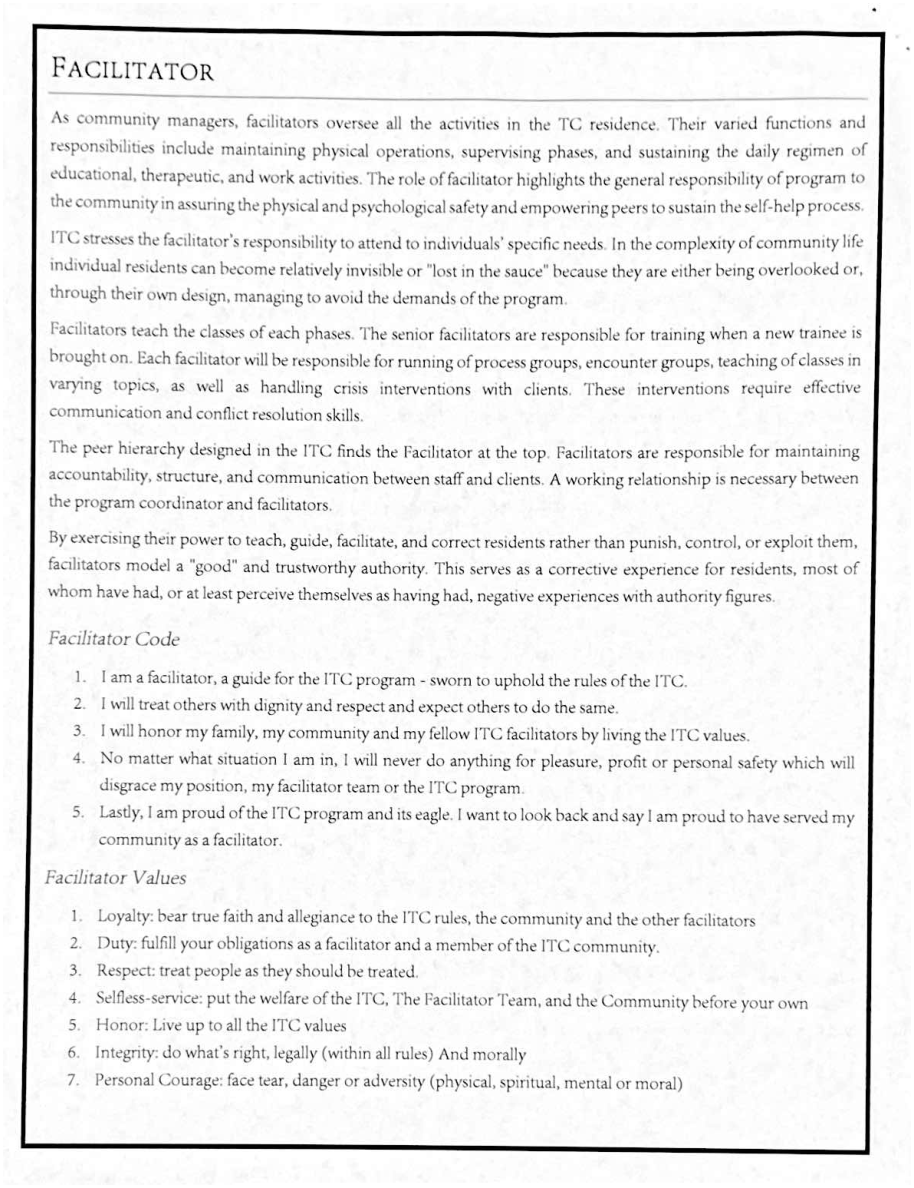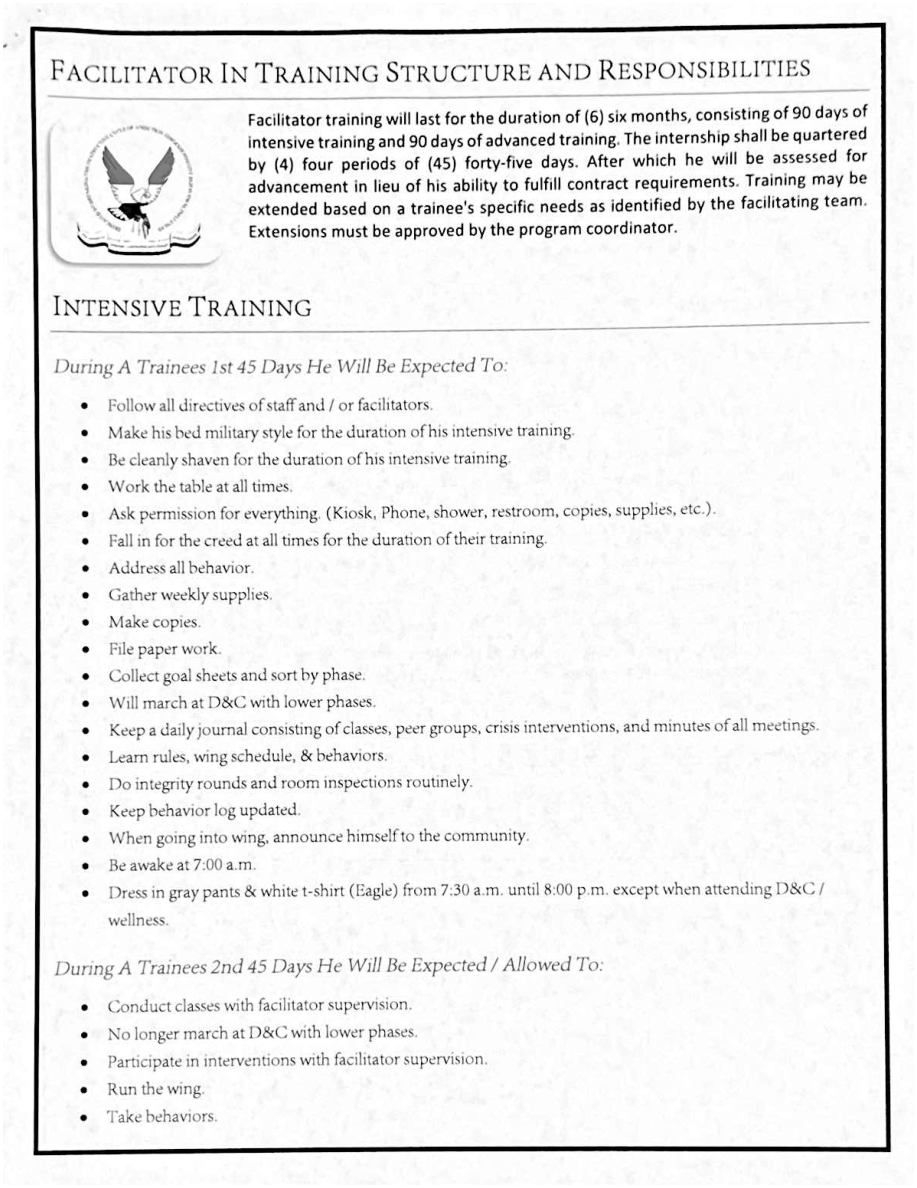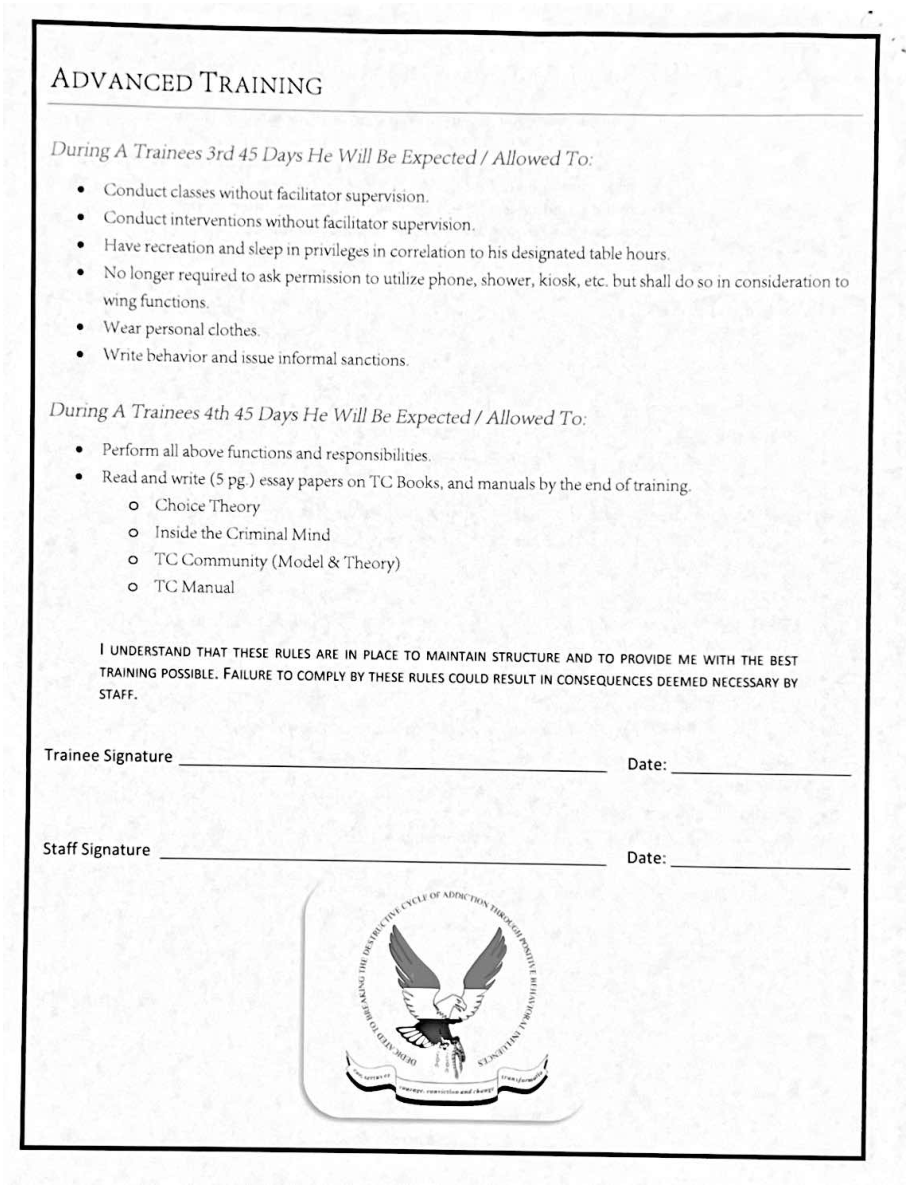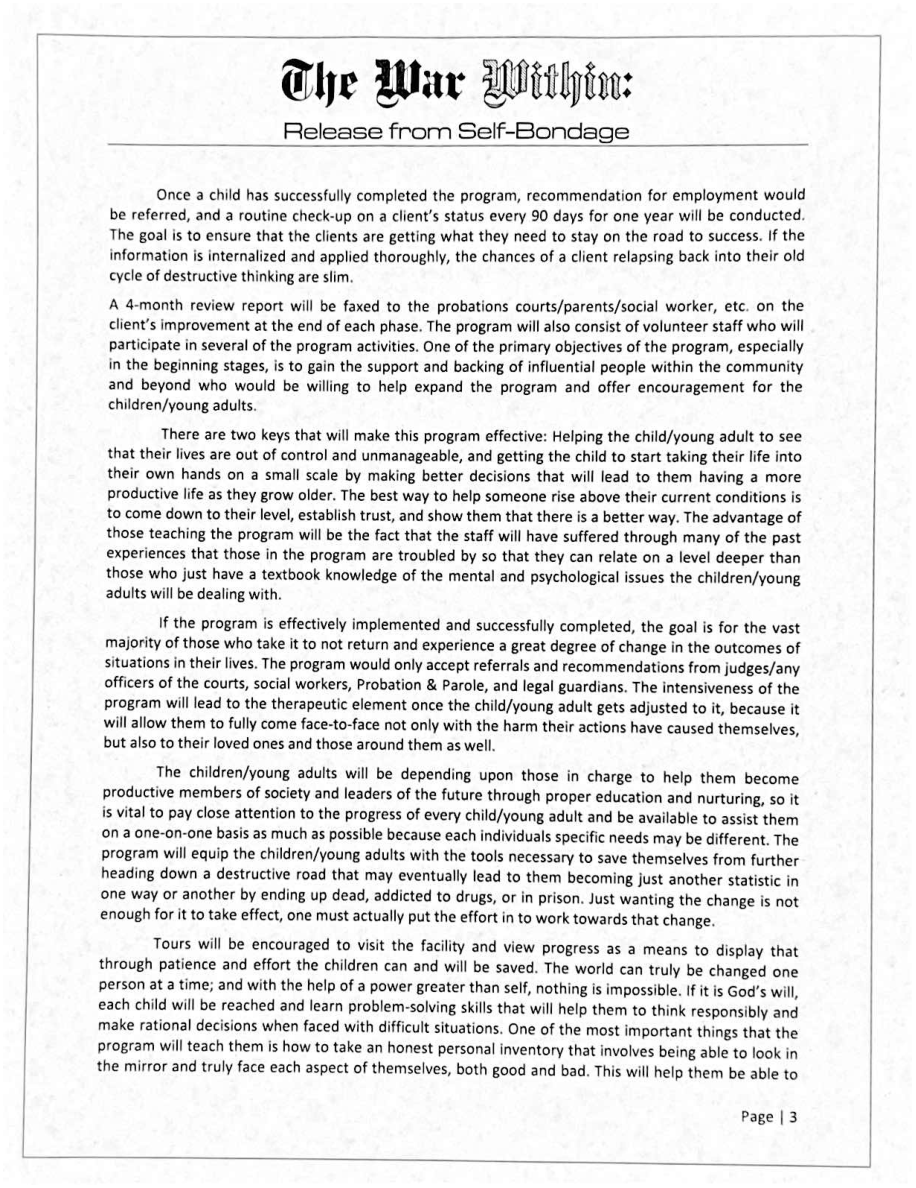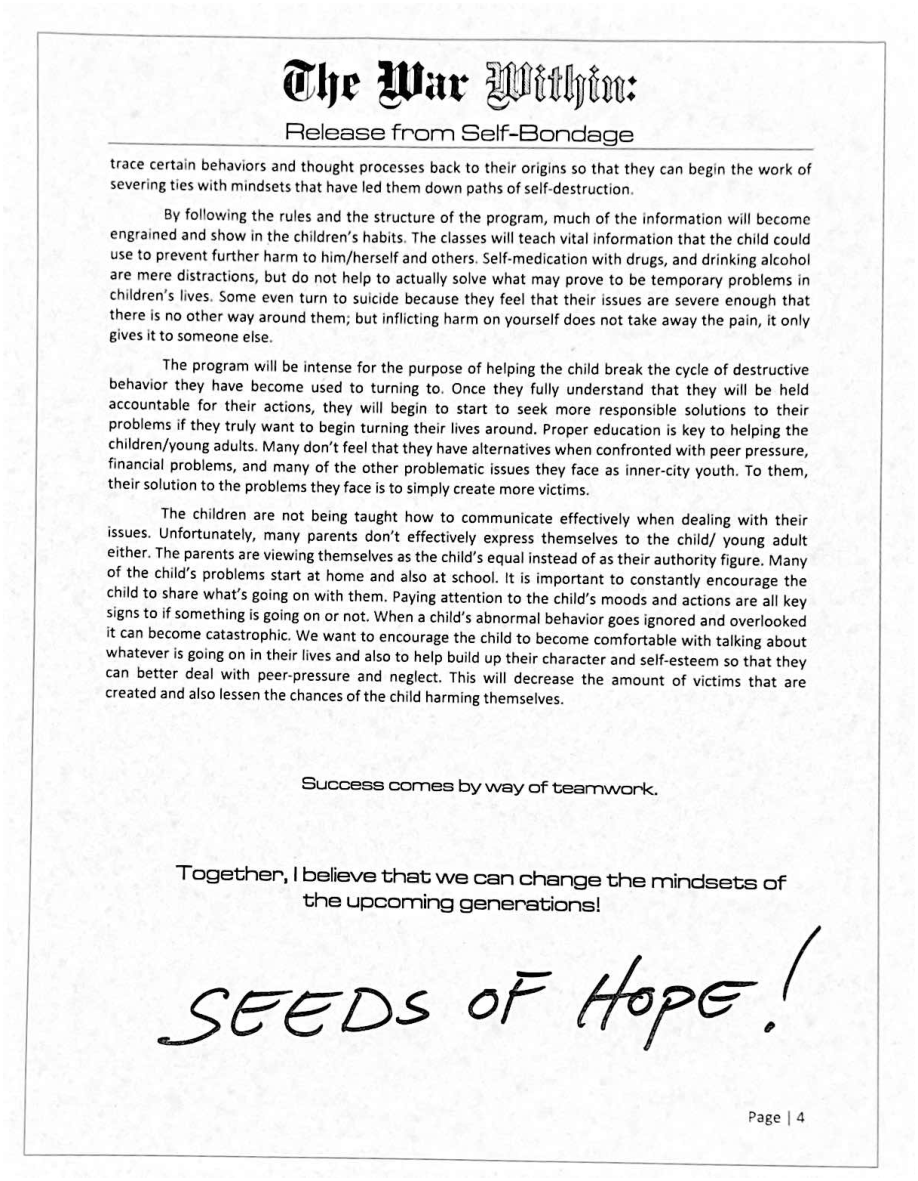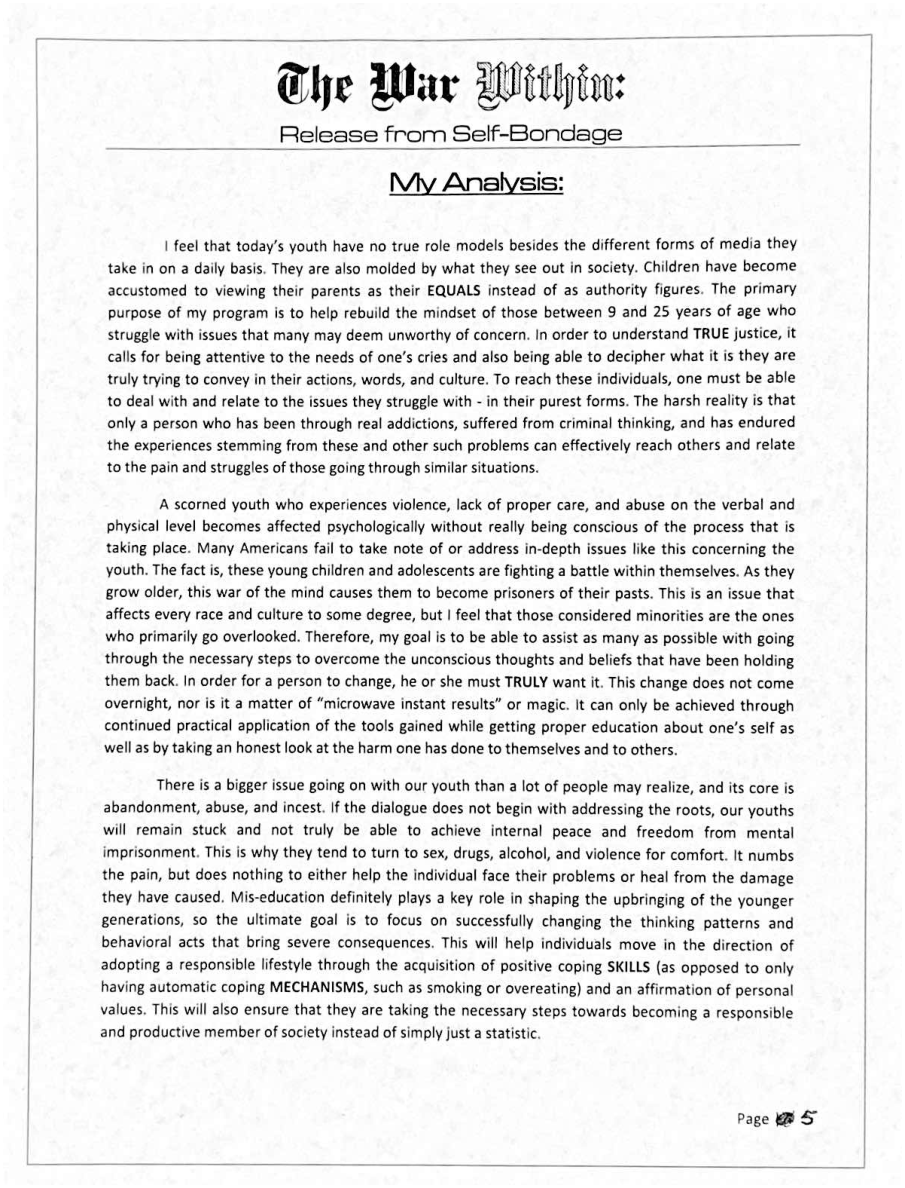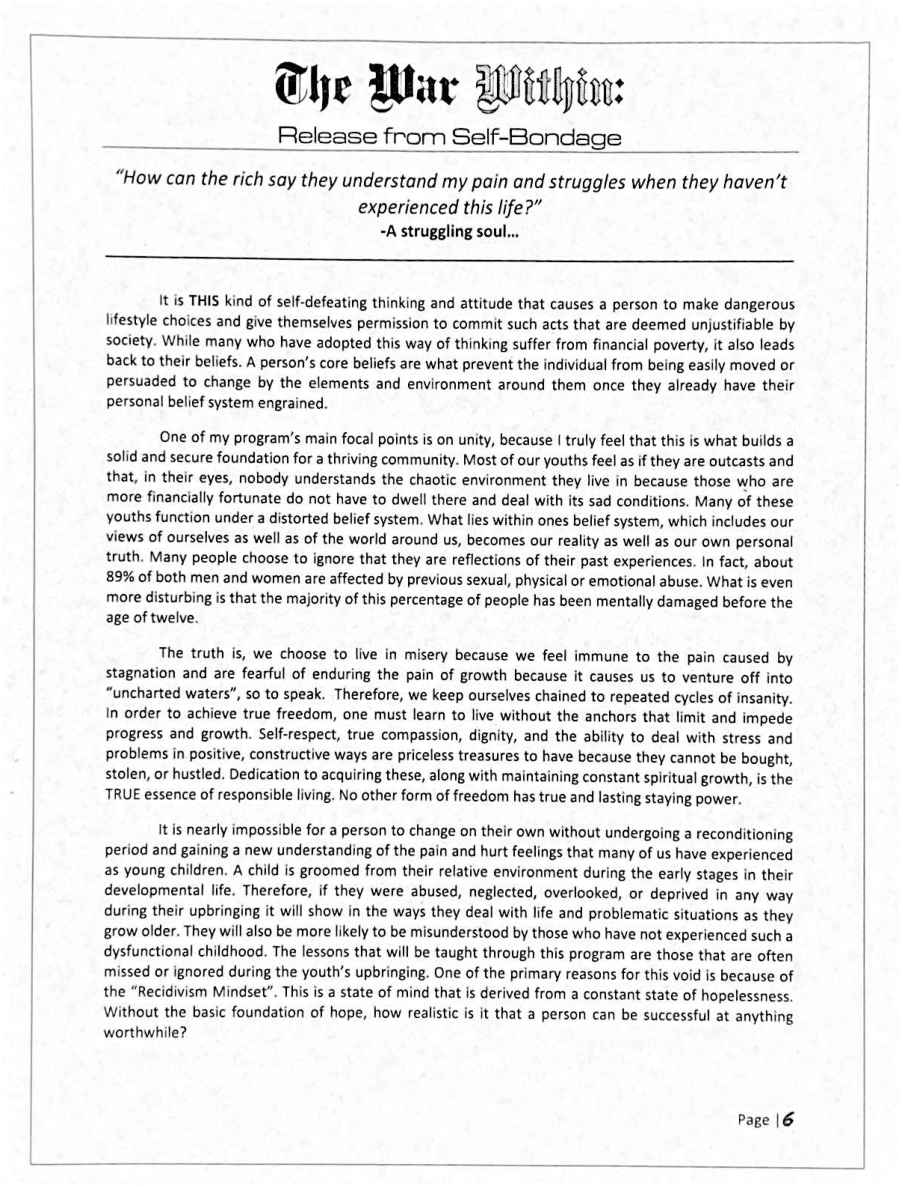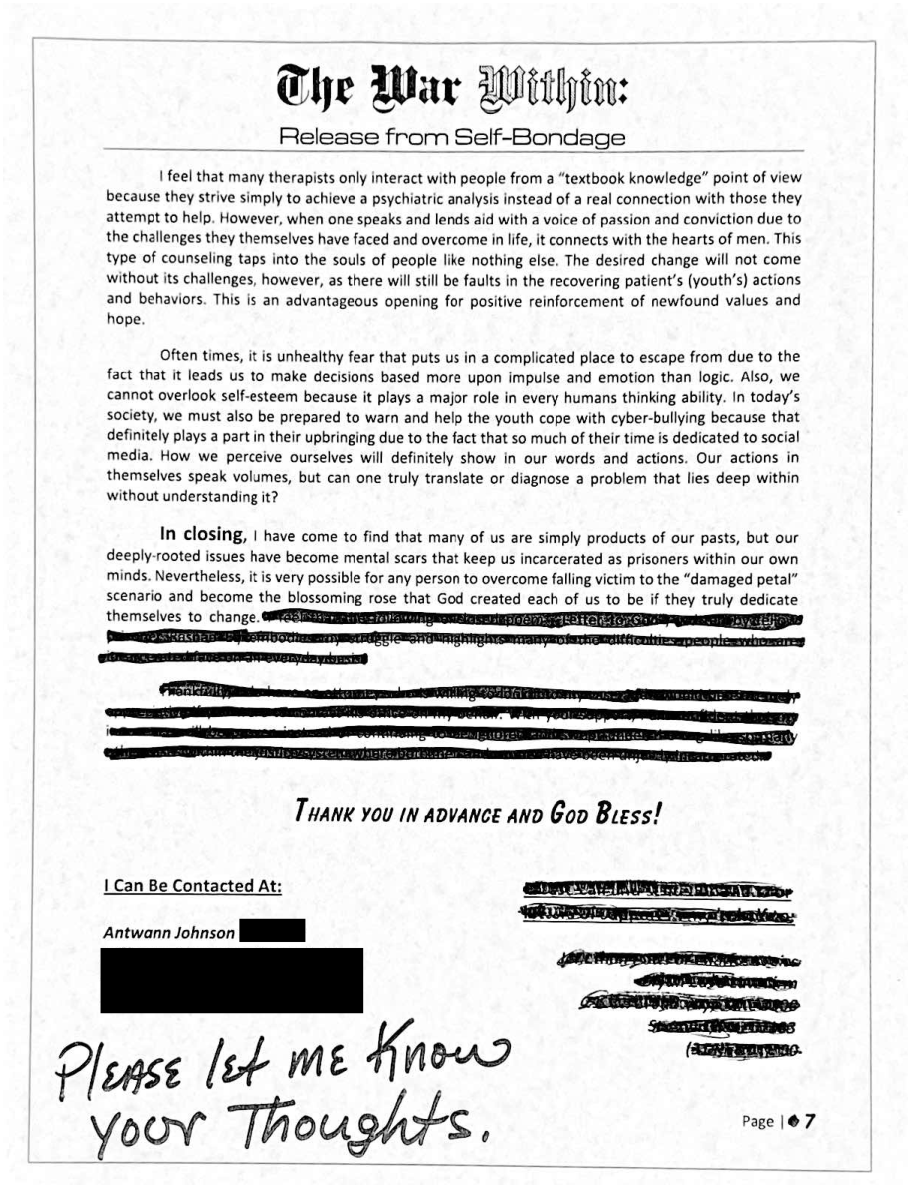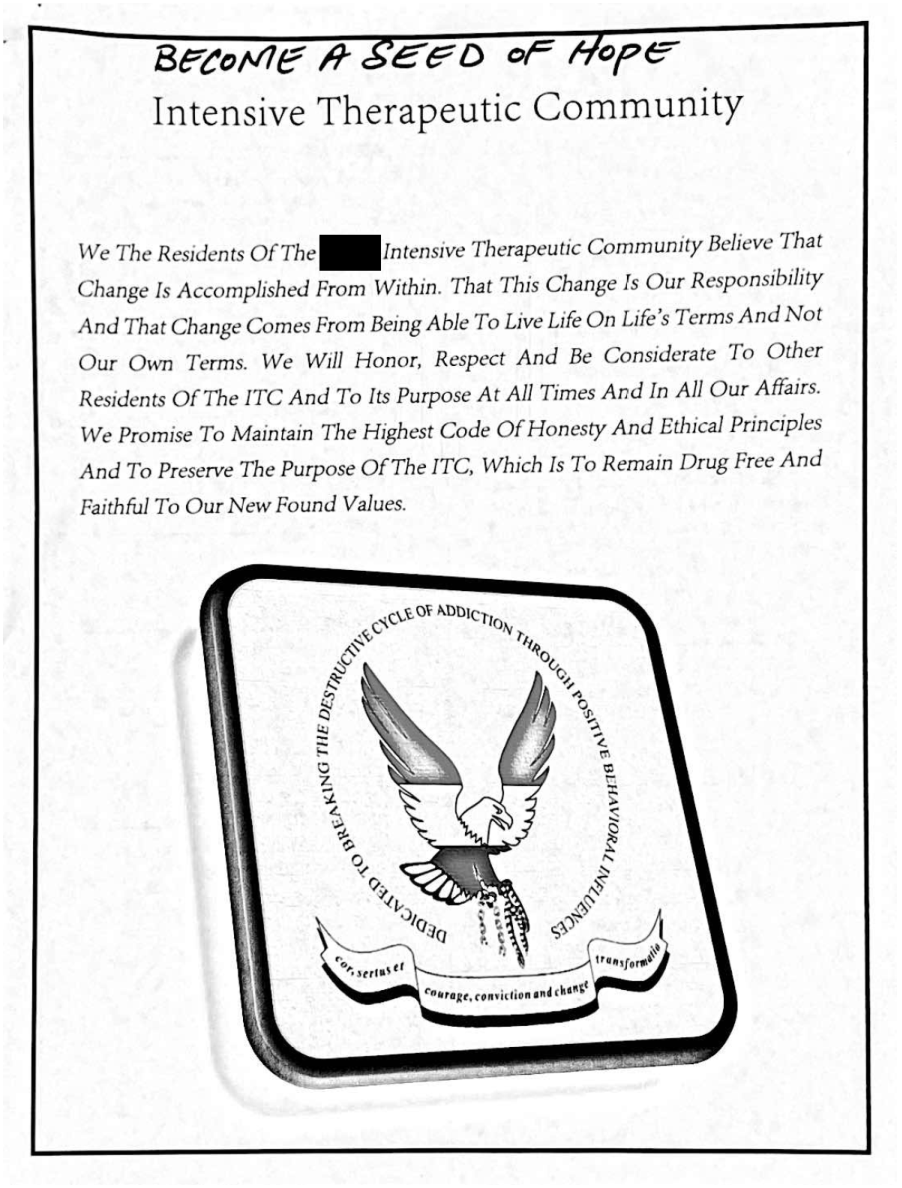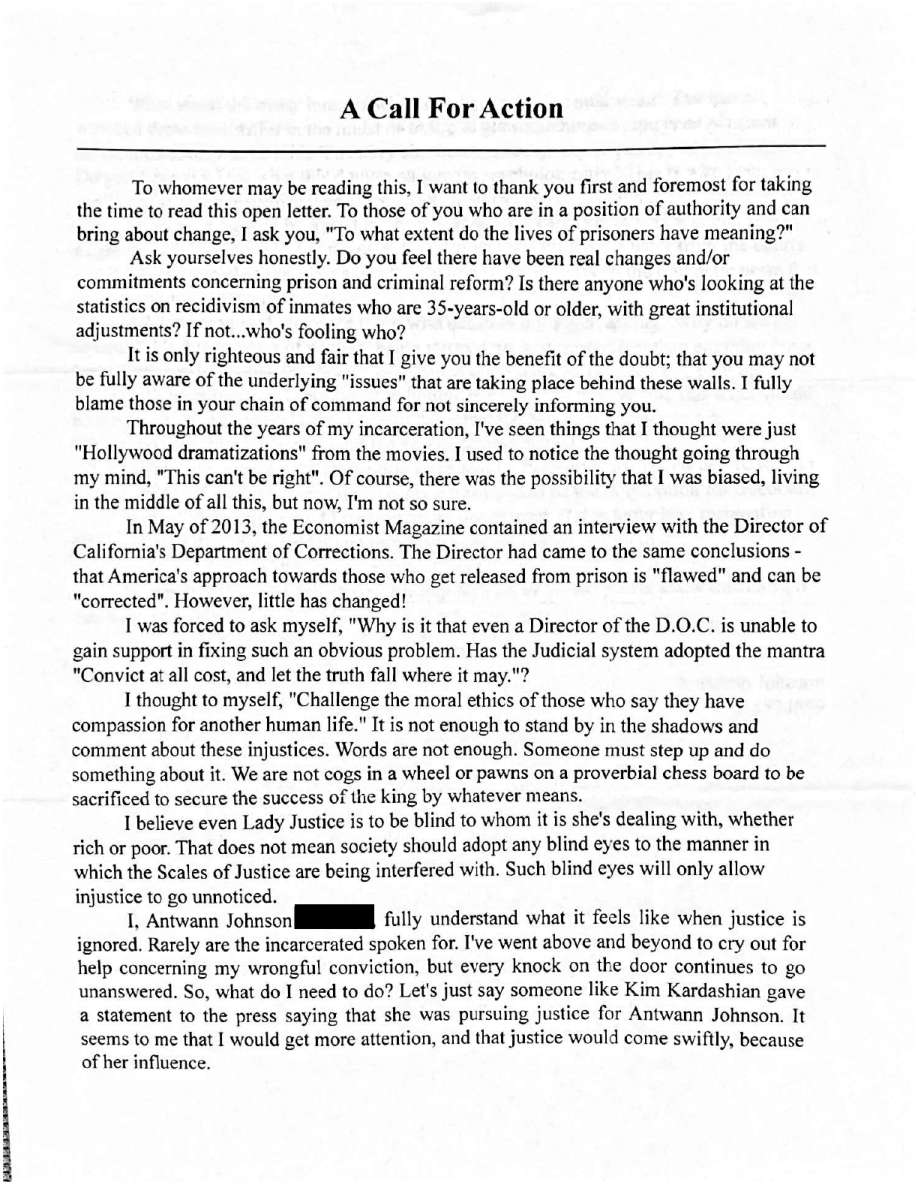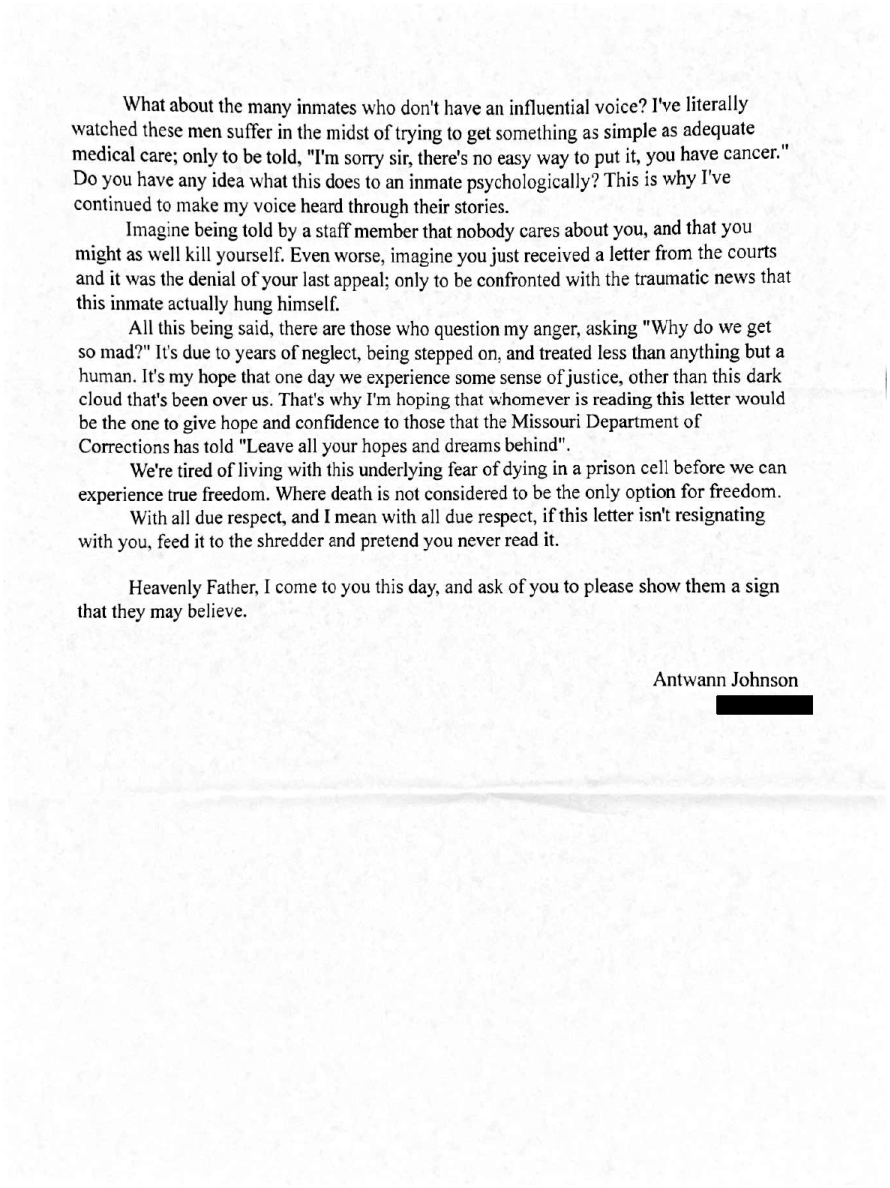Antwann Johnson
- Sleep deprivation
- Addressing class inequities
- Advocacy
- Withholding mail access and oppressive communication policies
- Program Creation
- Legal work from the inside
- Care Work
- Addressing Innocent/wrongful conviction claims
- Being met with silence by organizations
- Mental health care
- Medical neglect
- Addressing forced labor/prison slavery
- Addressing Sexual Violence
- Inconsistent Covid care
- Lack of outside recreation
- Addressing Racism
- Seeking a bridge/advocate between inside/out
- Price gouging
- Addressing issues with juvenile justice system
- Solitary confinement
- Corruption in the trial process
Antwann Johnson
transcription
INCARCERATED Prison's Emotional Impact By Antwann Johnson
Thursday, July 22, 2021 started out as any other day for me. But it was around 10:00 A.M. that something struck me as odd. As I stared out of my window, which was facing the back of the prison compound, I watched as an ambulance, fire truck, and sheriff's car trailed one another onto the prison premises. I didn't pay it too much attention at first, and drifted off into thought until I began to hear a commotion outside of my cell in the wing of the housing unit I reside in. It was the sound of several inmates returning back to the housing unit from their respective work sites. Suddenly, a chill overcame me and my intuition told me that something was amiss, but I wasn't exactly sure what it was yet. At that time, no one was aware of what had just taken place a few housing units down from ours.
Time continued to pass, and again I found myself lost in thought. Our official count time came and went, but we still had not been released yet from our cells. As usual, I figured that the count had gotten messed up somehow. It wasn't until a little after three P.M. when I finally found out the reason why we hadn't been allowed to leave our cells. Another worker had returned to the H.U. from his work site; and as he entered the wing, he yelled out, "Hey ya'll, we're on lockdown because somebody just hung himself in 3-House!" It was at that moment when I remembered the three emergency vehicles entering the prison grounds earlier. With each passing moment, my curiosity grew as to the identity of the man who had decided to take his own life. As I lay in my bunk staring up at the ceiling, the question that seemed to run laps through my brain again and again was "Why did he do it?"
As all of the cells opened and things resumed to normal, I jumped out of my bunk, slipped into my state-issued boots, and headed towards the cell door. As I exited my cell, I nodded at my cousin, [Redacted] or [Redacted] as we all call him, who resides a few cells down from me. What he said to me was a short statement, but quite profound. He said, "Antwann, prison has caused many of us to become emotionally desensitized" and walked away. As those words resonated in my head, I cautiously scanned the wing from the top walk as everyone continued on as though nothing had ever happened.
Eventually, we found out the true reason of why he committed suicide. It was because the emotional impact that incarceration has on prisoners had become too much for him and he felt that a permanent solution was the only way to solve the problems he was facing. I found myself disputing my thoughts and beliefs regarding taking one's own life, but eventually came to realize that he was now at peace because the war that had been raging inside of him was finally over. This time, the tears that fell from my face were because I didn't have to watch him suffer and fight with himself any longer. Some encounters have just become too unbearable to watch. You begin to appreciate life when you see it slip away from someone else. 1 felt the need to have a sit-down with a few individuals that I considered to be conscious so that I could make sense of this act. One of them said, "When we are going through a mental and/or emotional crisis it appears that there is no solution to them but to refer us to mental health only to be placed on psychiatric medication, which is often either experimental or generic, and usually just compounds the problem." I found this statement to be true, but I still didn't feel any sense of peace about the matter. I've seen firsthand how prison robs you of your soul, just as I watched the COVID-19 virus rob inmates of their lives, but to witness someone hang themselves takes your breath away. It's an image that will be imbedded in your mind for life.
While reflecting on California prison systems and how solitary confinement can drive prisoners to harm themselves, you can't ignore what this kind of mental torture does to the mind. As I was writing this, there was a knock at my cell door. It was my cousin [Redacted] again. He said, "What's up? Let's go outside and get some air". As we stood on our housing unit's recreation court in front of the barren prison yard, we noticed an unfamiliar face approach us both. The individual said, "Excuse me Antwann, can I talk to you?" Curious as to what he wanted, I told my cousin to hold on. The guy said he
Page | 1
INCARCERATED Prison's Emotional Impact By Antwann Johnson
remembered me from being a facilitator in the I.T.C prison drug and alcohol program and liked the way that I taught my classes. He said that he needed someone to talk to; and as he began to speak, I listened with a sound car. He confided in me that his father had just died, and that this was his only source of income to survive. He also told me that for some reason unknown to him, the institution had removed him from his honor status and placed him in a lockdown wing as punishment. He was not used to all of the noise and not being able to moving around freely and experience the privileges that he worked so hard to achieve by having good behavior was taking its toll on him.
As he continued to talk, it was as if time had stopped and I was overcome by pure silence as flashes of my own past experiences with death while in prison floated through my mind. When I came back to reality, he was mentioning how rough it was for him to endure the fact that even though he had been staying out of trouble, avoiding confrontation, and trying his best to maintain a consistent pattern of responsible behavior, it was still all stripped away from him without any justification or warning. Then he said, "What should I do, Antwann?" These are the words that sent chills through my body because I knew that here standing before me was someone crying out for help. I gave him what little advice I could to explore responsible options and tried my best to console him; but I knew that despite my words, he still felt like he was dying on the inside. This situation is not as uncommon as one on the outside looking in may think. There are many of those in control who have the power and authority to actually help rehabilitate individuals who are incarcerated by granting them rewards for good behavior and instituting more programs that will aid in us getting out and staying out who would rather either find the smallest reasons to take things away from us or just punish everyone as a collective whole for the actions of a few due to their personal feelings and misgivings regarding people who are locked up. Going through this day after day, year after year, you begin to lose hope, feel unworthy, and tell yourself, "Maybe I have no place on Earth, anyway." After this, 1 found myself reflecting on conversations I'd had with my brother of newfound values, [Redacted] . [Redacted] is often the voice or reason; because with having been locked up for over a decade himself while serving a life sentence, he fully knows the emotional impact prison has on us who strive so hard to do right in the midst of so much chaos.
As I write this, I think about being faced with one of man's greatest fears, passing on from this physical form. I had come face-to-face with this many times as a hospice worker in the facility that I reside in and you never truly recover from the experience of looking death straight in the eye, and the death of two inmates in particular will live with me forever. The emptiness that lies within the cold stare makes it clear that there lies a shell with no soul within it. There would be times when I would just stand in the unoccupied hospice cells and allow the silence to envelop me, knowing that recently someone had Just died in this room. Sometimes I would even touch the bed or run my hand along the top of empty locker, hoping I could still feel the remnants of the energy of whoever had recently passed on; remembering the conversations, laughs, and memories that I had shared with that person. So many thoughts would pass through my mind during these times alone, but the biggest one would always be wondering what it felt like being in their shoes; knowing that I would die in a cold prison cell and never experience freedom in the outside world ever again and doing whatever I could to make peace with God and settle my mind before I departed from this earth.
Just recently, on a Sunday, I went out to the big yard recreation to discuss this story with [Redacted]; and as I stood at the gate of the housing unit [Rashad] is in to wait for him, a sudden rain forcefully descended down from the heavens. Everyone on the yard scattered to try to find shelter, and I could see the medical cart leaving from the housing unit that I leave in. At first I thought it was just
Page | 2
INCARCERATED Prison's Emotional Impact By Antwann Johnson
another Code 16 (medical emergency), which was common for my housing unit because of all the sickly and elderly patients housed there, but I soon found out just how wrong I was. As most people went into the gym to get out of the rain, I decided to make my way all the way back to the housing unit. I entered the house drenched in rain, and several Inmates ran up to me telling me that my cousin [Redacted] had just fallen out in the sally port. Confused and trying to process what was just said to me, I continued on to get my shower and change out of my soaking wet clothes. As the whispering and gossiping continued to grow as to the cause of [Redacted] situation, it would take three days for the final conclusion to become clear. On Wednesday at 7:30 AM, I noticed [Redacted] on the phone with his head down. When he finally looked up at me, the pain that I saw in his eyes told me all that I needed to know. I turned and went back into my cell, lifted my head to the sky and yelled, "God, WHY !? What do you want from us !? Why are you allowing us to die in prison this way !? " As the tears flowed down my face, I knew that [Redacted] was hurting as well, and there was nothing I could do. [Redacted] had suffered a massive stroke, which left him brain dead, so a loved one was left with the choice of making the heart- wrenching decision to pull the plug on him. I'd just sat with COVID-19 inmate patients and watched them fight for their life only to succumb to the deadly disease, and now I also had to endure yet another person close to me lose their life behind these prison walls. This left me to wonder, "What does God have in store for ME?"
Prison becomes a day-to-day Internal assault on the mind and soul; because along with being stuck in such a chaotic environment, some officials feel that it is part of their job to add to the suffering that we already endure being separated from society and our loved ones. There are those who use being in a position of power to take out the frustrations that they deal with in their personal lives on us, or who are already biased against all individuals who are locked up because of past experiences in their lives. Then you also have the ones who are racists, and let their viewpoints regarding skin color be known through their words and actions when dealing with us. You would have to experience this life and be immersed in it to fully understand its impact. The feeling of helplessness that comes with being incarcerated builds up to almost an intolerable level over time because if you lash out and retaliate to the animosity, then you run the risk of getting even more time added to your sentence so you just get used to the feeling of being worthless because that's how you are treated regardless of how much change or rehabilitation you experience while being incarcerated.
Injustice when it comes to the judicial system is not new; this has been going on for a very long time ... so why isn't it resonating with society? What has really changed since the "shackles and chains" era? Why did an inmate have to sacrifice his life to try to gain some semblance of peace for himself? To whomever is reading this story, I wish that for a brief moment you could tap into my mind and my heart and experience the overwhelming anguish that I have carried for so long as I fight to reclaim the freedom that was taken from me over two decades ago. Tears flow from my face onto this paper simply because no one knows the pain that comes along with being in prison. The grotesque picture that is painted of this place and those housed within these walls only goes to further the agenda of amassing profit off of those who have been lost and forgotten. It seems as if the focus only goes onto those with the worse crimes and attitudes, and not on those who are either innocent or are truly remorseful for their past actions and have changed their lives for the better. It all amounts to a scare tactics used to frighten society into continuing to shell out tax dollars towards keeping us behind bars instead of giving a chance to those who deserve it. This is the main reason why the 85% law for those with violent crimes has not been changed even though it has shown to be highly ineffective and has ultimately created more problems than solutions for the prison industry. It is even worst for those like me who are serving life without the possibility of parole because it creates a pit of misery within a person that causes them
Page | 3
INCARCERATED Prison's Emotional Impact By Antwann Johnson
to eventually self-destruct if they are not mentally and emotionally strong enough to continue to endure.
Everything in here has a price tag, from the canteen items that have taxes on them, to calls and e-mails to loved ones, to the music and games that we purchase for our tablets, court costs, lawyer fees, etc. We are walking dollar signs, and the actual rehabilitation that takes place is only the bare minimum because the money made off of the revolving door aspect of recidivism in terms of individuals who get out and come right back because they don't have the healthy emotional and mental foundation to make it in society far outweighs the efforts being made to actually help these people. If everyone who got out of prison actually received real rehabilitation to where they got out and stayed out instead of being warehoused with outrageous amounts of time that reflect the notion that we don't deserve a second chance, then how would the prison industry continue to thrive? I'm tired of asking for help only to continue being ignored. I'm tired of pleading for my life just for it to fall on deaf ears. I'm tired of being placed in Administrative Segregation because of my concerns due to complaining about conditions being frowned upon in the eyes of the institution. Where is the conflict resolution? Where is the true care and concern? Where is the real justice? Who will be the next individual to give up hope behind these prison gates and die without being given a second chance or decide to end their own life just to gain peace?
So I ask Ms. Walton, why Dose Stories like these continue To Go Ignored ?
WHAT is True Justice?
From: The voice OF Conviction. Antwann Johnson
Page | 4
Antwann Johnson
transcription
To Whom It May Concern:
For most of my life I, [redacted], have felt as though I had little meaning or purpose. Coming to prison did nothing to help with that feeling either. Not that I expected that it would, but I did expect "Correctional Centers" to actually want to correct my behavior; and in that, maybe I'd find some purpose. I was left wanting. So, I found purpose in the simplest of places. .. our street name-No More Victims. Yet, seventeen years later, and I find myself frustrated; seeing that not many share in this purpose and how correction does not seem to be the primary goal here. Rather, it appears to be the warehousing of as many people as possible, using federal funding to make a profit. All the while, most of the nation site idly by, ignorant to the fact that in the process of deciding who should be released, actual correction seems to matter little. From all I have observed, it's a "numbers game". The parole board considering things like the age of the offender or the amount of time served, while paying little to no attention to the changes in behavior the offender has displayed. This is a contradiction. How can the goal of 'No More Victims' be met, if the prison system continues to release victimizers who care little about changing their lives? We should not be okay with this. The cry for "No More Victims" must become the heartbeat of our lives in and out of prison.
Throughout the years of our incarceration we have seen things that we thought were just Hollywood dramatizations in the movies. We used to catch these thoughts. "This can't be right, " we'd tell ourselves. Of course, there was the possibility we were biased, living in the middle of all this, but now, we're not so sure. In May 2013, the Economist magazine contained an interview with the Director of California's Department of Corrections. Even he reached similar conclusions that America's approach towards those who get released from prison is flawed and can be corrected. Yet, little has changed. We were forced to ask ourselves why it is that even a Director of D.O.C. is unable to gain support in fixing such an obvious problem. The answer must be that either there's not enough interest or not enough awareness. Our hope is the information that follows will do both.
As 'dangerous felons", from the beginning of our incarceration, we were told that no matter what we do, we must serve a minimum of 85% of our prison sentences. "Does that mean, " we wondered, "we can do whatever we want and still get released at 85%?" The answer is yes. This "do what I want" mentality is the same problematic thinking that leads most to prison and should not be allowed to continue and still result in release from confinement. More victims are created this way.
Thankfully, some of us "want" a different way of living. We decided to use our time in prison to change the thinking errors that brought us here. So, we asked to participate in programs offered and in some cases were denied. Often, treatment is offered only if parole consideration is close at hand or if parole refers us. But we didn't want to wait; we wanted to change now and practice these new habits for the decades to follow, still, these programs were denied to us. This makes little sense. For many, a deep feeling of hopelessness can set in, fueled by thoughts like, "I can't get help even when I want it, so why bother? I should just end it all. " Many turn to drugs, violence, or suicide. But we had to resist those notions if we were to avoid repeating the past behaviors that led us here. All of which would only hurt the people we love, and we have done enough of that already.
Sadly, in some cases, the guilty are being released while the innocent remain incarcerated. There are many people throughout the Department of Corrections who were wrongfully convicted. This is the result of a system, a society even, that seems uninterested in what a person has done, is doing, or will do for his community. Most certainly this is not the intention, but intentions are irrelevant when the actions are those of self-serving, self-centered people who care only how "you can be of use to me. " Though they would never say this aloud, their actions speak louder than their words. It is not enough to stand in the shadows and comment about the injustice of it all. Words are not enough. Someone must step up and do something about it. People are not just cogs in a wheel or pawns on a proverbial chess board to be sacrificed by whatever means to ensure the success of the king. One of our nation's founding fathers, George Washington, obviously felt this way when he said that out of 100 men he would rather see 99 guilty men go free than 1 innocent man spend a second behind bars. Extreme? Perhaps, but he
2
makes an important point-it is a great tragedy if innocent people are victimized by the system we've entrusted to ensure the exact opposite happens. We inmates must see our part in this problem as well, for we are not as separate from society as some may think. Obviously, we have the tendency to be self-centered as well, but we believe this is the first step toward becoming more other-centered, now that our eyes have opened to this faulty way of living. If "No More Victims" is the goal, then most definitely these people should be set free from a system that has failed them and made victims of them.
We think even though "Lady Justice" is to be blind to who it is she's dealing with (whether rich or poor), that it does not mean society should adopt any "blind eyes" to the manner in which the "scales of justice" are being interfered with. Such "blind eyes" will only allow injustice to go unnoticed. Let a loved one experience these conditions and all of a sudden our eyes are no longer blind; nor our ears deaf to the many cries for help that were previously ignored. Too often are situations ignored that don't immediately effect or personally involve us. And if these words are sincerely resonating with you, then why not come talk with us? Here's a little something one of us would like to personally share with you!
"Rarely are the incarcerated spoken for, I, Antwann Johnson, fully understand what it feels like when justice is ignored. I have went over and beyond to cry out for help concerning my wrongful conviction, but every "knock on the door" continues to go unanswered. So, what do I need to do? Let's say someone like ... Kim Kardashian were to give a statement to the press that she is pursuing justice for Antwann Johnson, it seems I would get more attention and then justice would come swiftly solely because of her influence. "
In regards to the consideration of inmates for release, we propose that instead of playing the "numbers game' of how old we were when we committed our crime(s) or how long we have been incarcerated, the parole board could better serve the community by putting much more consideration into the behavioral changes, or lack thereof, which have occurred in each inmate's life. This we see as a step in the right direction toward achieving our goal of "No More Victims. " So, here are some things we have noticed in the behavior of someone who is continuing to change; and also propose as some requirements in a potential "Good Time' credit for parole consideration:
*Have served a minimum of 15 years.
*Successfully completed G. E.D. /Hi-Set, I.C.V.C., I.C.T., or at least 5 vocational programs.
* Maintain a responsible institutional record (i.e. at least 10 years no major conduct violations & 5 years no minor conduct violations. ]
*Shown steady employment history for a minimum of 3 years.
*Be viewed and considered by a specific program board of staff.
Too often people are released who show no interest in change while those who are changing, or innocent, remain confined. We pray this letter is seen for what it is-a cry for help-because without help, these problems will persist and continue to create more victims both outside and inside these fences. We see meaning and purpose in our lives now, thanks to the men around us who guided us towards changing our thinking and behavior. We truly believe that raising awareness to these issues, and doing what we have done to assist others in their change process over the years, is what we are meant to do. We hope that whoever is listening will come see for themselves and hopefully talk with us about how to make these Departments truly places for Correction.
PLEASE GIVE Us the opportunity To SHARE this with you!
Antwan
When Justice Goes Ignored .. By Antwann Johnson [Redacted]
I was sitting on a bench outside of our housing unit on the rec yard, trying to absorb the fresh air while lost in thought, when an unfamiliar gentleman came and quietly sat next to me on the bench. For perhaps 10 minutes there was complete silence; then, out of nowhere, he broke the silence by saying,
"I see your pain. it runs deep. It appears you're searching for 'justice', but she's just an illusion"
It was as if he was lead to me by the Holy Spirit to deliver these thought-provoking words that pierced my soul. It was becoming more clear to me than ever that it would be difficult for me to find true peace without finding the answer to all of the questions I had bottled up inside of me. Voices of conviction have now been translated through often-heard quotes such as "I can't breathe", "Hands up, don't shoot", "Say Her Name" "#MeToo" "Black Lives Matter", and many others. Experiencing such injustices as my people have has created numbness and desensitized many of us, allowing one to question does life really have true meaning. It's love that defines all understanding. When we quit chasing an illusion we will surely find love. Justice is love and you can only find it within. Love has no boundaries; it's the understanding of all reasoning. Exercising your ability to confront wrong is love in the form of justice. After all that has been done to us we remain a humble, loving, God-fearing people. When the riches and well-being of those who are wealthy is threatened, it becomes a cause for alarm, but those same individuals refuse to accept the truth of what is and question my pain and anger. Am I still a slave in their eyes? Was I ever truly "free?" Now that I've found refuge in the Lord and built up my confidence and self-esteem, why does it offend them? They still refuse to look me straight in the eye.
So I'm asking you again, what is Justice? All I've ever asked for was the truth. "The lost cause" was the defeat of the southern confederates. 1776 would define true history. 1865 gave one nation hope for the future. During the 19" century, "I have a dream", was a call for change. The honest truth is that many of us have fallen victim to the underlying political agenda. It was never about racism per se. "Racism" became a learned behavior to Implant fear in "colored people" to prevent them from becoming independent. It was, and always has been, about the money; the almighty dollar. The rich get richer while the poor die and get imprisoned, True freedom may come at a price for me, this I know. Just as Jesus knew he had to take up the cross in order to fulfill the prophecy. It was the love and forgiveness he showed towards his persecutors that changed the hearts of us.
Why do I have to live in fear under the belief that my life has no real value or meaning? After physical bondage was abolished, why was mental slavery instilled in a race to prevent them from thriving? Despite attempts to destroy my pride and ambition, I will continue to not only survive, but I am determined to win. My connection with God is imbedded in my essence, my DNA, and shines through my melanin. I know who I am now and my purpose; I am determined to succeed even in the midst of being viewed as just another stereotypical black man behind bars. Regardless of anyone's personal thoughts about what is or isn't justice; one thing is for certain, we all know what it looks like ...
when justice goes ignored ...
When Justice Goes Ignored ...
By Antwann Johnson [Redacted]
What is Justice? Who does It work for? Who possesses it? What does it look like? Webster's definition of justice is:
Fairness or righteousness; the administration of what is just.
It's something that we should honestly contemplate. As I picture Lady Justice in my mind, I notice how she holds the "scale of justice" up high, which is supposed to represent equality. But more importantly, she's blind folded; symbolizing that justice is meant to be blind to color, race, creed, or financial status. I've asked God to direct my path with writing this essay, and pray that I do not come off as a hostile individual; but in order for you to fully understand what it's like living in my skin, you also have to understand the underlying pain ... angst ... suffering ... and sorrow possessed not just by me, but by all those who look like me as well. It is not only from being stuck inside a broken judicial system for so long, but also from being trapped within a broken society that seems to not want to come to terms with the foundation of inequality and prejudice that has formed and fueled this country for many generations. I ask that you please read this with an open mind; for, these words are written from the heart.
We all function under some sort of a belief system, and that system is based upon two roots. 1) fixed beliefs, and 2) personal truths. Many of these are formulated within the household, so we go out into the world with ideals that may or may not reflect the actual truth. The historical acts of inequality and injustice towards America's minorities have caused great pain and unrest that left an unmistakable scar on my people that will take years of reeducation and love to reverse and heal. To say that you don't see race when you see me is to say that you don't see my ancestors who were separated and sold based upon their physical strengths and weaknesses .... that you don't see my great-grandfather being dragged from his house in the middle of the night while his family looked on, lynched, then set on fire ... that you don't see my uncle being looked over for a job based upon the color of his skin even though he was the best in his professional field .. that you don't see the fear in the older woman's eyes as she passes by me on the street while clutching her purse tighter without even knowing me as a person to realize that I pose no threat.
America tells me that I am not supposed to be angry ... that I'm not supposed to be hurt ... that I should forgive and forget ... but is it really that easy? Where was the justice when the individuals who burned Black Wall Street were allowed to go free? Where was the justice when a black child, whose only crime was wearing a hoodie, was gunned down? Where was the justice for Emmitt Till? Even after slavery was supposedly abolished, peonage became the new form of enslavement and jalls/prisons became the new plantations. Where was the justice in that? Where was the justice in segregation? In forcing my grandmother to use a toilet 2 blocks away when there was one right there in the same building she worked in? It is said that good and evil lie within the hearts of man, but misplaced hate makes disgrace of races. Wrongful convictions date as far back as the 1700's when innocent African-American males were kidnapped against their will and forced to stand helplessly as they were beaten and hung from trees. As a youth, I was too blind to see that by falling victim to the allure of the street life I was being unconsciously lead down a route of chaos and destruction because media; more specifically, music, movies, and television; had painted the picture of the "thug" as being glamorous and something to be glorified .... right along with selling drugs, violence, and going to prison. Now that I see that this was just a mechanism that was purposely set in place to cloud the minds of the youth in order for them to not realize and activate their true potential for greatness, I feel a deep longing for the truth. How is the African-American in today's society REALLY viewed? And is there any real justice for an individual in a country that was constructed with the ideal set in place that a person with "colored" skin was considered less than human?
Antwann Johnson
transcription
"Against The Odds" For A Worthy Cause ... By Antwann Johnson [Redacted]
My name is Antwann Johnson [Redacted], and I felt compelled to share with you my personal experience with the COVID-19 pandemic while being incarcerated. To be perfectly honest with you, what I've witnessed through my eyes has changed my life forever. This Is my story. On October 16, 2020 my day started as any other day. I was preparing to check in on my patient to begin my daily activities as a DLA (Daily Living Assistant), But all of that would change when I was approached by the Housing Unit FUM (Functional Unit Manager) who asked me if I would be willing to live in the Medical TCU Unit for the purpose of giving assistance to the nurses and medical personnel who cared for inmates that had contracted COVID-19 and were severely ill and dying.
At first, I felt reluctant because this virus was still a mystery to us all. Not long after that conversation with the FUM, I was confronted with terrible news. I was informed that my cousin and two of my close friends had tested positive for the COVID-19 virus. It was at this point that a sense of fear came over me. One of the biggest reasons that i made the decision to go to the TCU Unit was so that I would be able to face and confront my greatest fear, which is dying alone. I've seen firsthand how many of the inmate patients don't have any family or people who care about their wellbeing. It would be two inmate patients that I grew close to while they were battling COVID-19 who had a bittersweet ending that would ultimately give me the strength to continue fighting for this worthy cause.
One of the patients of whom I helped to care for was [redacted], who was 64 years old and had been diagnosed with both COVID-19 and pneumonia. He was in such bad shape that the outside hospital sent him back to the facility and said that he would not make it due to the fact that his lungs were so severely damaged. As he lay in his bed, I just stared at him and imagined that it were me lying in that bed fighting for my life. As time went on, we became close and I did all that I could to assist the nurses with getting [redacted]'s health back to where it once was. He thanked us all, because he knew that his condition was bad and that we were doing our best to keep him alive. He expressed to me how he didn't have any family or friends, so I took it upon myself to care for him as if he were my own family.
It was around this time that we also received [redacted] into the TCU unit. He was diagnosed with terminal cancer. This was a death sentence for him. [redacted] knew that i had a passion to help others, so he did not feel neglected or alone while I was aiding [redacted] I have to admit, [redacted was a fighter. Just as with [redacted] and I became close, and there were even times when [redacted] would not allow the custody staff to touch him unless I was present. You would have to be here to truly experience the joy these patients bring to our medical team and vice-cersa. Collectively, we're a big family that relies on each other for strength and support, and we have the biggest prison medical facility In Missouri.
Each nurse personnel plays a pivotal role in making this unit function, but it's the hospice workers who give compassion for human lives its true meaning. There would be times where [redacted] would make us laugh, and there were times, as we all knew, where there would be tears. While we were experiencing the outbreak of COVID-19, there were a total of 25 patients who had contracted the virus assigned to the medical TCU Unit, and 8 deaths due to complications with the illness. There were countless more inmates in the general population of the prison who had COVID-19 as well. The primary purpose for all 4 of us inmates selected to live in the medical unit was to help prevent any cross-contamination or spread of the virus as much as possible. We literally gave up everything to assist the staff. For me, someone who is trying to prove my innocence regarding a false conviction for a murder that I did not commit, it was very difficult not being able to go to the law library. I also missed going to the gym, and simply being outdoors enjoying the company of friends. But again, I knew that these inmates were relying on us for help, so I had to be selfless and look at the bigger picture.
There were times when things were so chaotic that nurses wanted to just walk off the job, and we 4 hospice porters were losing hope in this fight. I know that just staring down at a lifeless body did something to us all emotionally. There would be times when the power from the generator would go out, and we would sit in the still darkness, quiet, listening to the halls, wondering when we were going to hear our names being called for assistance. There was one pivotal moment where i found myself questioning life itself, and that's when I was spending time with one of the COVID-19 inmate patients. What he said to me still lives in my thoughts. He said,
Page | 1
"Against The Odds" For A Worthy Cause ... By Antwann Johnson
"[redacted](my nickname), it's funny how cruel life can be, huh?" I responded, "What do you mean?" He replied, "] never smoked in my life, but I'm dying from lung cancer, and I have COVID-19." Then he said "It's ok, because I know I don't have long. But I want to know, [redacted] why do you do this kind of work?" My response was, "Because I hope that if I'm ever in your situation that someone would be there by my side in my time of need" Two weeks later, he would be dead. During the rougher times, I found myself stepping into an empty cell for a few moments because I had to pull myself together mentally, emotionally, and also spiritually. If I told you I wasn't affected by the death of another human, especially one I'd grown close to under these circumstances, I'd be lying. I honestly have a newfound respect for any and all healthcare workers. While I have been a hospice porter working alongside medical personnel I actually feel like a real human being and not just some worthless criminal. This is the first time in my [Redacted] years of incarceration that I have felt like this. But the question I ask is who actually cares enough to feel and see my pain through these eyes?
It's hard to hold back the tears as I think about all of the work we have done, but how we've received little to no recognition for our help and support from the prison officials who are higher up. I've witnessed firsthand how this virus attacks the body with no regards for human life. The times when we all worked together to give [redacted] the best care, we were lucky if we even got 5 hours of sleep. Unfortunately, nothing could prepare me for that day and hour when one of the hospice porters woke me as I was getting some rest and informed me that [redacted] was no longer with us. I rushed to my feet so that I could begin the process of notifying his family, but it was another inmate by the name of [redacted] whose words reverberated through my mind. [redacted], and even C.O. [redacted], asked me if i was alright because they both knew that[redacted] and I had grown close.
It has been a rough journey being a hospice porter, and it has definitely humbled me. There were many times when I felt lost, confused, and couldn't process the loss of the other patients we had. There were only a few nurses who witnessed how we were impacted by these deaths. For us 4 porters, it definitely brought us closer together. The fact that we put others lives before our own convinces me of how compassionate we actually are; but the mere fact that [redacted] and [redacted] were my two friends that initially caught the virus first, but they came back to work in order to help others knowing that they could contract this deadly virus again and die, gave me the strength to say, "Against the odds, for a worthy cause".
I'm hoping that the impact of my experience gives life to an interview with the media or a news station. I believe that people in society have the right to know what this virus has done to us all, but especially to those who are behind bars. Over 500,000 humans in the U.S. have been affected by this virus in some way, shape or form. But for me, an innocent man fighting a murder conviction only to witness COVID-19 kill 8 people before my eyes, has me now questioning life, wondering where is the justice, and if death is the actual answer to true freedom. I've truly become a broken shell among damaged petals. If there is anyone beyond these gates who is willing to listen, please become that "SEED OF HOPE" and share my story, because i'm only a Voice of Conviction.
For possible interviews or letters of encouragement, I can be reached at:
Antwann Johnson
PLEASE TELL my story
Sincerely.
Antwann Johnson [Redacted] CEO, Voices of Conviction
Page | 2
A Light In The Darkness ... By Antwann Johnson [Redacted]
As I write this, my tears fall upon the paper from all of the memories that come flooding into my mind from everything I have endured during [Redacted] years of being wrongfully incarcerated as an innocent man for a murder that I did not commit. I am now sharing my story with you in hopes that perhaps, just for a brief moment in time, you can see life through my weary eyes and understand my struggle, my anguish, and also the reason why I continue to hold onto hope despite being trapped within a severely flawed and biased judicial system; allowing that hope to forever be my beacon light towards mental freedom as I anxiously await the day when that becomes my physical freedom as well. So much has been taken away from me throughout these years ... life ... family ... dreams ... and I pray that when you are done reading this you can find it within your heart to offer aid and assistance to a broken man whose cries for help have gone unheard and ignored for so long that it leaves me to wonder if true justice really exists.
My name is Antwann Johnson [Redacted], and [Redacted] years ago I was arrested, questioned, charged, and unjustly convicted for the First degree murder of a man named [redacted] I was only 21 years of age at the time of my arrest, and I felt lost, scared and confused as they harshly interrogated me for over 9 hours regarding a crime that I knew nothing about. The detectives told me to my face that they considered me nothing more than a "young, block, street thug", and I could tell that their intention was to put me behind bars regardless of if I was actually guilty or not. This was an extremely stressful situation for me, which led to them coercing me to give a false confession that was brought on by my fear, exhaustion, and yearn for the entire ordeal to just be over with. Once i was moved to the processing & booking building I told the authorities that I wanted to take back everything that I had previously told the detectives while I was under duress, but by then it was too late. 17 months after the traumatic night of my arrest, I was found guilty after a 3 day trial and sentenced to Life Without Parole. When it comes to my case, the prosecutor intentionally withheld important evidence that would have changed the entire outcome of my situation had it been disclosed to my public defender or for the jurors to hear and consider during the trial. This was the prosecutor's way of ensuring that a conviction was secured, despite it being achieved at the expense of an innocent man's freedom.
The two key witnesses for The State who implicated me in the case were a woman named [redacted] and also a man named [redacted] ([redacted] was dating [redacted] at the time). 30 days after my arrest, [redacted] got in contact with the Circuit Attorney's Victims Unit to inform them that she was being repeatedly threatened about my case by a man she knew as [redacted]. She confessed to the State that she had failed to initially give them a key piece of information regarding what she had actually seen regarding the murder of [redacted] out of fear that [redacted] would harm her. [redacted] stated that on the night of the murder she witnessed [redacted] standing over the body of [redacted], going through his pockets as he lay dead on the ground in the gangway outside of his residence. [redacted] also told them that [redacted] had come to her house, which was 3 buildings down from where the victim had been killed, a short time after the encounter. While at her residence, [redacted] gave [redacted] approximately $25-$50 of the victim's money. After revealing this information, [redacted] and her [redacted] were placed in a hotel by the prosecutor in an attempt to keep her safe; but sadly, she was killed a week later while attending a party in the same neighborhood where she had seen[redacted] robbing [redacted] dead body.
Once authorities realized that [redacted] was to be a witness in a murder trial, they conducted a thorough investigation into her death which included re-interviewing [redacted] Edwards admitted that [redacted] had indeed given him some of the victim's money that he had stolen, and that [redacted] had told him it was a robbery that had gone bad. The investigation also revealed that [redacted]
A Light In The Darkness ... By Antwann Johnson
had been present at the party that [redacted] attended when she was killed, and that she was murdered by his friend, [redacted]. After being arrested, [redacted] confessed to killing [redacted] and claimed that her death was an accident. He also stated that [redacted] had been upset about [redacted] testifying before a Grand Jury as to what she had really seen. [redacted] was also arrested, and he admitted to visiting the scene of the crime, removing $300.00 from [redacted] pockets and also to selling the gun he had in his possession to a stranger walking down the street, but not to the murder itself.
[redacted] had presented an affidavit the day before trial in order to take back his previous statement implicating me as the shooter. Despite this, the prosecutor still allowed [redacted] to take the stand, knowing they had a judicial duty to disclose this evidence to all parties prior to trial. The prosecution claimed that this evidence had nothing to do with my case, which was a malicious and deliberate act to secure a conviction at any cost, even if it was not the real killer that they were putting behind bars. Despite such a blatant act of injustice having been swept under the rug for so long, I still fight towards getting attention brought to my case with a sense of urgency. I feel that society views ail individuals who are incarcerated as being monsters that are incapable of change and unworthy of a second chance, which makes it even harder for me to try to find help from those in the free world in regards to fighting my case and proving my innocence.
Even with all that I've been through, I refuse to become bitter and continue to lean upon God to guide me along this path through the darkness. This experience has definitely humbled me; and when I'm not learning as much as i can about the law to apply it towards working on my case, I utilize my time to help others to the best of my ability and continue to formulate the vision I have of starting my own non-profit organization once I am released. Since being incarcerated, I have been blessed to be a facilitator in the ITC, a drug & alcohol program geared towards assisting incarcerated individuals change their lives, and also to work in hospice. While tending to those who are sick, I tried to have the same amount of care, concern and compassion for them that I would have if it were my own grandmother i were assisting; for, she is the woman who raised me, someone of whom i truly loved, and one of the most painful losses that I have endured while being incarcerated that still deeply affects me and weighs heavy on my mind and heart to this very day.
The mental, emotional, and spiritual drain that occurs while one is incarcerated has taken its toll on me in a multitude of ways, and often has me wondering if perhaps I am just destined to always be a lost and forgotten soul that society deems as unworthy of being released from captivity. It hurts even more knowing that all of my hopes and dreams were shattered due to true justice not being served. I owe a debt of gratitude to two of my biggest supporters throughout my trials and tribulations, [redacted] and [redacted] and i am truly hoping that God places it on the minds and hearts of those who have the ability to assist me to help change the outcome of my case so that I may once again experience life outside of these prison gates.
I can be contacted at this address: Antwann Johnson [redacted]
Antwann Johnson
transcription
When Justice Goes Ignored ... By Antwann Johnson [Redacted] and [Redacted]
What is Justice? Who does it work for? Who possesses it? What does it look like? Webster's definition of justice is:
Fairness or righteousness; the administration of what is just.
It's something that we should honestly contemplate. As I picture Lady Justice in my mind, I notice how she holds the "scale of justice" up high, which is supposed to represent equality. But more importantly, she's blind-folded; symbolizing that justice is meant to be blind to color, race, creed, or financial status. I've asked God to direct my path with writing this essay, and pray that I do not come off as a hostile individual; but in order for you to fully understand what it's like living in my skin, you also have to understand the underlying pain ... angst ... suffering ... and sorrow possessed not just by me, but by all those who look like me as well. It is not only from being stuck inside a broken judicial system for so long, but also from being trapped within a broken society that seems to not want to come to terms with the foundation of inequality and prejudice that has formed and fueled this country for many generations. I ask that you please read this with an open mind; for, these words are written from the heart.
We all function under some sort of a belief system, and that system is based upon two roots. 1) fixed beliefs, and 2) personal truths. Many of these are formulated within the household, so we go out into the world with ideals that may or may not reflect the actual truth. The historical acts of inequality and injustice towards America's minorities have caused great pain and unrest that left an unmistakable scar on my people that will take years of reeducation and love to reverse and heal. To say that you don't see race when you see me is to say that you don't see my ancestors who were separated and sold based upon their physical strengths and weaknesses ... that you don't see my great-grandfather being dragged from his house in the middle of the night while his family looked on, lynched, then set on fire ... that you don't see my uncle being looked over for a job based upon the color of his skin even though he was the best in his professional field ... that you don't see the fear in the older woman's eyes as she passes by me on the street while clutching her purse tighter without even knowing me as a person to realize that I pose no threat.
America tells me that I am not supposed to be angry .. that I'm not supposed to be hurt ... that I should forgive and forget ... but is it really that easy? Where was the justice when the individuals who burned Black Wall Street were allowed to go free? Where was the justice when a black child, whose only crime was wearing a hoodie, was gunned down? Where was the justice for Emmitt Till? Even after slavery was supposedly abolished, peonage became the new form of enslavement and jails/prisons became the new plantations. Where was the justice in that? Where was the justice in segregation? In forcing my grandmother to use a toilet 2 blocks away when there was one right there in the same building she worked in? It is said that good and evil lie within the hearts of man, but misplaced hate makes disgrace of races. Wrongful convictions date as far back as the 1700's when innocent African-American males were kidnapped against their will and forced to stand helplessly as they were beaten and hung from trees. As a youth, I was too blind to see that by falling victim to the allure of the street life I was being unconsciously lead down a route of chaos and destruction because media; more specifically, music, movies, and television; had painted the picture of the "thug" as being glamorous and something to be glorified ... right along with selling drugs, violence, and going to prison. Now that I see that this was just a mechanism that was purposely set in place to cloud the minds of the youth in order for them to not realize and activate their true potential for greatness, I feel a deep longing for the truth. How is the African-American in today's society REALLY viewed? And is there any real justice for an individual in a country that was constructed with the ideal set in place that a person with "colored" skin was considered less than human?
When Justice Goes Ignored ... By Antwann Johnson [Redacted] and [Redacted]
I was sitting on a bench outside of our housing unit on the rec yard, trying to absorb the fresh air while lost in thought, when an unfamiliar gentleman came and quietly sat next to me on the bench. For perhaps 10 minutes there was complete silence; then, out of nowhere, he broke the silence by saying,
"I see your pain ... it runs deep. It appears you're searching for 'justice', but she's just an illusion"
It was as if he was lead to me by the Holy Spirit to deliver these thought-provoking words that pierced my soul. It was becoming more clear to me than ever that it would be difficult for me to find true peace without finding the answer to all of the questions I had bottled up inside of me. Voices of conviction have now been translated through often-heard quotes such as "I can't breathe", "Hands up, don't shoot", "Say Her Name" "#MeToo" "Black Lives Matter", and many others. Experiencing such injustices as my people have has created numbness and desensitized many of us, allowing one to question does life really have true meaning.
It's love that defines all understanding. When we quit chasing an illusion we will surely find love.
Justice is love and you can only find it within. Love has no boundaries; it's the understanding of all reasoning. Exercising your ability to confront wrong is love in the form of justice. After all that has been done to us we remain a humble, loving, God-fearing people. When the riches and well-being of those who are wealthy is threatened, it becomes a cause for alarm, but those same individuals refuse to accept the truth of what is and question my pain and anger. Am I still a slave in their eyes? Was I ever truly "free?" Now that I've found refuge in the Lord and built up my confidence and self-esteem, why does it offend them? They still refuse to look me straight in the eye.
So I'm asking you again, what is Justice? All I've ever asked for was the truth. "The lost cause" was the defeat of the southern confederates. 1776 would define true history. 1865 gave one nation hope for the future. During the 19"" century, "I have a dream", was a call for change. The honest truth is that many of us have fallen victim to the underlying political agenda. It was never about racism per se. "Racism" became a learned behavior to implant fear in "colored people" to prevent them from becoming independent. It was, and always has been, about the money; the almighty dollar. The rich get richer while the poor die and get imprisoned. True freedom may come at a price for me, this I know. Just as Jesus knew he had to take up the cross in order to fulfill the prophecy. It was the love and forgiveness he showed towards his persecutors that changed the hearts of us.
Why do I have to live in fear under the belief that my life has no real value or meaning? After physical bondage was abolished, why was mental slavery instilled in a race to prevent them from thriving? Despite attempts to destroy my pride and ambition, I will continue to not only survive, but I am determined to win. My connection with God is imbedded in my essence, my DNA, and shines through my melanin. I know who I am now and my purpose; I am determined to succeed even in the midst of being viewed as just another stereotypical black man behind bars. Regardless of anyone's personal thoughts about what is or isn't justice; one thing is for certain, we all know what it looks like ...
when justice goes ignored ...
PLEASE LET ME Know your thoughts !? [redacted]
Antwann Johnson
transcription
To Whom This May Concern,
First and foremost, we would like to thank you for taking the time to read this open letter. Just that within itself is appreciated immensely, because there are many others who perhaps may feel it wouldn't be worth their time and effort to do so. This letter is our form of honest expression with the intention of conveying, in the best way possible, the sense of helplessness and hopelessness an individual feels when confined for a significant length of time with no end or relief in sight. We are writing this not just to represent ourselves, but all of those who are caught in the web of a broken judicial system. With both of us having been incarcerated for over ten years, we have seen that true "justice" usually belongs to those who can financially afford freedom and to those who can tell the most believable story, regardless of if it is true or not. To paraphrase, this is a quote from the television show "61" St."
"The justice system is not broken, It works the way it was intended to work by those who created it"
For those not familiar with this television series; during the first season, a black track athlete, who is in school, goes to jail and is put on trial for accidently killing a police officer he was fleeing from out of fear because they assumed he was part of a situation involving a crooked cop shooting another individual that had nothing to do with him. Although the show is a work of fiction, there were many very real elements to it that really only showed the tip of the iceberg of issues when it comes to African-Americans, law enforcement, and the justice system as a whole.
For the person who has participated in every program available and taken as many steps as they could to rehabilitate and mature themselves under these conditions, what is the next step? What type of filtering system is in place within the Missouri Department of Corrections to separate those who are truly dedicated to becoming productive members of society to those who just don't care when it comes to deciding who is deserving of a second chance? It is easy for one on the outside looking in to say "Keep the faith ... ", or to find reasons to justify ignoring the issues of injustice and prison overcrowding all together; but for the one who is constantly faced with the day-to-day struggle of finding a purpose and something to live for that keeps them putting one foot in front of the other, it is a constant battle within our minds and hearts. Remaining positive is a fight all in itself while enduring constant heartache, regrets, loneliness, depression, thoughts of suicide and regression back into old addictions, etc. People change ... people die ... friendships and relationships fade ... we lose hair ... lose teeth ... lose sleep ... lose peace. E-mails, pictures, videos, and visits offer brief bursts of happiness that soon wither away once the realization sinks in that we cannot enjoy these moments of life with the loved ones on the other end. Not to mention, each available form of connecting with those we care about has a price-tag attached to it; even e-mails, which one does not have to pay for in the free world. Many of the lost souls warehoused within these facilities have no vision, no faith, no support from the free world, and are just living day to day going through the motions ... all searching for some form of happiness, however temporary it may be. Some turn to God, while others use drugs, food, sleep, sex, gambling or a number of other things as their escape from the constant stress, depression, frustration, and overall sense of being broken ... unlovable ... and less than human. The perpetual Groundhog's Day affect causes many to spiral downwards further and further into despair while days turn into weeks, then months, then years. For many, death is the only thing they feel that they have to look forward to that will end the agony of being trapped in the darkness with no light at the end of the tunnel.
Imagine being called in from your job one day to find out that your mother or father has passed on, and combine that with not being able to attend the funeral or even having the ability to get physical copies of pictures of your loved one or an actual obituary due to all incoming personal mail being scanned in and turned into digital versions compatible with the tablets they have provided us with. Imagine finally being able to talk to your hospitalized grandmother over the phone for the first time in over 10 years and having to constantly be interrupted by the pre-recorded messages and cut the conversation short because the phone cuts off after 20 minutes. Imagine waiting on an important piece of mail from the courts and missing a deadline because the C.O.
Page 1 of 4
wasn't paying attention and gave your mail to the wrong person. Imagine being forced to choose between buying enough food or enough hygiene from commissary to last the month because your regular paycheck for your prison job isn't enough to pay for a good amount of both and the food in the chow hall often makes you sick because sometimes it is expired or isn't cooked properly. Imagine getting your first visit since being locked up for 20 years, and not being able to actually go to the visiting room and see the person because a group of individuals started fighting in a different housing unit and they locked the camp down. Imagine doing the best you can to show good behavior and not get into trouble for the entire time that you've been incarcerated only to get a 5-year setback when you go up to see the parole board. These are all very real situations that we have to endure while continuing to fight for our freedom.
We are not taking away from the fact that those who commit crimes deserve to be punished, but to what degree? As a whole, more emphasis is placed on how much money can be made off of us than on actually rehabilitating and preparing individuals for re-release back into society. Many of the materials used for teaching purposes in classes and programs are vastly outdated (some programs actually still use VHS tapes and VCR's). To those with significant amounts of time on there sentence, there is no real incentive to sign up for these programs because of the fact that regardless of how exemplary our record while in prison is, we are still held under the same harsh sentencing because our level of rehabilitation does not currently affect the amount of time we have to do regardless of how far removed we show that we are from the state of mind we were in when we committed our crimes. It is even worst for those who are actually innocent, because while incarcerated they are still subjected to these inhumane conditions coupled with having to deal with the forced integration with those who are determined to continue on their paths of chaos and destruction. In a world where we are often either left to police ourselves or grouped with the whole (in terms of punishment) regardless of if we have any involvement or not, little to no effort is made by the judicial system to highlight and assist those who stand out from the crowd in terms of positive accomplishments and behavior to regain their freedom. At best, they are heralded as "model inmates". This leads to "killing two birds with one stone" financially; because the ones who do no work to rehabilitate themselves and are the most likely to re-offend are released and eventually end up back in prison, and the ones who are the least likely to come back are kept behind bars so that the system can continue to make money off of them. In a system where the parole board places more energy and emphasis on keeping score while playing literal word games to get incarcerated individuals to say certain words or phrases while we are desperately trying to regain our freedom (a real situation that was exposed amongst certain individuals on the Missouri Board of Probation and Parole), it is clear that giving people a second chance that truly deserve it is not of much concern to some of those placed in positions of power and have the ability to promote real change as far as the justice system is concerned.
The system is called the "Department of Corrections", but what is it actually correcting? At the long- closed Missouri State Penitentiary facility, (also known as "the Old Walls"), there was a sign above where prisoners first came in that said "Leave your hopes and dreams behind". For those who have had to survive this ordeal, many have taken that phrase to heart; it is apparent in heads hung low ... the slumped shoulders ... the lifeless shuffle of boots on unpolished floors going to and from work and medical appointments ... the dull pallor on the expressionless faces of those who are lost in thought ... perhaps thinking back to better times in their lives when life was full of beauty and wonder, or of experiences with loved ones who are long gone. I use the word "survive", because those who have "Life", "Life Without Parole", and other harsh sentences with the 85% stipulation attached to it are, in essence, being given extended death sentences. The justice system has committed us to hospice care, because we are dying slow deaths. Many of those who actually live long enough to see freedom have little to no real life, job, or social skills that are transferrable to society because many of the beneficial job training sites and reintegration classes are allotted to the lower-level camps for guys who are considered "short-timers". The vast majority of the lost souls here are simply living, but are not alive; they have no hope, no faith, and are just enduring the perpetual Groundhog's Day effect of participating in the same mundane day-to-day activities for days ... weeks ... months ... years on end.
Page 2 of 4
.
WE NEED YOUR HELP!
In order to change the system, it takes real action and an honest effort from those who truly care about giving chances to incarcerated individuals who really deserve it. Attention has to be brought to the fact that there are a number of individuals, both males and females, behind bars who are doing everything in their power to show that they can and will be assets and productive members of society if released; but many of them feel invisible because they are often lost in the crowd and do not have the right people behind them and/or financial resources to afford post-conviction lawyers. There also has to be a major push towards introducing bills into legislation that will affect those with violent felonies and not just those with lesser crimes that are contingent upon individuals showing high levels of personal growth and rehabilitation during their incarceration. There would be a tremendous change in the morale amongst prisoners if they knew for a fact that their institutional record could affect their sentencing. There must also be more emphasis placed on using current technology to exonerate individuals who have been wrongly convicted. We are in desperate need of aid and assistance on all fronts. We refuse to give up or be broken because we strongly believe that enduring trials and tribulations increases spiritual faith and strengthens character. An individual's sight and vision will not always be in alignment. One's sight includes the things that stand before them such as the obstacles, challenges, barriers, etc ... but their vision is the thing that motivates them to push forward and keep moving even when they are in their darkest hour because they know deep down inside that there is something on the other side worth fighting for even, even if they cannot see it yet, that will make all of the blood, sweat, and tears worth it.
As stated before, we are two men pushing not just for our own freedom, but to show that within these dwellings there are individuals who are worth fighting for. The only limits a person has are the ones that they place on themselves, and we are striving to continue to place our faith in God that He will guide our steps as we venture into the unknown and place the right people and tools in our path that will aid us at this difficult point of our life's journeys. We would like to thank you in advance, again, for taking the time to read this letter, and also for any assistance you may be able to offer ... even if it is no more than simply taking the time to respond and offering words of positivity and wisdom. The smallest gesture is much appreciated, and the more people are on board with moving things in the right direction the closer we will get to actually changing the Department of Corrections for the better. Thank you for your time and consideration. Our names and respective contact information are located below.
I pray To God you find These ESSAY/Stories Moving Enough To Get the Attention of SOME NEWS Reporter ! 2!
Antwann Johnson [Redacted]
Antwann Johnson
transcription
They Said I'm Hopeless
My name is Antwann Johnson [Redacted] and if I may, I would like to share something with you that's been weighing on my heart. Something that many have chosen as a permanent solution to a temporary problem.
Coming to prison at 21 years old was difficult for me. There was a lot about prison that I was completely oblivious to. But through trial and error, I managed to overcome past mistakes. Now I utilize my time much more constructively by helping those around me, in a variety of ways. For most of my life I've always felt judged, but to actually experience it was painful, The fact that I've continued to maintain my innocence to others about my wrongful conviction, only to receive rejection or no response, has left me feeling as though nobody cares, and that has created a feeling of emotions that I carried and suppressed deep inside.
During our prison Covid-19 pandemic I actually realized how insensible others were towards the wellbeing of prisoners, because inmates were dying and it appeared that no one cared. Even though prisoners are rarely spoken for, I decided to become "the voice of conviction" for us all. I wanted to share my experience of what I endured through these eyes.
I wrote a story/essay that was very compelling concerning the prison Covid-19 pandemic. It was called "Against the Odds For A Worthy Cause". It caught the attention of State Representative Marlene Terry, Ladonna Appelbuam, and it was published on the front page of the Kansas City Star newspaper. But I was then contacted by a local news reporter from ABC 17 news, named [redacted] who felt society needed to hear my experience based off the story I wrote. That interview was denied because society's news was more important, so [redacted] had to move on with other stories.
Instead of being angry, I began to question who decides what stories get media coverage? So now I became even more determined to write letters. It also became clear to me how society is clueless as to why our youth are committing these acts of violence in the schools and harming themselves. It's because nobody is listening to their needs. And when their needs go unmet, victims are created. It's the self bondage and their mentally challenged minds that makes them incapable of grasping, and developing a manner of living which demands rigorous honesty. But again, nobody is listening to me. Is it because of my current condition of being a prisoner?
All I wanted to do was give them a voice and tell their stories, so they may know somebody was listening. I'm only human and I too, have a dream. That America can someday soon become a strong and powerful country once again. That our lives do matter, that one day I won't be judged by the color of my skin, but by the contents of my selflessness. Why is society being denied the truth?
There's one prison experience that took me by surprise. A prison staff told me "Quit your whining with those stories and just do your time, like other inmates." I was furious, but not deterred, it only fueled my ambition to get my voice heard.
Since the pandemic, I've written and designed 3 childrens books. One is about bullying, suicide, and self harm prevention. The other is, in search of Jesus, 3 kids decided to learn more about Jesus. And the last is an educational coloring book that children can enjoy learning and coloring at the same time.
So, out of the 8 Billion people on planet Earth, if you are one of the few people who genuinely care, please support me by contacting the media and ask a reporter to take an interest in the stories and books I have written. If nothing else, at least hear me out.
I am asking you to help me share my experience, strengths, and hopes for the youth with the media.
Antwann Johnson [Redacted]
When you've done everything possible to Exercise a consistent pattern of doing the next right thing Why do my plans for for help and assistance continue to be ignored? Has Humanity lost it's morals?
Please Support my Cause!
The Voice of Conviction;
Antwann Johnson
[Redacted]
Touched By An Angel ... By Antwann Johnson [Redacted]
Hello, my name is Antwann Johnson. If I may, I wish to share with you the sense of gratitude to God that I feel for blessing me to have been able to experience sharing precious moments with a woman who meant the world to me. Just the thought of her stirs up uncontrollable emotions within me as | attempt to hold back my tears while writing this. I'm speaking of [redacted] my late grandmother of whom we all affectionately called "Granny". Many of us have experienced, and suffered through, the loss of a loved one; pet, spouse, mother, father, sibling, or inseparable friend who had made a significant impact on our lives.This is my story:
Sunday mornings growing up will forever be engrained in my mind and also within my heart. Not only was this the day of the week that we attended church, it was on these days that I enjoyed being in the company of my grandmother. I would sit in the chair at the kitchen table as she cooked, lectured me, and always made sure to keep God at the center of our conversation. She possessed a presence that absorbed you and gave you a feeling of warmth inside. It was her mild temper and soft-spoken voice that held my attention, but ultimately it was her smile and tender hugs that assured me that I was worthy of being loved.
I can remember occasions when we all would be having a good time; just dancing, laughing with one another, and enjoying each other's presence. But of course, these moments of peace would be short-lived because we always had that one member of the family who would indulge in having one too many drinks and end up causing a scene. There would also be times when I could sense something was troubling my grandmother. She would be lost in thought as she rocked back and forth while humming to herself. She would call out to me, "Lil'-man ... ", and just like that I would come running. As I became enveloped in her warm embrace, it always seemed as if all of my problems and cares would instantly vanish. I often told her how much I loved her and how she was the greatest "Granny" in the world.
My grandmother taught me important life lessons through her actions. As I watched how she would tend to her garden, I saw how she would plant just the right amount of seeds, perfectly spread apart, as she added fresh soil. But most importantly, I saw the amount of care and patience that was required to make the garden bloom properly. I truly got my strength from watching her, because she was the rock and foundation of the family. Now that I think about it, I had never seen her cry until one day when I witnessed her in what seemed to be an extreme amount of pain and distress, crying out to God. This trapped me within a mix of emotions due to the fact that I had no knowledge at the time of what was troubling her. A few days later, I would learn that the reason my grandmother was experiencing such emotional anguish was because my aunt (her daughter) had succumbed to cirrhosis of the liver, and my grandmother had to be the one to make the decision to pull the plug on her child. That would be the first time that I really experienced the effects that a person's death would have on a loved one.
God has a way of putting people in our lives, whether it is for a reason, a season, or a lifetime. Whatever His purpose is for unifying people is beyond our comprehension, but one thing is for certain: There is no dollar amount that can be placed on memories made with a loved one. Even if it was not spent doing anything but telling jokes, watching TV together, cooking, or just taking walks together while having meaningful conversations. Not having my grandmother here to lean on for strength is painful. Just thinking about the times when we watched "The Golden Girls", "Good Times", "The Price is Right", or "The Young and the Restless" together brings a smile to my face, and doing it without her just isn't the same.
I often find myself lost in thought, replaying scenes from my past and becoming emotionally joyful. Just being in my grandmother's room or the place where she spent her final moments overwhelms me because I try to feel the remnants of her energy as I allow the silence to cover me in its
shroud. I know that she is listening and always watching over me, even at this very moment, as my guardian angel. I just have one request, granny .. Smile for me!
The effects that the sudden suicide or other form of tragic death of a loved one has on us is profound, and some of us never fully recover from it. When a loved one dies it seems that many of us are quick to question God. Knowing that God's plan is perfect, what I've learned to come to terms with is that death is always going to be a part of life, and to be grateful for those special moments we have together when they are here with us. At times when I'm alone, I'll meditate and talk to my grandmother in my mind; telling her how everyone is doing and how we all miss her dearly. Oh, what I wouldn't give just to see her again. There have been difficult times in my life when I'd be collecting my thoughts while looking off in the distance and I'd imagine that she would appear ... waving at me with her bright smile to give me reassurance that things would turn out ok and that one day we would be together once again. Although loved ones who have passed on are not here physically, their spirit is still here with us; so it's ok to say their name every now and then. And you can rest assured that when they hear us, they know that they're not forgotten.
When trying to cope with the loss of a loved one, the best thing we can do to ensure they'll be remembered is to carry on their legacy. This can be best accomplished by comforting and caring for those who need it the most. Immense feelings of loss also apply to those who have lost a pet, but not just any pet. I'm speaking of that one of which from the moment you two connected there was a true bond and they had earned a spot in your heart that made them a part of your family. Their presence gave you such joy and the comfort in knowing that they understood you, just as you did them, was irreplaceable.
One of the biggest lessons I've learned is that in order to gain peace of mind we must forgive, let go and let God concerning those we feel who have wronged us in order to continue moving forward and not give power to any ill thoughts and feelings that we may be harboring. There have been times when I thought that God had forgotten me due to my situation; but by staying faithful to Him during my journey in prison, several people have appeared in my life and filled the void of emptiness that I had. I say this because unexpectedly [redacted] and [redacted] were all placed in my life and have been helping me to remain strong. It is Isaiah 49:15 that reminds me of God's promise:
"I will not forget you."
So if you've experienced someone who has just appeared in your life, but you couldn't fully understand why? Simply thank God, because perhaps they were Heaven-sent. Psalms 23:4 says, "Your rod and your staff comfort me". Thanks, [redacted] and [redacted] for being the wonderful people that you are and showing me the true meaning of unconditional love, care and concern.
Not long ago, we all suffered the loss of a true [redacted] here at this facility, [redacted] If you knew her, you knew that she had a mother's touch. She possessed the heart of a lioness, and the compassion to care and help anyone that she came in contact with; she touched so many lives. Sometimes it's not easy trying to make sense of why we sometimes lose the ones who are the closest to us. But, I want you to take a brief moment and reflect on a time when you may have experienced a sudden gust of wind hit you, a soft touch on the shoulder, or something lightly brush against you ... or perhaps you just sensed the energy of something in your presence when you were alone that gave you comfort. Whatever the case may have been, one thing is for sure ...
You were touched by an angel ...
PLEASE SHARE or publish with others.
Antwann Johnson
transcription
Greetings; Mr. Walton
12-28-22
I Hope this reaches you and the entire team in good spirits. I want to thank you for the Article that features a piece I wrote. I also want to let you know please add me to the new
“PEN PAL", program you're launching where law students and Jailhouse lawyers connect As fellow sojourners - practicing and interrogating the law.
You also have my full permission to print/ And or publish any of my essays I send. I appreciate that public awareness.
I really need awareness brought to the public and any media outlet concerning my Injustice.
I’ve already forwarded a Sign Affidavit to you that was withheld by the prosecution in my case 25 years Ago. I just discovered it threw and by way of the sunshine- Freedom of information Act Law So All you guys support is greatly Appreciated.
Antwann Johnson [Redacted]
BROKEN: Solitary Confinement By Antwann Johnson [Redacted]
Prison has been known to house some of the most dangerous individuals in the world. What's known as Administrative Confinement (Ad-Seg), and Solitary Confinement have tested the toughest of them mentally. It is an experience that, once endured, one will never forget ... and many who are subjected to these methods of discipline are never the same.
Solitary Confinement has been considered by many to be a modernized concentration camp tactic, used as a form of mental and emotional torture. My personal experience with it began when I was sent to Ad-Seg for a physical altercation that I had with another inmate. As I entered the unit, the first thing that assaulted my senses was the pungently foul odor that had permeated throughout the area I was to be housed in. There was an unbearable stench that lingered of humidity mixed with urine, feces, steel, and sweat. A sense of darkness and gloom overcame me and a cold chill ran down my spine as I took in my surroundings for the first time. It seemed as if this were a space where no forms of peace and happiness could penetrate or be allowed to exist in any form. I also noticed that there was an abundance of noise and "Cadillacs" (Handmade contraptions designed to transport things such as cigarettes, lighters, small food or hygiene items, or written messages from one locked cell to another, usually made of a long piece of string and a piece of a bar of soap or some other small item intended to add weight to the end of the "Cadillac" so that it can travel further once it is slid from under the cell door) strewn about the wing, forming a sort of life-sized spider-web across the dirty concrete floor. All of this was definitely an eye-opener, but what really caught me off-guard was the older gentleman who sat shackled and chained to a steel bench right inside of the wing they had just walked me into. As soon as I saw his demeanor, I could tell that he was in deep distress, on display for the other inmates to see. He had a cold stare - one that would capture the attention of any photographer - not only because of his dark, wrinkled skin, thinning grey hair and thick, matted beard, but because he had a look in his eyes that possessed an untold story. A story that was filled with pain, sorrow, and suffering; trying to hold on to life with every ounce of strength, but growing weaker by the day. Taking in this sight was enough to make an impression, but it was what he said next that would leave me mentally scarred. He told me,
"You'll never leave here the same"
After I was placed in my cell, I was stripped down to my boxers and t-shirt. For one week, I was left with no soap, toothpaste, deodorant, or writing material. I constantly tried to get the guards to notify the caseworker or the property rooms, but my pleas went unanswered. Then, one guard told me,
"Do your time like a man, and get over it".
It became clear that my real concerns pertaining to my wellbeing were nothing more than just mere irritancies in the eyes of the prison officials, the equivalent of a fly buzzing around one's head. There was a gentleman next door to me who asked me my name, and we became familiar with one another. He said,
"if you just lay down and keep quiet, you'll be lucky to make it out with your sanity."
Not long after I had been placed in my cell, I began to hear the inmate directly across the walk from me in cell 210 moaning and begging for the guards to please turn the lights out. After hearing his cries well into the night, I realized that the lights in the cells remained on 24/7. I listened for two weeks as he pleaded with the guards for them to turn out the lights. Over time, he became increasingly more irate; eventually yelling and kicking on the door to try to get their attention. When he refused to stop, the guards rushed in and wrestled him to the ground. After 15 minutes, he was stripped down naked and everything was removed from his cell. A few minutes later, he appeared at his cell door. What I saw through his cell window broke me inside. His face had been tremendously bruised and battered, both of his eyes were swollen almost shut, and there was no sign that medical had been notified. As he began kicking on the door again while shedding tears of anger and frustration, the guards placed a large fan directly in front of his cell and turned it on high. As I saw him cower away from the door, shivering and rubbing his arms, I realized that he was naked with nothing to wrap himself with. I began to yell,
"Hey, that's against the law! That's cruel and unsual punishment!"
but the guard just laughed at me. The guy next door to me said "Antwaan, keep quiet, man." I yelled,
"No I WON'T keep quiet! That's ILLEGAL!"
I attempted to look the man in cell 210 square in the eye; and although he was struggling to see, he began communicating with another inmate through his window that I couldn't see. Then, I saw a "Cadillac" slide across the floor into his cell. The guy in 210 then held up a shoestring, but I didn't understand right then what it was for. I began to look around the unit as I was trying to make sense of all that was taking place, then I came to the grim realization that he had decided enough was enough and that his only way out was to end his life.
There were times when we went hungry because we were denied food, but the guards told food service that we had refused our trays. As I listen to some inmates scream through the night, it was clear that it seemed the walls were closing in on them. Still, no one came to check on us. I listened as the guards continuously taunted and tortured inmates psychologically and emotionally. A few of them even went so far as to tell some of us,
"Just go ahead and kill yourself, nobody cares about you in society anyway."
The devastating effect of 24/7 confinement on an individual is extremely traumatic, and will cause even the most strong-willed individuals to lose themselves.
Then, there was a sign of hope. An unfamiliar card was slid under several inmates doors. It was from a group called "Solitary Watch", and for the first time in a long while I felt as if someone actually cared about me. As I called out to the guy in 210 and also to the inmate next door, it became obvious that the man in the cell next to mine had begun to succumb to the pressure because everything was different about him now. There were times when I thought that he was talking to me and I'd ask him to repeat himself because he'd be mumbling, but it turned out that he had begun having conversations with himself. The guy who once told me to keep quiet had now entered another dimension mentally. Weeks turned into months, and months turned into 3 years. It became clear that the once well-groomed, 6'2" 230 pound militant in the cell next to me had been robbed of his spirit, had given up, and now had the appearance of Moses with his long, unkempt hair. He had also lost a tremendous amount of weight from not eating on a consistent basis. I continued to communicate with him anyway; because deep down, I knew the warrior was still inside of him. Whether he was actually listening or not was unclear. Then, one day out of the blue, he said
"Hey, next door ... I'll see you tomorrow!"
But tomorrow would never come for him, as he finally snapped and lost his mind. As I sat quietly in my cell, I dwelled over the thought that there would be no more screams to turn out the lights from cell 210, nor would there be any more wrestling with personal demons and self-bondage in the cell next door to me. I prayed to God in tears, asking that he would grant me enough strength to make it through my own ordeal without suffering the same fate. Because once you experience Solitary Confinement, you will be ...
Broken!
Please support Antwaan and join the fight for his freedom at: Https://change.org/freeantwann
"Wrongfully Convicted" by: Antwann Johnson [Redacted]
Imagine, if you will, being snatched from society at a young age and watching your dreams disappear right before your eyes due to being incarcerated for a crime you did not even commit ... Being forced to live in an environment that has caused even some of the strongest of men to lose their minds ... Having to live with the underlying fear that you might die in a place like this all because of politicians that cares less about actual justice and criminal reform, and more about making a profit at the expense of another human's life.
Wrongful convictions are a prime example of the outcome of this country's broken judicial system, and I am here today as a survivor to tell my story of being trapped within this system for far too long. Evil only flourishes when good people do nothing to stop it, and it seems as though society turns a blind eye to those of us who are actually innocent because the media paints the picture to them of us all being monsters. This creates a sense of fear within the public because the spotlight is cast on those who do not wish to change instead of those who are innocent as well as the ones are truly remorseful for their crimes and seek to better themselves.
As we're seeing, history repeats itself. The oppressive treatment of young African-Americans is a clear reminder to the American people that "the puppet-master" is still in control. Children are being brought up in broken homes where they are being blindly led by their peers as well as by what they see and hear in the media, which delivers the subliminal message of self-hatred. It is especially prominent in a lot of the urban music, which tends to have self-destructive undertones promoting violence, drug-use/dealing, and objectifying women. The economically-deprived areas are considered the inner cities and were never intended to thrive, only to be a type of holding area where those considered "less than" could adopt a "dog-eat-dog" mentality and cancel each other out within an isolated area. By creating this type of environment, politicians knew that their methodical scheme would help further destroy our communities under the guise of their supposed "war on crime". In reality, they themselves are the ones guilty of an offense. Maybe that's why it seems that prosecutors have adopted the mantra, "Convict at all cost, and let the truth fall where it may."
My journey into this dark valley of crooked justice began when I was robbed of my youth because someone else made a poor decision that I was blamed for. Now, I'm left to pick up the shattered remnants of what once was, and attempt to build a new life at 40+ years of age. It's like being re-introduced into the world for the first time; so yes, I definitely speak with conviction. Upon my release, I feel compelled to share my experience, strength, and hopes with others. The purpose will be to give society a full view of the psychological effects that wrongful convictions have upon the innocent people they subject to incarceration. I know now that true freedom comes at a price. So forgiving is easy, it's forgetting that haunts me ...
________________
Antwann Johnson
transcription
WORTH FIGHTING FOR
By Antwann Johnson
I was 21 years old when I was arrested and convicted for a crime I did not commit. The uncertainties concerning the prison's Do's & Don'ts left me confused, but nothing could prepare me for the prison "Politics"; and the older seasoned inmates. It was clear from the start I had to learn the ropes fast; or become a victim.
There were 3 situations I felt compelled to get involved in. This is my story.
It was the summer of 2007 while I was at [redacted] Prison. The prison was okay; despite the normal prison monotony. Several inmates were fully engulfed in the prison life style, and that regularly led to problems. There was a young white kid by the name of [redacted]; whom couldn't have been more than 19 years old. I would frequently hang out at his cell just to have casual conversations. After a few months, we laughed and joked about different things. However, little did I know the Evil that lurked amongst us. Two seasoned inmates were watching and studying our interactions. They were sexual predators!
One morning I wake up and start my regular routine. I would shadow box every morning before the cell door would pop open. As the doors opened; I immediately notice [redacted] coming towards me, and the look in his eyes was clear. Something had him troubled. With a noticeable tremble in his voice; he said; "[redacted], I need your help! There are a couple of guys who keep asking me to hang out with them. What should I do?" I told him that when they come back, come get me. A few days later, I noticed something was off in the wing. My senses were keen on picking up certain things, and I immediately looked up to [redacted] cell. I saw two guys at his door.
I hurried up the stairs as fast I could and yelled; "A .... , who you looking for?" As I approached, I could see [redacted] over the shoulder of one of the guys. He was standing there lost, but it was fear and terror that I saw in his eyes. I looked both creeps straight in the eyes, and with a voice of conviction I said, "Leave him alone." It appeared this created a scene, because a guy I knew came up and asked, "Is there a problem?" The two predators said no, walked off, and never returned. As I was attempting to explain, he said; "Let me talk with you. " It was clear from our conversation that I had just prevented [redacted] from being raped. [redacted] thanked me for being there. As time went on, [redacted]gained his confidence and everyone liked him.
A few years later, I met an elderly white guy who was born in 1930. "Wow", I said to myself. He had a great sense of humor, and even in his 70's; he was good hearted. Well, one day I went to his cell to joke around like usual, but he had a cold stare in his eyes. I asked, "What's wrong [redacted]" He responded; "Someone robbed my cell while I was at rec." "That was all the canteen I had to survive off of for the month." If you could imagine how this made me feel. Just listening to [redacted] feel so helpless touched me deeply. I told [redacted] not to worry; "I got something for you." I gave [redacted] twice the amount that was stolen from him.
Then one day while I was at [redacted]s door; out the corner of my eye I see these two guys (about my age) walk up. "I heard your name [redacted]l"; one of them said trying to sound tough. "Yeah, what's it to you?" I replied as I positioned myself for a boxing match. I tightened my fists and said these words; "God, if I can't help them; please don't let me hurt them." One of the guys told the other; "Let's go! Not right now." Later on that day, the same two guys rolled up on me again. This time one of them said, "That old man [redacted] owes us. Are you going to pay for him?" I asked God for strength and blacked out. When I realized what had happened, both guys were trying to regain their composure from the few lefts & rights. To my far left I could hear [redacted] saying, "That'll teach you punks a lesson."
It wouldn't be until years later that a guy by the name of [redacted] would say something so profound to me:
[redacted]," he said as he laid his frail hand upon my shoulder. "Nobody will ever remember you for the good you've done to help others in here. People will not be concerned as to why you got involved in these issues. They will remember you for only the bad things." So when I found myself confronting predators who prey on the elderly and weak; I would give up because it's true. I have been viewed as the bad guy.
There was another elderly inmate to told me; "God sees your heart, and He knows what you're going through. So no good deed goes unnoticed with Him. And no bad deed goes unpunished." So when I decided to get baptized on October 22, 2015; I told God before I went under the water, "If You protect me through the valley of the shadow of death; I will fear no evil. For You are with me." When I came up from under that water, I refused to live my old life! I don't expect everyone to be receptive to the truth. Besides those I've helped, [redacted] has believed in me. Even though I was living in prison, I wasn't going to allow prison to live inside me. It was either I decide, or someone is going to decide for me.
I can remember a guy telling me something about myself. "[redacted]," he said. "Many inmates look at how you send out all those letters day after day, and it seems nobody has helped you yet. People are laughing at you, [redacted]." It was what he said next that made me more determined than ever. "Let it go [redacted]. You're not worth fighting for." In that moment, I thought about how [redacted] must have felt when everyone told him to curse God.
Many people have no clue or idea why I fight so hard to prove myself. It's because all my life I was verbally abuse, bullied, and picked on as a child. So when I learned to box, my coach would give me the confidence I had previously lacked as a child. My grandmother did her best to shield me. So when I witness someone being picked on, it triggers an emotion that compels me to what to help; because I never had anyone who stood up for me. As a child watching television & seeing 'David Banner' turn into the "Incredible Hulk", it did something to me. It solidified that the bad guys would be punished.
Whether or not my good deeds were recognized by prison official was unclear. But they were received well by all the inmates I've aided over the years. I knew God had received my acts with good intentions; because He placed [redacted], from the Catholic community, into my life to mentor me through my darkest hours
I've continued to search for the truth as to why I was removed from my job as a medical hospice / porter. Other than caring for the inmate patients; I tried to keep others from taking advantage of these men.
I'll never forget a quote I saw hanging on the prison wall. "Stand for what's right - Even if you're standing along." Oh Jesus! All the possibilities of what my life could have been. But now 24 years later at 45 years old; I'm beginning to feel BROKEN!
I only have one question for the person who's reading this story. What could I have done different to be ...
"WORTH FIGHTING FOR?"
"NOBODY'S LISTENING ...
By Antwann Johnson
Being that one of my future goals is to assist today's youth who may have fallen by the wayside, I feel it is my duty to understand the emotional and psychological trauma they endure that leads them to make life-altering decisions out of anger, sadness, and a wide range of other emotions.
Many of us as adults fall to pay attention to or understand the warning signs that a young child (or teenager) is dealing with difficult situations, so their cries for help are silenced because we are usually preoccupied with things that we feel take more precedence ... until it is too late.
I felt the need to shed light not only on our children being ignored, but also on the traumatic effect that being bullied has on them as they struggle to find their own way in today's world. These kinds of issues embody what many of today's children are experiencing, but sadly? NOBODY'S LISTENING ...
This is just one of their stories:
[redacted] was a 14 year-old adopted boy of mixed heritage. His birth mother was African-American, but his father was German so he had a light complexion, freckles and long, curly hair that was sandy-brown. He was raised by two homosexual fathers in a rural area outside of the city limits. He learned the importance of survival from his fathers, but nothing could prepare [redacted] for the massive shift that was to come in his life. His parents convinced him that moving to the city would be best for the family, especially since one of his fathers would be starting a new job and the move would cut down on a lot of driving time for his daily commute. A few months later, they moved into a large building complex nestled within a middle-class suburban community. The people there seemed friendly and welcomed them with gifts, but [redacted] didn't like It one bit because there was so much of a difference from the way he was used to living his life. He wasn't used to the noise and the fact that every time he stepped outside their front door there were always people around. To make matters worse, he was socially awkward due to the fact that he had been home-schooled for his entire childhood; so he lacked the communication and social skills that many of the urban youth had. He enjoyed the outdoors and the wild, and felt at home in the country and in the woods surrounded by nature.
Eventually, [redacted] was also told that he had to be enrolled in school, where he would be beginning his freshman year of high school. [redacted] was extremely fearful because he didn't know what to expect, and everything to him was foreign. All the kids seem crack jokes about him and either laugh at his appearance, his choice of dark, gothic clothes, the fact that his parents were gay, or the heavy metal music he would always be seen listening to that brought him comfort and solace. It became shockingly clear that Stoney was not accepted by most of the kids, and even the girls would shy away from him. It was a struggle trying to process it all with no help from the other teens. [redacted] struggled with his school work; because even though he was smart enough to do the assignments, he didn't want to be looked at as a nerd so he purposely dumbed himself down in an effort to fit in with the other kids. Stoney often tried to talk to his parents about many of his struggles; but time and time again, he was told,
"Not right now ... "
Usually because his parents would either be in the midst of a heated argument about something such as the bills or their conflicting schedules, or because they would be too busy doing something around the house to take the time to stop and listen to what he had to say.
One day, while [redacted] was walking down the street, he recognized a familiar face from school. It was [redacted], a girl from [redacted] math class who was one of the only children who was actually nice to him. She smiled and waved when she saw him; and after a brief encounter, they both parted ways. Later that week, [redacted] and [redacted] were in the hallway at school discussing one of the math assignments that they had just been given, when several of the older teenagers began harassing them. They pushed [redacted] into a locker, and knocked [redacted] school books out of her hand while yelling racial and homophobic slurs at the both of them. There had been other occasions where [redacted] had witnessed this particular group bullying others within the school, but nobody seemed to do anything about it. Even some of the teachers seemed to turn a blind eye to the apparent bullying; perhaps feeling that it was best to pretend that they didn't notice anything in hopes that they would not become targets themselves. Again, [redacted] tried to communicate what he was experiencing to his parents, but his cries always went unheard because of something else that had more importance.
"NOBODY'S LISTENING ... "
By Antwann Johnson
The following night, [redacted] parents were arguing again so he decided to take a walk down the street and get some snacks from the gas station that wasn't too far from his home. He was fiddled with his phone to change the song he was listening to, and looked up just in time to see [redacted] walking out of the gas station with multiple plastic bags full of groceries hanging off of her arm. She waved at him with her free hand and yelled, "See you at school, [redacted]!", but this time, [redacted] had a creeping sensation that something wasn't right. As he walked onto the gas station lot, [redacted] was climbing into the passenger side of an unfamiliar, rusty, red 4x4 truck with cigarette smoke curling out of the driver's side window. As the pick-up rumbled past, [redacted] noticed that it was being driven by an older male with shaggy facial hair who gave [redacted] a sinister sneer as he passed by him blaring country music from the radio. The days came and went, but [redacted] realized that [redacted] had been absent from school since the last time that he saw her at the gas station and he began to wonder about her whereabouts. The other students were becoming curious as well; then one day their principal walked in the classroom, apparently flustered, and broke the news to everyone,
"Listen up everybody; there's no easy way to put this, but your fellow classmate [redacted] has passed away. She was the victim of a brutal attack and her body was found this morning by the authorities. There will be a candlelight vigil held for her outside of the gymnasium this Saturday at 6 PM if anyone would like to attend."
As the principal briskly turned to leave back out of the classroom, Stoney immediately raised his hand; but the principal waved him off; and again he heard,
"Not right now ... "
Class ended for the day, and school was finally out. As [redacted] was walking home from school, he was again attacked by the school bullies. They pushed him to the ground and yelled mean comments at him as they kicked him, saying things like,
"Maybe YOU killed [redacted]!"
The group heard a loud voice from an adult across the street that yelled "Enough/" and they ran. [redacted] was left bleeding and confused. As he slowly picked himself up off the ground, he looked up just in time to notice a familiar raggedy, red pick-up truck pulling off from in front of a house further down the block. He thought to himself,
"That's the truck I last saw [redacted] in."
[redacted] headed home; and as usual, his parents were preoccupied with their back-and-forth bickering. He quietly went to his room and went to bed. [redacted] fell into a restless sleep; tossing and turning; and when he awoke, he felt different. Still dressed in his bloody clothes from the attack, it was as if his mind was lost in a haze. [redacted] wrote two words on a piece of paper, and then went to his parent's bedroom. He retrieved his father's automatic pistol from a shelf in his closet, along with 2 extra magazines of ammunition, and headed to school. [redacted] had finally decided he'd had enough and that it would be a day of reckoning for all those who had ever crossed him. He had felt trapped with no way out for long enough, so he made the decision to take matters into his own hands.
Off to school he went, and one by one he located those who had attacked and bullied him and Issued out what he felt was justice for all that he had endured from them. In his mind, he treated it like he was playing a video game and felt no remorse as shots rang out through the halls of the school. Panic and terror overcame everyone inside of the building as [redacted] went from classroom to classroom seeking vengeance. As his last stop, [redacted] went to his math class, balled up the piece of paper that he had previously written two words on, and threw it at his teacher, who was crouching under his desk. [redacted] then turned the gun on himself and ended his own life.
Once the police had gotten everyone out of the school safely and was sure that the building was clear of any threats they began to take statements from everyone regarding what had happened. The math teacher walked up to where one had just finished interviewing one of the students and said, "Excuse me officer, [redacted] gave this to me before he committed suicide." As the officer opened the paper and read it, his face paled and he shook his head. Another officer walked up, seeing how visibly shaken the first officer was, and asked what the paper said. He replied,
"Nobody's Listening ... "
Antwann Johnson
transcription
DEAR; Mg, Tyler
3-23-23
Hello, it's Such A pleasure working with you. Wow! I Actually feel As if my voice is being heard. What i've enclosed is A program that's been used in LEVEL 5 prisons And have been very effective And successful.
I personally graduated this year long program and moved on to Take additional training to be A FACILITAtor/ Counselor member working with others.
So here's what I did put together my own blue-print to a more effective platform for you to share with the entire team.
The more people on Board the more powerful And Successful We will be reaching Not Just Those on the inside but, those on the outside.
Many of these issues or not A "white Man" problem it's a Society's problem, An until the American start to realize the power They Actually have, these issues will continue.
So again thanks for Making me Apart of The Solution And not the problem.
Please let me Know what everyone thinks About the Enclosed manuscript.
God bless
Antwann Johnson
[deleted]
The War Within: Release from Self-Bondage
"What's going on?" -Marvin Gaye
"I have a dream ... -Martin Luther King
"It's a thin line between being educated on HOW to think and WHAT to think ... " ·Antwann Johnson
Hello! My name is Antwann Johnson Sr. As the founder of this program, my mission is to help rectify the thought processes of those who suffer from the day-to-day destructive cycles of internal assault on the mind and soul.
Purpose:
To magnify the fact that being mis-educated as a youth leads to ignorance of one's self, and begin the process of sifting through the conscious and subconscious mind to find the roots of the thoughts and behaviors that keep us stagnated.
Aim:
During my personal struggle while incarcerated, I developed a burning desire to grow spiritually as well as mentally and also to assist others with their journey towards releasing themselves from mental bondage. Currently, I am a facilitator in the Intensive Therapeutic Community; a program that is aimed to help incarcerated men to change for the better by making them take an honest look at themselves, the harms they have done in their lives, and take responsibility as well as accountability for their actions. Upon my release, I plan to give lectures and motivational speeches at detention centers, churches, schools, and wherever I am lead because I feel that is a part of God's plan for me in my life. I currently have no outside support and would be very grateful for any assistance you may be able to offer. w extremely helpful and I would also appreciate any other aid available towards bringing this program to reality such as helping me to connect with others through snail mail, posting this on the internet, etc.
I feel that I can continue my mission of connecting and healing broken souls once released. Together, we can collectively alter the negative mindsets that keep many of today's youth locked inside a mental prison of their own design. Once shown the way to psychological freedom, the key lies in continuing to provide positive alternatives that will prevent relapse back into old cycles and habits. My program will not only give youths critical skills to be able to manage themselves during day-to-day affairs, but with the proper funding it will also eventually expand to be able to provide job, meal, and living assistance, field trips, and other smaller programs integrated into the whole that I feel will help to keep them on the right track.
The War Within: Release from Self-Bondage
Program Pledge Starting Today ...
I
will not live in the opinion of others. Fear will no longer control me. I will make better decisions and choices that will reflect the contents of my character and attitude. I choose to be free from mental bondage and live happily. I will be considerate of others, and be open and honest about my thoughts and feelings. I will not purposely harm myself or create any more victims because today I AM IN CONTROL!
How This Program Works ...
This is a 12-month youth program for young males and females between the ages of 9-19 that is comprised of 3 phases: Bronze, Silver, and Gold. A dedicated group consisting of both men and women would be staffed as facilitators for this program, and they would be required to take the additional classes and training to ensure the children/young adults are getting the necessary information needed to help better their lives. Their primary role is to help teach and reach the clients and to also make sure that all clients are attending classes and that rules/program guidelines are thoroughly being followed.
Each phase is 4 months. The child's behavior and adjustment will determine if he or she will move on to the next phase. The classes for the participants in the program will be separated by sex and age group and held Monday through Friday. A beginning phase will consist of 20 children/young adults, and there will be three curriculums taught within each phase:
Bronze Phase
The first phase will consist of the clients identifying their problems.
1. Responsibility - Being honest
2. Accountability - Taking ownership
3. Manageability - Planning ahead
Silver Phase
The second phase will focus on finding effective solutions to their problems.
1. Positive Attitude Skills - Self-Esteem
2. Character Building - Personality - Perception
3. Personal Inventory - Facing Self
Gold Phase
The final phase will involve the creation and implementation of plans of action for success.
1. Effective Communication - Understanding
2. Problem-Solving Skills - Decision-Making Skills
3.Support Team - Responsible and Reliable Sources
SEEDS OF HOPE
Page | 1
The War Within: Release from Self-Bondage
All youth will be expected to abide by a strict set of program rules, such as:
1. No physical conflicts or threats against each other or staff will be tolerated.
2. Good personal hygiene will be maintained at all times while in the program.
There will be room for error within the program, which is to be expected, but there will also be various consequences (such as loss of Movie Night privileges, no basketball during free recreation periods, written assignments, etc.) for failure to abide by the rules that will be dependent upon the severity of the behavior displayed by the child. Continuous disregard of the rule system will result in removal from the program.
Face-To-Face
"Face-To-Face" will be where the children can confront one another in a positive way about their behavior in a controlled setting, and it will take place at least once a week. When a child/young adult has an issue, he or she will report it to staff. That staff member will then fill out a written report regarding the behavior, and they will bring it to the attention of the child/young adult who displayed it. After a conversation with the child/young adult regarding their behavior, the report will then be filed to be brought up during "Face-To-Face". This stage of the program is essential to helping the clients become conscious of their thoughts and actions, because they are more likely to take heed to advice and information if it is coming from their own peers and those they look up to as opposed to it only coming from adults. One of the key values that the program will instill is that a person's response to a situation (or in this case, confrontation) says more about them than the situation itself. The goal is to get them to stop and think about the consequences before they act and how their actions will not only affect them, but those around them as well.
Connection Time
Each morning the clients will have "Connection Time", which will be an hour for them to silently engage in prayer and meditation between 7:00 AM to 8:00 AM. Also, on Friday night, Saturday afternoon, and Sunday morning all children/young adults will be allowed to attend the religious service of their choosing, as the goal is to have spiritual guides from different faiths available within the facility to conduct services and also for other religious matters.
C.A.M. Groups
Along with the youth being assigned assorted light cleaning duties throughout the week, on Saturday mornings the youth will form "Clean All Morning" groups that will assist the staff with cleaning both the inside and outside of the facility. There will be a staff members assigned to oversee each group, and activities will be planned within the structure and context of cleaning so that it becomes fun instead of just being tedious.
C.L.E.A.N.
The classes and some of the activities will be separated by age/sex, but on Saturday night all of the youth will be able to participate in "Co-ed Leisure Entertainment and Arts Night". This is when they can come together and bond over food and fun depending on what activity the staff has planned for them that night. The program should create an atmosphere where the children/young adults can experience structured events together in order to give them the feeling of family-bonding in a safe setting because it helps them if they learn the importance of building relationships/connections with those who show true care and concern for them and have their best interest at heart.
Page | 2
The War Within: Release from Self-Bondage
Once a child has successfully completed the program, recommendation for employment would be referred, and a routine check-up on a client's status every 90 days for one year will be conducted. The goal is to ensure that the clients are getting what they need to stay on the road to success. If the information is internalized and applied thoroughly, the chances of a client relapsing back into their old cycle of destructive thinking are slim.
A 4-month review report will be faxed to the probations courts/parents/social worker, etc. on the client's improvement at the end of each phase. The program will also consist of volunteer staff who will participate in several of the program activities. One of the primary objectives of the program, especially in the beginning stages, is to gain the support and backing of influential people within the community and beyond who would be willing to help expand the program and offer encouragement for the children/young adults.
There are two keys that will make this program effective: Helping the child/young adult to see that their lives are out of control and unmanageable, and getting the child to start taking their life into their own hands on a small scale by making better decisions that will lead to them having a more productive life as they grow older. The best way to help someone rise above their current conditions is to come down to their level, establish trust, and show them that there is a better way. The advantage of those teaching the program will be the fact that the staff will have suffered through many of the past experiences that those in the program are troubled by so that they can relate on a level deeper than those who just have a textbook knowledge of the mental and psychological issues the children/young adults will be dealing with.
If the program is effectively implemented and successfully completed, the goal is for the vast majority of those who take it to not return and experience a great degree of change in the outcomes of situations in their lives. The program would only accept referrals and recommendations from judges/any officers of the courts, social workers, Probation & Parole, and legal guardians. The intensiveness of the program will lead to the therapeutic element once the child/young adult gets adjusted to it, because it will allow them to fully come face-to-face not only with the harm their actions have caused themselves, but also to their loved ones and those around them as well.
The children/young adults will be depending upon those in charge to help them become productive members of society and leaders of the future through proper education and nurturing, so it is vital to pay close attention to the progress of every child/young adult and be available to assist them on a one-on-one basis as much as possible because each individuals specific needs may be different. The program will equip the children/young adults with the tools necessary to save themselves from further heading down a destructive road that may eventually lead to them becoming just another statistic in one way or another by ending up dead, addicted to drugs, or in prison. Just wanting the change is not enough for it to take effect, one must actually put the effort in to work towards that change.
Tours will be encouraged to visit the facility and view progress as a means to display that through patience and effort the children can and will be saved. The world can truly be changed one person at a time; and with the help of a power greater than self, nothing is impossible. If it is God's will, each child will be reached and learn problem-solving skills that will help them to think responsibly and make rational decisions when faced with difficult situations. One of the most important things that the program will teach them is how to take an honest personal inventory that involves being able to look in the mirror and truly face each aspect of themselves, both good and bad. This will help them be able to
Page | 3
The War Within: Release from Self-Bondage
trace certain behaviors and thought processes back to their origins so that they can begin the work of severing ties with mindsets that have led them down paths of self-destruction.
By following the rules and the structure of the program, much of the information will become engrained and show in the children's habits. The classes will teach vital information that the child could use to prevent further harm to him/herself and others. Self-medication with drugs, and drinking alcohol are mere distractions, but do not help to actually solve what may prove to be temporary problems in children's lives. Some even turn to suicide because they feel that their issues are severe enough that there is no other way around them; but inflicting harm on yourself does not take away the pain, it only gives it to someone else.
The program will be intense for the purpose of helping the child break the cycle of destructive behavior they have become used to turning to. Once they fully understand that they will be held accountable for their actions, they will begin to start to seek more responsible solutions to their problems if they truly want to begin turning their lives around. Proper education is key to helping the children/young adults. Many don't feel that they have alternatives when confronted with peer pressure, financial problems, and many of the other problematic issues they face as inner-city youth. To them, their solution to the problems they face is to simply create more victims.
The children are not being taught how to communicate effectively when dealing with their issues. Unfortunately, many parents don't effectively express themselves to the child/ young adult either. The parents are viewing themselves as the child's equal instead of as their authority figure. Many of the child's problems start at home and also at school. It is important to constantly encourage the child to share what's going on with them. Paying attention to the child's moods and actions are all key signs to if something is going on or not. When a child's abnormal behavior goes ignored and overlooked it can become catastrophic. We want to encourage the child to become comfortable with talking about whatever is going on in their lives and also to help build up their character and self-esteem so that they can better deal with peer-pressure and neglect. This will decrease the amount of victims that are created and also lessen the chances of the child harming themselves.
Success comes by way of teamwork.
Together, I believe that we can change the mindsets of the upcoming generations!
SEEDS OF HOPE!
Page | 4
The War Within: Release from Self-Bondage
My Analysis:
I feel that today's youth have no true role models besides the different forms of media they take in on a daily basis. They are also molded by what they see out in society. Children have become accustomed to viewing their parents as their EQUALS instead of as authority figures. The primary purpose of my program is to help rebuild the mindset of those between 9 and 25 years of age who struggle with issues that many may deem unworthy of concern. In order to understand TRUE justice, it calls for being attentive to the needs of one's cries and also being able to decipher what it is they are truly trying to convey in their actions, words, and culture. To reach these individuals, one must be able to deal with and relate to the issues they struggle with - in their purest forms. The harsh reality is that only a person who has been through real addictions, suffered from criminal thinking, and has endured the experiences stemming from these and other such problems can effectively reach others and relate to the pain and struggles of those going through similar situations.
A scorned youth who experiences violence, lack of proper care, and abuse on the verbal and physical level becomes affected psychologically without really being conscious of the process that is taking place. Many Americans fail to take note of or address in-depth issues like this concerning the youth. The fact is, these young children and adolescents are fighting a battle within themselves. As they grow older, this war of the mind causes them to become prisoners of their pasts. This is an issue that affects every race and culture to some degree, but I feel that those considered minorities are the ones who primarily go overlooked. Therefore, my goal is to be able to assist as many as possible with going through the necessary steps to overcome the unconscious thoughts and beliefs that have been holding them back. In order for a person to change, he or she must TRULY want it. This change does not come overnight, nor is it a matter of "microwave instant results" or magic. It can only be achieved through continued practical application of the tools gained while getting proper education about one's self as well as by taking an honest look at the harm one has done to themselves and to others.
There is a bigger issue going on with our youth than a lot of people may realize, and its core is abandonment, abuse, and incest. If the dialogue does not begin with addressing the roots, our youths will remain stuck and not truly be able to achieve internal peace and freedom from mental imprisonment. This is why they tend to turn to sex, drugs, alcohol, and violence for comfort. It numbs the pain, but does nothing to either help the individual face their problems or heal from the damage they have caused. Mis-education definitely plays a key role in shaping the upbringing of the younger generations, so the ultimate goal is to focus on successfully changing the thinking patterns and behavioral acts that bring severe consequences. This will help individuals move in the direction of adopting a responsible lifestyle through the acquisition of positive coping SKILLS (as opposed to only having automatic coping MECHANISMS, such as smoking or overeating) and an affirmation of personal values. This will also ensure that they are taking the necessary steps towards becoming a responsible and productive member of society instead of simply just a statistic.
Page 5
The War Within: Release from Self-Bondage
"How can the rich say they understand my pain and struggles when they haven't experienced this life?" -A struggling soul ...
It is THIS kind of self-defeating thinking and attitude that causes a person to make dangerous lifestyle choices and give themselves permission to commit such acts that are deemed unjustifiable by society. While many who have adopted this way of thinking suffer from financial poverty, it also leads back to their beliefs. A person's core beliefs are what prevent the individual from being easily moved or persuaded to change by the elements and environment around them once they already have their personal belief system engrained.
One of my program's main focal points is on unity, because I truly feel that this is what builds a solid and secure foundation for a thriving community. Most of our youths feel as if they are outcasts and that, in their eyes, nobody understands the chaotic environment they live in because those who are more financially fortunate do not have to dwell there and deal with its sad conditions. Many of these youths function under a distorted belief system. What lies within ones belief system, which includes our views of ourselves as well as of the world around us, becomes our reality as well as our own personal truth. Many people choose to ignore that they are reflections of their past experiences. In fact, about 89% of both men and women are affected by previous sexual, physical or emotional abuse. What is even more disturbing is that the majority of this percentage of people has been mentally damaged before the age of twelve.
The truth is, we choose to live in misery because we feel immune to the pain caused by stagnation and are fearful of enduring the pain of growth because it causes us to venture off into "uncharted waters", so to speak. Therefore, we keep ourselves chained to repeated cycles of insanity. In order to achieve true freedom, one must learn to live without the anchors that limit and impede progress and growth. Self-respect, true compassion, dignity, and the ability to deal with stress and problems in positive, constructive ways are priceless treasures to have because they cannot be bought, stolen, or hustled. Dedication to acquiring these, along with maintaining constant spiritual growth, is the TRUE essence of responsible living. No other form of freedom has true and lasting staying power.
It is nearly impossible for a person to change on their own without undergoing a reconditioning period and gaining a new understanding of the pain and hurt feelings that many of us have experienced as young children. A child is groomed from their relative environment during the early stages in their developmental life. Therefore, if they were abused, neglected, overlooked, or deprived in any way during their upbringing it will show in the ways they deal with life and problematic situations as they grow older. They will also be more likely to be misunderstood by those who have not experienced such a dysfunctional childhood. The lessons that will be taught through this program are those that are often missed or ignored during the youth's upbringing. One of the primary reasons for this void is because of the "Recidivism Mindset". This is a state of mind that is derived from a constant state of hopelessness. Without the basic foundation of hope, how realistic is it that a person can be successful at anything worthwhile?
Page 16
The War Within: Release from Self-Bondage
I feel that many therapists only interact with people from a "textbook knowledge" point of view because they strive simply to achieve a psychiatric analysis instead of a real connection with those they attempt to help. However, when one speaks and lends aid with a voice of passion and conviction due to the challenges they themselves have faced and overcome in life, it connects with the hearts of men. This type of counseling taps into the souls of people like nothing else. The desired change will not come without its challenges, however, as there will still be faults in the recovering patient's (youth's) actions and behaviors. This is an advantageous opening for positive reinforcement of newfound values and hope.
Often times, it is unhealthy fear that puts us in a complicated place to escape from due to the fact that it leads us to make decisions based more upon impulse and emotion than logic. Also, we cannot overlook self-esteem because it plays a major role in every humans thinking ability. In today's society, we must also be prepared to warn and help the youth cope with cyber-bullying because that definitely plays a part in their upbringing due to the fact that so much of their time is dedicated to social media. How we perceive ourselves will definitely show in our words and actions. Our actions in themselves speak volumes, but can one truly translate or diagnose a problem that lies deep within without understanding it?
In closing, I have come to find that many of us are simply products of our pasts, but our deeply-rooted issues have become mental scars that keep us incarcerated as prisoners within our own minds. Nevertheless, it is very possible for any person to overcome falling victim to the "damaged petal" scenario and become the blossoming rose that God created each of us to be if they truly dedicate themselves to change.
THANK YOU IN ADVANCE AND GOD BLESS!
I Can Be Contacted At:
Antwann Johnson #524659 [redacted]
PLEASE let ME Know your Thoughts.
Page 16 7
BECOME A SEED OF HOPE Intensive Therapeutic Community
We The Residents Of The [redacted] Intensive Therapeutic Community Believe That Change Is Accomplished From Within. That This Change Is Our Responsibility And That Change Comes From Being Able To Live Life On Life's Terms And Not Our Own Terms. We Will Honor, Respect And Be Considerate To Other Residents Of The ITC And To Its Purpose At All Times And In All Our Affairs. We Promise To Maintain The Highest Code Of Honesty And Ethical Principles And To Preserve The Purpose Of The ITC, Which Is To Remain Drug Free And Faithful To Our New Found Values.
[redacted]
THE INTENSIVE THERAPEUTIC COMMUNITY
Origin
In 1994, during a meeting with [redacted], the Director of the Department of Corrections, a challenge was made by offenders that would change the lives of thousands of men and their families. The offenders asked the director what she was going to do about offenders serving long sentences with admitted drug problems. She then reversed the challenge and asked them what are they going to do for themselves?
The [redacted] Substance Abuse Advisory Council headed by [redacted], met to discuss this issue, and out that meeting was born the idea for an Intensive Therapeutic Community (ITC).
The Intensive Therapeutic Community is a six phase multifaceted cognitive program concentrating on discipline with a highly structured environment with a strict regimen. The mission of the ITC is to treat chemical dependency and related criminal thinking and behavioral patterns of offenders. Each phase is two months long. The goal is to assist in social, psychological and spiritual adjustment toward a healthy lifestyle.
Offenders for offenders designed this program, and it is essentially run by offenders with civilian staff as supervisors. What makes this program unique is that it utilizes offender Facilitators in almost every aspect.
They teach classes, facilitate process groups when civilian staff is gone at night, on weekends, and holidays. These men are the ones that ensure that the program is ran according to schedule, structure and discipline that are conducive to the client's recovery. They do this not for pay, nor for the fringe benefits, but to give back what has been so freely given them with only one purpose in mind-to break the cycle of addiction, so these men can live free of drugs, alcohol, and crime. Free may be not from prison, because some of these men have sentences, which will never allow them to see the streets again, but free from the bondage of self.
Community
Primary therapist and teacher in the TC is the community itself. The community itself serves as healer and teacher.
· Changes in lifestyle are gradually learned through participating in the roles of community life, supported by people and relationships involved in the learning process.
· Social environment, Structure, Classes, Group Concepts (AA, NA, and SAA), Peers & role models serve as guides in the recovery process.
· Change Happens through development (stages of incremental learning) | Phases }
· Change is up to the individual. They must fully engage in the treatment regime.
. They make the main contribution to the change process.
. Then each individual contributes to the change in others.
Change
Change is difficult without insight, and insight is insufficient without experience. ITC provides needed learning and experiences.
· Compliance - resident adheres to the norms, expectations, and teachings to avoid negative consequences.
· Conformity - residents adhere to program teachings to maintain newly formed relationships, or to enhance their acceptance by their peers.
· Commitment - residents find personal resolve to remain in the process. Their resolve is influenced by the program, goal of completion, and remaining close with peers. They begin to internalize the programs teachings.
· Integration - insights and teachings are understood and validated by new life experiences. Benefits, limits and uses of program info become practiced as well proven effective.
· Identity change - labels and view of self becomes more evident. Individuals begin to reframe, and re-label who they were then, and who they are now.
Mission Statement
The mission of the Drug Treatment Program is to eliminate your alcohol/drug use and the related criminal behavior clients have been responsible for. Also the goal is to assist them in social, psychological and spiritual adjustment toward a healthy lifestyle. When they fully participate and work this program (remaining honest, open minded and willing to change) your positive adjustment will result in one of several of the following benefits:
· Increased good feelings about yourself
· Control over anger, depression and dangerous emotions
· Healthy relationships (family and social)
. Ability and freedom to manage your own life
· Ability to live enjoyably as a sober, productive and responsible member of society
As a participant, these men will be given direct assistance in learning how to live alcohol/drug free. It will be an opportunity to practice relapse prevention plan and to learn to live a happy, productive, sober life without having to turn to drugs or alcohol.
Purpose Of An Intensive Therapeutic Community
An Intensive Therapeutic Community is a vehicle by which an offender can obtain the help necessary to facilitate his or her re-entry into society through intensive community experience. The focus is not strictly one pertaining to drug treatment but also addresses the issue of "social habilitation" by all residents of the community. The ultimate goal is to reduce recidivism and transform the offender into a productive and responsible citizen, both institutionally as well as in the free society.
PRE-ENTRY
Pre-Entry Phase of ITC could be called the orientation period. Clients are introduced to the policies and procedures of the TC, the program philosophy, and general plan. Ideally Pre-Entries should:
· Establish some trusting relationships with staff and/or recovering peers
· Begins a personal assessment of self, circumstances, and needs
· Begins to understand the nature of the addictive disorder and the demands of recovery
· Makes a tentative commitment to the recovery process
· Have a firm commitment to remain through the first months of the program
The first days of treatment are stressful for a number of individuals who have never been drug free for that period of time. Furthermore, the structure of the program is provocative, and exposure to the social and psychological demands of the TC often pushes individuals to confront realities and experiences that they have avoided through drugs.
Structured life begins at this stage. Clients will be given preliminary information to know and begin to be accountable to the program rules and structure. This includes cleaning the wing, weekly AA meetings, developments, and interventions when behavior conflicts with program rules.
Three classes are offered to acclimate the clients to an educational setting. These classes are taught by Elders which are peer role models in the community.
Uncontrolled Emotions Class
1. What Triggers Your Anger
2. Take Charge Of Your Anger
3. The Hardest Part:
Decision Making & Goal Setting
1. What Factors Are Involved?
2. Belief Systems
3. Group Affiliation
Pre-Entry Orientation
1. History of the ITC Program
2. The ITC Creed
3. Spider-Man
4. Proper Response
4. Ways We Have Controlled Other People's Reactions Or Been Controlled By Other People
5. There Are Different Tools To Learn How To Use;
6. More About What And How To Say It
4. Self-Image And Pride
5. Responsible Decision-Making
6. Goal Setting
5. Program Logo
6. Goals of the program
7. Three C's
THE ITC CREED.
We the residents of the [redacted] Intensive Therapeutic Community believe that change is accomplished from within. That this change is our responsibility and that change comes from being able to live life on life's terms and not our own terms. We will honor, respect and be considerate to other residents of the ITC and to its purpose at all times and in all our affairs. We promise to maintain the highest code of honesty and ethical principles and to preserve the purpose of the ITC, which is to remain drug free and faithful to our new found values.
Residents
Many have labeled us convicts, inmates, criminals and offenders, however in the ITC we are residents of something much greater; we are family.
From Within
Many of us have made outward changes that made us seem different for a time, but ITC believes true lasting change comes from within oneself.
Our Responsibility
Our success or lack thereof is completely up to us. We cannot blame others or our circumstances anymore.
On Life's Terms
Even when things seem unfair, unjust, and there are not many good choices to be made, we accept life as it is and we live responsibly regardless
Our Own Terms
We have lived life on our own terms up until now and where have those terms led us? Our best choices have brought us to where we are today. It is insane to believe that living life on our own terms will bring any different results:
Honor
To hold in high respect; to show a courteous regard for
Respect
To hold in admiration or esteem to show regard or consideration for.
Be Considerate
To have regard or be thoughtful of the rights and feelings of others
Purpose
An intended or desired result; the reason for which something exists or happens; determination or resoluteness.
All Our Affairs
In everything we do (our choices and actions) we effect not only ourselves, but also everything and everyone around us.
Promise
A declaration or assurance that something specified will or will not be done. Therefore giving grounds for hope as an indication of future excellence.
Maintain
To keep in existence or continuance; keep unimpaired Code Of Honesty
We've all heard of the convict code which has been defended on many different levels. The code of honesty represents a level of honesty that is upheld even when it doesn't favor us as individuals, but is for the betterment and growth of those around us.
Ethical Principles
The accepted rules of conduct that make the integrity of the ITC what it is.
Preserve
To keep safe from harm or injury; keep up or maintain. New Found Values
To use and give away all of the life-saving information that is imparted to us and to apply these values to another. better way of living
PROPER RESPONSE
What Is The Proper Response In The Itc?
THANK YOU WILL GET RIGHT ON TOP OF THAT
What Does It Mean?
. Thank you for helping me with the problem I am demonstrating
. I will do what is necessary to stop the current behavior and choose to correct it.
Honesty
· The change process requires that we honestly look at where our problems stem from - our beliefs.
Open - Mindedness
· Without Open - mindedness we will not be able to replace our negative beliefs with positive ones.
Willingness
· We must be willing to put our old beliefs aside and act on some new ones; it is important that a power greater than ourselves be our guide throughout this process. G.O.D.
€ Why Do We Need A Power Greater Than Ourselves?
. Our best thinking lead us here.
PHASE I
Phase I is the shock phase. Clients are intensely introduced to confrontation and overwhelmed with classes, AA meetings, Process Groups, and rigid structure. Clients usually quit within the first month of Phase I when they realize their recovery entails more than just sitting in classes. Phase I is where a client learns how to be confronted and how they have responded in the past has brought them to where they are now. Essentially Phase 1 is identifying individual problems in a client's life.
The continual confrontation shows the participants the truth about themselves a truth they are resistant to seeing. Mirroring, the confrontational skill of reflecting back to clients their own thinking, undermines the con game they so often play to get through treatment or to get out from under the justice system. Working with the confrontation and accountability within the structure of the program, these thinking errors are not only mirrored in class, but addressed in real time daily living. When a client displays these thinking errors, they are confronted by their peers in the community. This confrontation brings to light the information learned in this course, reinforcing the need for change in each individual.
Anger Management
Anger Management is designed to enable clients to manage their anger in positive ways. It consists of videos, group discussions, and worksheets. If there is an interest in change, it will give them the tools they need: specific, practical skills each can use to manage their own anger. But skills require practice (think of a new sports skill). And change is often difficult and uncomfortable. Yet-if wanted badly enough-change is possible. The tools discussed in Anger Management become the most foundational in the program
1. The cost of anger
2. Self-talk
3. Beliefs, anger, and aggression
4. Feelings
5. Underneath my anger
6. Dealing with feelings
7. Catch it early: pictures in my mind
8. Catch it early: in my body
9. Skills for cooling it: Listen
10. Reflecting: say what you heard
11. Assertion
12. A personal anger management plan
Criminality
Whatever the underlying causes of criminality, the criminal who is a substance abuser will continue criminal behavior unless his thinking changes. The criminal needs both a program of recovery from substance abuse and a way to think and act responsibly. Sober up a horse thief, and you still have a horse thief. And just as an addict needs lifelong recovery, so does a criminal need lifelong strategies for managing criminal tendencies. This course provides those strategies in a program that works with the toughest criminals. In this course, criminals are taught to recognize their thinking errors and shown how to correct them. Participants are confronted again and again as they exhibit these errors during the course.
A. Defining the criminal
1. Am 1 a criminal?
2. I'm not that bad, am ??
3. The recipe for crime
B. Tactics of power and control
1. Secrets and lies are your lifeblood
2. Change module-I'll tell the whole truth and nothing but the truth
3. Anger is your weapon
4. Change module-I won't always get what I want
5. You act as if you own other people and their things
6. Change module-nobody owes me anything
C. How criminals view themselves
1. Getting off the hook is all you care about
2. Change module-I take total responsibility
3. You con people into thinking you can be trusted
4. Change module-I will see myself truthfully
5. You think you're one of a kind and don't have to play by the rules
6. Change module-I've lived a criminal lifestyle
D. Making better decisions
1. You have given up when the going got tough
2. Change module-change comes only through difficult and constant effort
3. You haven't learned from the past or planned for the future
4. Change module my future depends on how well 1 plan . learn from the past
E. The path of change
1. Tactics for changing thinking
2. Attitudes of the changing criminal
3. Preparing for a new lifestyle
Substance Abuse
A Design for Living is a highly effective program for educating and treating offenders who are substance abusers, including chemical dependents. The recovery information in this curriculum is based on Alcoholics Anonymous, commonly known as the "Big Book." Not only do they learn about their substance abuse, Phase I clients attend daily AA meetings. Phase 1 concludes with a detailed life history and working of AA Step One - Identifying the problem and AA Step Two- Defining the solution.
A. Mood-altering chemicals:
1. Drugs are part of history and a part of society
2. How you get high: keeping the facts straight
3. Chemicals that bring you down
4. Chemicals that take you up
5. Chemicals that play with your senses
B. Substance abuse hurts more than the abuser overview
1. Using chemicals can put you at risk for HIV infection
2. Using alcohol and other drugs
3. Physical abuse hurts your body, mind, and spirit and is often mixed up with your drug
4. Sexual abuse of children and drug abuse often go hand in hand
5. Why drugs and crime go together
C. Understanding and changing awareness
1. The whole person: body, mind, and spirit
2. Using chemicals for comfort
3. Using chemicals for comfort at the level of the mind
4. Living at the level of spirit
Substance Abuse
In general, this component is intended to help clients think in a different way about chemicals and their chemical use and to reinforce that chemicals in and of themselves are not the problem. Rather, a person's abuse of chemicals in attempting to solve the problem of living is the problem. Also, the Drug Education component sets up the model of "self"-body, mind, and spirit-used throughout the curriculum. If this has been comprehended and successfully internalized, the client should demonstrate a fundamental ability for self-reflection that results in broader options for choosing new behaviors in relation to his or her future drug use.
A. The lessons of history
1. The old view alcoholics and addicts are either evil or crazy
2. Movements that came before alcoholics anonymous
3. The pioneers of alcoholics anonymous and the twelve steps
4. Alcoholics anonymous-the roots of the twelve step program
5. The place of the twelve step fellowship
6. An overview of the twelve steps
B. Chemical dependency affects you on all levels
1. Chemical dependency is an illness of the body
2. Chemical dependency is an illness of the mind
3. Being powerless over drugs does not mean being a powerless person
4. All obsessions are similar
C. As you tell your story you begin to see your real self
1. Your story tells of your condition
2. What you used to be like
3. What happened
4. What you are like now
D. Coming to believe
1. You learn the solution by understanding the problem
2. Beginning to understand a power greater than self
3. You can think of a power greater than self in many different ways
4. Understanding what "sanity" and "insanity" mean
PHASE II
Phase II begins the in depth working of Steps. There is a transition from learning how to be confronted to learning how to confront as well. Identifying behavior in others is emphasized with great priority in order to identify behavior in oneself. This phase spends great amounts of time doing inventories that reflect on each person's life, Identifying the root cause to the destructive behaviors each has lived through, chients find the beliefs which fuel the habits they developed in life. These are to be clearly identified and dealt with in this phase. Being placed under such duress this phase, clients demonstrate the defective coping skills they have come to rely upon in their life. When these defects arise, they are to be confronted and dealt with therapeutically.
Violence Modules
Violence is commonplace among criminals who are substance abusers. They think violence will allow them to gain control and will get them what they want. Many of these men were raised in violent environments themselves and saw the violence at home played out in society at large. These and other factors have shaped their erroneous thinking and have led them to believe not only that violence is the only way to prove their manhood and be in control, but that their violence is justified. They need to change the way they think about violence and learn to relate to others in nonviolent ways. But first they need to believe they have the power to change. This course empowers them to see the errors in their thinking and make the necessary changes in their behavior. The principal strategy for change in this course is the Control Log. The Control Log is a tool that criminals can use to analyze what leads to their violent acts. The Control Log consists of seven parts, which are listed below:
· Actions (What did you do to gain control?)
· Intents and beliefs (What did you believe? What did you want?)
· Feelings (What were you feeling?)
· Denial, minimization, and blame (How are you avoiding responsibility?)
· Effects (What impact did your violent action have?)
· Gains and losses (What did you gain? What did you lose?)
· Nonviolent behaviors (What could you have done differently?)
The Power and Control Wheel helps the men examine their abusive relationship with women. It helps them discover the many means they use to control women. This course can help prepare for, or coincide with, the core substance abuse materials in A Design For Living: The Hazelden Substance Abuse Curriculum For Offenders. Many practitioners choose to present this information prior to substance abuse intervention; others use it in conjunction with the moral inventory of Step Four. Participants examine, or inventory, their violent behavior (Step Four), and they become ready to change (Step Six) as they learn alternative ways of behaving. Below are units of study.
· The roots of violence
· Becoming a man who isn't violent toward other men
· Becoming a man who isn't violent toward women and children
· Violence and substance abuse component
AA Steps 3-9
When presented to substance abusers in a systematic way, this program offers a comprehensive, effective method of education, treatment, and prerelease/aftercare. Applied within a corrections setting, it changes lives dramatically. Offenders will recognize for the first time the exact nature of their problem. They will see the logic of the solution and the clear-cut, corrective actions they can take. This phase continues the Design for Living curriculum and in depth working of steps 3 through 9.
Step 3 Trusting life comes from making meaning of who we are and of what we are about. When we confront shame, we become aware of emptiness, a spiritual hunger. Our attempts to fill this hunger with controlling, compulsive behaviors only lead to pain and remorse. Carl Jung was aware of this compulsive "filling of the void." He wrote to Bill Wilson, the co-founder of A.A., saying that he thought alcoholism was the search for wholeness, for a "union with God."
Step 4 Alcoholics and addicts are in business-the business of staying clean and sober. In order to do this, you need to make a frequent, truthful, written inventory of your life. When you find damaged and unsalable goods-which are your flaws you must face them, even if it's painful, and get rid of them promptly, without regret.
Step 5 After making your inventories, it shouldn't be too difficult to admit wrongdoings to yourself or to your Higher Power. But admitting these things to another person can be a very hard thing to do. But Step Five says alcoholics or addicts must he totally honest with another person to overcome drinking or using other drugs. This means your next job is to find the right person to tell your story to.
Step 6 Addicts and criminals don't always want to give up their defects. Sometimes it's easier to sit in today's pain than take a chance on something different. You know what your pain is like and you've learned to deal with it, but you don't know what the future will be like without that pain.
Step 7 Asking God is the most important part, not how you say it. Write what seems right to you; then practice reading your prayer quietly to yourself. Once you've asked a Higher Power to take away your shortcomings, and once they've been replaced with new, positive traits, it's time to begin putting them in to practice in your everyday life. This requires action and discipline. As with any new skill, these new ways of thinking and treating people become easier with practice.
Step 8 Making a list of the people you've harmed should be easy if you've thoroughly followed the Big Book's directions. Most of the people's names are probably on the lists you made in Step Four. Use the information on the personal inventories you've already done to fill in the lists on the upcoming pages for this Step. Each amend will be looked at and determined if you are willing to make amends now, later, or never.
Step 9 The purpose for making amends is to help you get rid of the remorse, fear, and guilt that resulted from hurting people over the years. The Big Book clearly says that the alcoholic or addict needs to make direct amends. In other words, you make your amends face-to-face with people you've harmed. This doesn't mean that amends can never be made over the phone or in a letter, but only when a face-to- face meeting is impossible.
PHASE III
Offenders in this phase should be on their spiritual walk and serving the community as role models, Clients hold coordinator positions within the community which are designed to develop work habits, relationships, and management. These positions bring out defects to still be confronted such as taking orders, humility, power & control, and apathy.
Fear The Anger Trigger
This course is based on the idea that our thoughts cause our feelings and behaviors, not external things, like people, situations, and events. The benefit of this fact is that we can change the way we think to feel / act better even if the situation does not change. Therefore, the goal is to help students unlearn their unwanted reactions and to learn a new way of reacting. The educational emphasis has an additional benefit it leads to long term results. When people understand how and why they are doing well, they know what to do to continue doing well.
1. I Think, Therefore 1 Act
2. Change The Thought, Change The Behavior
3. What I Do When I Get Angry
4. Different Forms Of Anger, One Source, Fear
Commitment To Change
This class is very instrumental to the men, it points out all the criminal tactics that they have used their whole life. The class really breaks down the thinking that goes into why they act the way they do. The class gives responsible solutions to this erroneous thinking patterns and behaviors. It will introduce and explore the concept of thinking errors which supports and complements programs which ask participants to become aware of their thinking. It encourages and motivates personal change as well as provides a program which can help people work toward change. The Program provides much-needed models; it shows us people whose life experience is like that of the viewers -- real people who are struggling toward change.
1. What are Errors in Thinking?
A. The Way We Think
B. Why Change?
C. I'm a victim of others
D. I'm a victim of my substance abuse
E. I'm responsible for my choices
2. Two Crucial Errors
A. I want it fast and easy
B. Where does this Thinking Lead?
C. No one was hurt
D. Who is Hurt?
3. Overcoming Errors in Thinking
A. It's okay to shut off fear
B. Remember Where it Leads
C. Fear of Change and Responsible Options
Impact Of Victims On Crime
ICVC gives clients the opportunity to view the impact of their crimes from a victim's standpoint. At the culmination of this class the clients have the opportunity to go to a victims panel where real victims from the outside volunteer to come in and share their experience with the clients. ICVC classes will be completed and offenders will attend scheduled Victims Impact Panels to listen to the personal experiences of victims of crimes. Each of the following are strategically taught with emphasis being the ripple effect of damage done by the choice to commit each crime.
1.Child Abuse
2. Domestic Violence
3. Drunk Driving
4. Substance Abuse
5. Robbery & Property Crimes
6. Hate/Bias
7. Crimes Against The Elderly
8. Gangs
9. Assault
10. Sexual Assault
11. Homicide
12. Restorative Justice
AA Steps 10-12
These classes consist of steps 10-12 of the 12 steps of Alcoholics Anonymous also to wrap it up we teach modules about how to utilize what they learned and turn it into communication skills to apply it to getting released and going to job interviews upon release. Steps 10-12 will be completed during this time and their introduction to NA/Self-Help groups will continue. Relapse Prevention will also begin and offenders will identify their personal relapse triggers and develop strategies to deal with each one in a more responsible manner in recovery.
Step 10 In Step Ten you will continue to take personal inventory. The purpose of doing this is so you can continue to grow spiritually. It's not possible to just stay the same, and this is especially true for the alcoholic or other addict. It should be pretty obvious from all of this that moving ahead spiritually is essential in recovery. By working Step Ten on a daily basis, you also work Steps Four through Nine on a daily basis for the rest of your life and keep yourself spiritually fit and growing
Step 11 Step Eleven is about staying in regular contact with your Higher Power It's about knowing your Higher Power's will so you'll know what to do in any situation. Even though prayer and meditation might sound mystical at first with practice you'll see a Higher Power's direction for your life. With prayer and meditation in your daily life, inspiration will become more and more a natural part of your thinking.
Step 12 A Higher Power very seldom talks to people directly, but usually works through others. By carrying the message of recovery and spiritual awakening to others still suffering from alcoholism and other drug addictions, you have the chance to help others save their lives. The primary reason you carry the message is that this is how you will stay clean and sober yourself.
AFTER CARE PHASE IV
The structure and daily requirements are not as demanding on the clients as they are in the intense portion of the ITC. In the intense portion of the program clients are continually monitored, and they have a daily schedule. However, clients in the aftercare portion are not as closely monitored, and they have the responsibility of holding themselves accountable, and of ensuring that they meet their daily and weekly requirements of attending classes, AA/NA meetings. Encounter Groups, and Process Groups, as well as Drill and Ceremony.
The purpose of the aftercare portion of the program is to assist clients in reintegrating back into society. Providing them with the tools to refuse offers of drugs, challenge their negative and self-defeating behavior, building healthy self- esteem, enabling them to look at the consequences of relapse, and challenge and identify their criminal thinking, by providing them with coping skills, and teaching them better communication skills
Rational Emotive Behavioral Therapy (REBT)
People sometimes exaggerate their thoughts about events in their lives. These thinking errors, in turn, influence how they feel. This connection forms the underlying principle of REBT:
· Rational - How we think, which influences.
· Emotive- How we feel, which influences ..
· Behavior - How we act
· Therapy - The training to help us learn how to change our thinking to feel and behave in healthier ways.
By learning ABCs of REBT you can develop a life skill that will help you think and feel better, and more consistently with what you desire for yourself long-term. An ABC will help you identify and work through your thoughts and feelings about a specific issue or event that causes you discomfort.
A. Activating event The event that created the urge.
B. Belief about the event - Irrational What I believe about A. Find the irrational demand - the MUST,
C. Consequence of irrational belief How I feel and how I behave as a result of B.
D. Dispute the irrational belief A more helpful belief about A that replaces the irrational belief.
E. Effective thinking change How I feel and act as a result of D - my new rational belief about A.
Fear The Anger Trigger
This course is based on the idea that our thoughts cause our feelings and behaviors, not external things, like people. situations, and events. The benefit of this fact is that we can change the way we think to feel / act better even if the situation does not change. Therefore, the goal is to help students unlearn their unwanted reactions and to learn a new way of reacting. The educational emphasis has an additional benefit it leads to long term results. When people understand how and why they are doing well, they know what to do to continue doing well. Fear the Anger Trigger was began in Phase III concludes in Phase IV.
1. Fear as an ally
3. Acknowledging our fear
2. Cost of anger
4. Expectations 1 & 2
5. Reversing the fear / anger spiral
Relapse Prevention
Clients will understand the phases of recovery, and clarifying the general course and important particulars of real recovery, and helping them to assess their progress. We assist them in understanding the deactivation of craving process, and why drug craving is a natural consequence of addiction, and to identify some important implications of recovery. Clients learn to identify their ten most common dangerous situations, and their personal drug craving situations, and promote safe ways to confront or avoid these situations.
Clients are aided in preparing for stressful situations, by learning to practice the elements of good planning for dealing with foreseeable stressful events, and by gaining the tolls to cope with stressful situations. They will identify issues of the recovering family by identifying basic ways addicts' recoveries can affect their families and vice versa, and suggest strategies and concrete steps each member can take to accelerate family recovery.
Clients will identify the goals of group membership by clarifying their concerns and expectations about being in a self- help group, and highlight for them what active membership in a group can require and give. Clients will understand why abstinence from other drugs is vital in recovery, and make it clear how and why continued use of any intoxicant is incompatible with genuine recover)', and offer assistance to those still drinking or drugging in some form.
Self Esteem
Self-Esteem class is designed to give clients the tools that will enable them to increase the self-esteem by:
Understanding that self-esteem is essential for psychological survival and that without some measure of self-worth, life can be enormously painful, with many basic needs going unmet. Clients will also dive into a book titled The Six Pillars of Self Esteem. They are expected to learn the six pillars and personalize the information to carry with them on their journey of recovery.
1. Identify the pathological critic.
2. Learn how to disarm the critic.
3. Make an accurate Self-Assessment of their strengths and weaknesses
4. They will understand how cognitive distortions affect their self-esteem
5. Learn about compassion for self and others
6. Learn how "Shoulds" and "Musts" affect self-esteem
7. Learn how to handle mistakes
8. Learn how to ask for what they want
AFTER CARE PHASE V
By now with work in the previous phases the client has been shown how at the root of our problems is the way we choose to think. This phase dives deeper by showing us what particular criminal and substance abuse related thinking errors look like and how they applied and affected our lives. Along with this information is provided other, healthier options on how they can challenge all the negative thinking errors and patterns that are discovered throughout the phases.
Also by the end of the phase clients will be able to recognize what High-Risk situations are relapse triggers for them and will have the proper understanding to create healthy coping skills that help them get thru any dangerous relapse situations they might find themselves in.
Advanced Criminality
Advanced Criminality derives its curriculum from Inside the Criminal Personality by Dr. Stanton Samenow. This course delves into the following characteristics of the criminal.
1. Profile Of The Criminal
2. Fear
3. Anger
4. The Power Thrust
5. The Power Thrust In Crime
6. Uniqueness
7. The Victim Stance
8. Lying
9. Pride And Perfectionism
10. Fear Of Fear
11. Fear Of Fear
12. Choice And Will In The Program For Change
Revisiting topics from Phase 1 Criminality, this class will add upon a foundation that was built in the Lower phases and/or reveal a client's progress regarding to beliefs that may have since gone unchallenged about themselves. This course provides a deeper look into the criminals thinking
Good Intentions Bad Choices
The focus of this program is relapse and recidivism prevention for addicts and offenders faced with leaving treatment or an incarcerated setting and re-entering society. As all counselors know, this is a very risky time in the recovery process. Most have intentions of doing good, of straightening out their lives at the time of release from treatment or prison. However, errors in thinking that are the result of years of an addictive and/or criminal lifestyle, are not so easily or quickly resolved. In this video series renowned psychologist Dr. Stanton E. Samenow takes an in-depth look at some of the most common thinking errors that lead to trouble in the early stages of sobriety or release from incarceration. Below are some session topics covered in this course.
· Unrealistic expectations
. Preventing Relapse
· Problems In Relationships
. Failure To See Another's Point Of View
· A Victim's Story
. Looking At The Impact On Your Victims
. Empathy As A Solution
Relapse Prevention Program
The purpose of The Relapse Prevention Program is to present a process clients can use to prevent a lapse-a single, short-lived slip. Even if they do lapse, clients can still use the ideas and techniques in this program to keep lapses from turning into relapses. People armed with specific knowledge and techniques can transform lapses into prolapses- lessons from experience that promote sobriety in the future. Toward this end, the program guides clients through three broad phases of change:
· Discovering-finding the high-risk situations they can master to avoid relapse. We assume that these situations will differ among individual clients. Consequently, the emphasis is on helping clients identify the situations of greatest concern for them. What's more, they can learn about concrete strategies for coping with each situation.
· Deciding- using coping plans that create new beliefs and behaviors to promote sobriety. By using these materials, clients can create coping plans powerful enough to work in their situations of great risk. The aim is to go beyond vague intentions such as "I'll stay sober by working my program real hard," or "I'll just go to a lot of meetings." In contrast, clients can emerge from this program with plans that are written, concrete, and specific.
· Doing- using coping plans in daily life. With the feedback gained from putting coping plans into practice, clients can refine their plans, honing them into powerful habits for lifelong sobriety
Phase V lessons cover 4 High Risk Situations listed below.
1. Negative feelings-anger, guilt, shame, or loneliness.
2. Cravings-these are often triggered by specific stimuli: finding an old stash of liquor, seeing a bar, passing a dealer's house, remembering the taste and smell of a drug, and the like.
3. Pleasant emotions-contentment, relaxation, or confidence. Each of these emotions can fuel a decision to celebrate good fortune by drinking alcohol or using other drugs.
4. Physical discomfort or illness-pain, sleep problems, exhaustion, and severe depression.
To cope with these high-risk situations, clients can learn to manage them in five stages. Together, these stages offer a continuous process to help prevent relapse. They are tools to use for a lifetime.
1. Learn what they need to know about the situation. (What do I need to know about this high-risk situation? What facts and patterns should I be aware of?)
2. Discover skills to cope with the situation. (How can I cope with the situation? What new skills might I discover and use?)
3. Monitor the situation. (How do I usually think, feel, and behave in this situation?)
4. Plan for the situation. (Am I likely to encounter this situation again? If so, what can I do differently the next time it occurs?)
5. Evaluate the plan. (How confident am I that my plan will work? How can I change my plan to make it more effective?)
AFTER CARE PHASE VI
The overall goal in phase VI is to prepare clients to integrate into daily life as an elder. This phase is the last stop before the "rubber meets the road", so to speak. An honest assessment is to be done at the beginning of the phase to determine each client's progress up to this point. Similar to "Assets & Liabilities" in phase II each client evaluates the others in determining a character trait lacking or needing to be improved upon. This determines each client's Character Building lesson
Character Building
This class is designed to study and discuss character building traits that are useful for understanding themselves as well as others. The primary instrument in this class is to replace a character defect with a positive character trait defined specifically in each text. Below are the listed defects vs. replacement. Each client will teach their own lesson regarding the characteristic assigned to them.
Anger vs Meekness Anxiety" vs Security Apathy vs Enthusiasm Callousness vs Sensitivity Carelessness vs Alertness Confusion vs Orderliness Contentiousness vs Persuasiveness Corruption vs Justice Covetousness vs Contentment Deception vs Truthfulness Discouragement vs Endurance Disrespect vs Honor Distraction vs Attentiveness Extravagance vs Thriftiness Faintheartedness vs Determination Fearfulness vs Boldness Foolishness vs Wisdom Harshness vs Gentleness Hypocrisy vs Sincerity Idleness vs Initiative Impurity vs Virtue Incompleteness vs Thoroughness Inconsistency vs Dependability Indifference vs Compassion Lowliness vs Hospitality
Prejudice vs Tolerance Presumption vs Faith Pride vs Humility Problem vs Solution Procrastination vs Decisiveness Rashness vs Cautiousness Rejection vs Forgiveness Resistance vs Flexibility Restlessness vs Patience Rudeness vs Deference Self-Centeredness vs Availability Self-Indulgence vs Self-Control Selfishness vs Benevolence Self-Pity vs Joyfulness Shortsightedness vs Discernment Simplemindedness vs Discretion Slothfulness vs Diligence Stinginess vs Generosity Tardiness vs Punctuality Underachievement vs Creativity Unfaithfulness vs Loyalty Unreliability vs Responsibility Unthankfulness vs Gratefulness Wastefulness vs Resourcefulness Willfulness vs Obedience
Relapse Prevention Program
Phase VI continues the Relapse Prevention Program began in phase V. A unique tool personalized for each recovering client refers back to the multiple recovery methods taught through their time in I.T.C. This Personal Scouting Report culminates the individuals' awareness into a brochure. This reminder is a keepsake to share with their families, loved ones, and even their selves in order to design a successful support group after graduating the program. This report reminds everyone who reads it of the recovering clients' tendencies, strengths, and weaknesses. These final lessons cover High Risk Situations listed below.
1. Testing personal control-the belief that "I can handle this one drink" or " A single hit won't hurt me:" This subtle line of reasoning is particularly dangerous for people who've been sober for a short time and conclude that they can now control their using
2. Social pressure to drink alcohol or use other drugs-this pressure comes to recovering people in a variety of guises: encouragement to take advantage of an open bar at a party, teasing about staying "straight;' and so on.
3. Having fun with others-using alcohol and other drugs to share an intimate moment, celebrate with friends, loosen up at a party, or enhance sex.
4. Conflict with others-using alcohol and other drugs as a way to cope with the fallout from a disagreement, argument, or hostile encounter.
Creative Teaching
In 2020 Phase VI has incorporated a new class, Creative Teaching, Creative teaching was designed in J.C.C.C. I.T.C. as an Elder class before becoming a pre-requisite for teachers and facilitators in J.C.C.C. programs such as I.C.V.C., Restorative Justice, Re-Entry and I.T.C. In order to foster leadership and promote a responsible sense of purpose. Creative Teaching has been modified to allow for class labs that are evaluated and critiqued after clients teach each part. Clients will utilize the tools acquired through creative teaching to assist in their teaching of Character building and relapse prevention labs. This class intentionally equips every graduate with the foundational skills to teach in other programs in hopes each client will continue with their solution in recovery. Contents are briefly listed below.
1. The why and how -relationship between teaching & learning,
2. Principals of dynamic teaching - Modeling, communication, variety, excellence, credibility
3. Learning philosophy - 5 principals for successful learning, 5 levels of learning
4. Creative teaching - Learning domains, lesson aims
5. Preparation - Hook, book, look, took
6. Methodology - Methods for cognitive, affective, and behavioral domains
7. Great practices - Vivid words, eye contact, vocal variety, using the board
8. Into action - Questions, silence, handling answers, games clients play, roles
9. Evaluations - Teacher & material
ELDER
Once a client has graduated from all six phases of the ITC they may continue living in the community. This position titled Elder is one of responsibly role-modeling the new found values of recovery. Elders are peers, equals in the struggle to change their lives. These peers are the primary change agents. In their varied social roles and interpersonal relationships, residents are the mediators of the socialization and therapeutic process.
The peer relations are designed to reinforce the norms and values summarized in the TC view of right living. Learning to live successfully in the program is learning how to live effectively in the world outside of the program. Transmitted by peers, these norms, values, and beliefs are continuously being reinforced by positive peer pressure.
Elders may teach in class setting. They continue to practice their own recovery in attending AA, NA, or SAA meetings weekly. They continue to provide service within the community when cleaning, developments, process groups and confrontation is needed. An elder may be a coordinator or he may work a full time job. Elders still are under structure of the program and are involved in The Elder Assembly. Elected elders also serve on the elder advisory committee which serves as a panel of peers to fairly deal with elder infractions.
Elder roles are pivotal in the peer fellowship of the program. Currently they sponsor and chair AA. NA, and SAA groups with clients in the Intense Phases. Elders are selected by the clients in Phase II to be a part of one the most important steps in their recovery. In step 5 an elder will sit with a client and have an in depth conversation for what could be days, about the clients most difficult, sometimes never admitted, life moments.
Elder Assembly
The Elder Assembly is a group of I.T.C. Elders whose mission is to provide competent members to serve on the Elder Advisory Committee as well as, provide assistance for community functions/events, overseen by the Elder population.
1. Electing Member for the Advisory Counsel every 6 months.
2. Organizing community functions.
3. Problem Solving any issues that arise concerning the Elder Advisory Counsel.
4. Modifying the Elder Advisory Counsel and Elder Assembly By-Laws,
Elder Advisory Committee
The Elder Advisory Committee is a panel of peers that provides Elders an opportunity to have an active role within the I.T.C. as intermediaries for the Offender Management Team. Their function is to evaluate Elder behavioral infractions & provide recommendations for appropriate learning experiences. These recommendations will be based on facts presented to the committee in support of the infraction(s) presented. The goal of this committee is to be fair, firm & consistent while exhibiting the highest level of integrity as a display of their new found values.
This committee consist of seven (7) Elders, who have been selected to examine behavioral infractions & determine appropriate sanctions based on structured guidelines,
FACILITATOR
As community managers, facilitators oversee all the activities in the TC residence. Their varied functions and responsibilities include maintaining physical operations, supervising phases, and sustaining the daily regimen of educational, therapeutic, and work activities. The role of facilitator highlights the general responsibility of program to the community in assuring the physical and psychological safety and empowering peers to sustain the self-help process.
ITC stresses the facilitator's responsibility to attend to individuals' specific needs. In the complexity of community life individual residents can become relatively invisible or "lost in the sauce" because they are either being overlooked or, through their own design, managing to avoid the demands of the program.
Facilitators teach the classes of each phases. The senior facilitators are responsible for training when a new trainee is brought on. Each facilitator will be responsible for running of process groups, encounter groups, teaching of classes in varying topics, as well as handling crisis interventions with clients. These interventions require effective communication and conflict resolution skills.
The peer hierarchy designed in the ITC finds the Facilitator at the top. Facilitators are responsible for maintaining accountability, structure, and communication between staff and clients. A working relationship is necessary between the program coordinator and facilitators.
By exercising their power to teach, guide, facilitate, and correct residents rather than punish, control, or exploit them, facilitators model a "good" and trustworthy authority. This serves as a corrective experience for residents, most of whom have had, or at least perceive themselves as having had, negative experiences with authority figures.
Facilitator Code
1. I am a facilitator, a guide for the ITC program - sworn to uphold the rules of the ITC.
2. I will treat others with dignity and respect and expect others to do the same.
3. I will honor my family, my community and my fellow ITC facilitators by living the ITC values.
4. No matter what situation I am in, I will never do anything for pleasure, profit or personal safety which will disgrace my position, my facilitator team or the ITC program.
5. Lastly, I am proud of the ITC program and its eagle. I want to look back and say I am proud to have served my community as a facilitator.
Facilitator Values
1. Loyalty: bear true faith and allegiance to the ITC rules, the community and the other facilitators
2. Duty: fulfill your obligations as a facilitator and a member of the ITC community.
3. Respect: treat people as they should be treated.
4. Selfless-service: put the welfare of the ITC, The Facilitator Team, and the Community before your own
5. Honor: Live up to all the ITC values
6. Integrity: do what's right, legally (within all rules) And morally
7. Personal Courage: face tear, danger or adversity (physical, spiritual, mental or moral)
FACILITATOR IN TRAINING STRUCTURE AND RESPONSIBILITIES
Facilitator training will last for the duration of (6) six months, consisting of 90 days of intensive training and 90 days of advanced training. The internship shall be quartered by (4) four periods of (45) forty-five days. After which he will be assessed for advancement in lieu of his ability to fulfill contract requirements. Training may be extended based on a trainee's specific needs as identified by the facilitating team. Extensions must be approved by the program coordinator.
INTENSIVE TRAINING
During A Trainees Ist 45 Days He Will Be Expected To:
· Follow all directives of staff and / or facilitators.
. Make his bed military style for the duration of his intensive training.
· Be cleanly shaven for the duration of his intensive training.
. Work the table at all times.
· Ask permission for everything (Kiosk, Phone, shower, restroom, copies, supplies, etc.).
. Fall in for the creed at all times for the duration of their training
· Address all behavior.
. Gather weekly supplies.
· Make copies
. File paper work.
· Collect goal sheets and sort by phase,
. Will march at D&C with lower phases.
· Keep a daily journal consisting of classes, peer groups, crisis interventions, and minutes of all meetings.
· Learn rules, wing schedule, & behaviors.
. Do integrity rounds and room inspections routinely.
· Keep behavior log updated.
. When going into wing, announce himself to the community.
· Be awake at 7:00 a.m.
. Dress in gray pants & white t-shirt (Eagle) from 7:30 a.m. until 8:00 p.m. except when attending D&C/ wellness.
During A Trainees 2nd 45 Days He Will Be Expected / Allowed To:
· Conduct classes with facilitator supervision.
. No longer march at D&C with lower phases.
· Participate in interventions with facilitator supervision.
· Run the wing.
· Take behaviors.
ADVANCED TRAINING
During A Trainees 3rd 45 Days He Will Be Expected / Allowed To:
· Conduct classes without facilitator supervision.
· Conduct interventions without facilitator supervision.
· Have recreation and sleep in privileges in correlation to his designated table hours.
· No longer required to ask permission to utilize phone, shower, kiosk, etc. but shall do so in consideration to wing functions.
· Wear personal clothes.
· Write behavior and issue informal sanctions.
During A Trainees 4th 45 Days He Will Be Expected / Allowed To:
· Perform all above functions and responsibilities
. Read and write (5 pg ) essay papers on TC Books, and manuals by the end of training.
o Choice Theory
o Inside the Criminal Mind
o TC Community (Model & Theory)
o TC Manual
I UNDERSTAND THAT THESE RULES ARE IN PLACE TO MAINTAIN STRUCTURE AND TO PROVIDE ME WITH THE BEST TRAINING POSSIBLE. FAILURE TO COMPLY BY THESE RULES COULD RESULT IN CONSEQUENCES DEEMED NECESSARY BY STAFF
Trainee Signature
Date:
Staff Signature
Date:
Antwann Johnson
transcription
A Call For Action
To whomever may be reading this, I want to thank you first and foremost for taking the time to read this open letter. To those of you who are in a position of authority and can bring about change, I ask you, "To what extent do the lives of prisoners have meaning?"
Ask yourselves honestly. Do you feel there have been real changes and/or commitments concerning prison and criminal reform? Is there anyone who's looking at the statistics on recidivism of inmates who are 35-years-old or older, with great institutional adjustments? If not ... who's fooling who?
It is only righteous and fair that I give you the benefit of the doubt; that you may not be fully aware of the underlying "issues" that are taking place behind these walls. I fully blame those in your chain of command for not sincerely informing you.
Throughout the years of my incarceration, I've seen things that I thought were just "Hollywood dramatizations" from the movies. I used to notice the thought going through my mind, "This can't be right". Of course, there was the possibility that I was biased, living in the middle of all this, but now, I'm not so sure.
In May of 2013, the Economist Magazine contained an interview with the Director of California's Department of Corrections. The Director had came to the same conclusions - that America's approach towards those who get released from prison is "flawed" and can be "corrected". However, little has changed!
I was forced to ask myself, "Why is it that even a Director of the D.O.C. is unable to gain support in fixing such an obvious problem. Has the Judicial system adopted the mantra "Convict at all cost, and let the truth fall where it may."?
I thought to myself, "Challenge the moral ethics of those who say they have compassion for another human life." It is not enough to stand by in the shadows and comment about these injustices. Words are not enough. Someone must step up and do something about it. We are not cogs in a wheel or pawns on a proverbial chess board to be sacrificed to secure the success of the king by whatever means.
I believe even Lady Justice is to be blind to whom it is she's dealing with, whether rich or poor. That does not mean society should adopt any blind eyes to the manner in which the Scales of Justice are being interfered with. Such blind eyes will only allow injustice to go unnoticed.
I, Antwann Johnson [Redacted], fully understand what it feels like when justice is ignored. Rarely are the incarcerated spoken for. I've went above and beyond to cry out for help concerning my wrongful conviction, but every knock on the door continues to go unanswered. So, what do I need to do? Let's just say someone like Kim Kardashian gave a statement to the press saying that she was pursuing justice for Antwann Johnson. It seems to me that I would get more attention, and that justice would come swiftly, because of her influence.
What about the many inmates who don't have an influential voice? I've literally watched these men suffer in the midst of trying to get something as simple as adequate medical care; only to be told, "I'm sorry sir, there's no easy way to put it, you have cancer." Do you have any idea what this does to an inmate psychologically? This is why I've continued to make my voice heard through their stories.
Imagine being told by a staff member that nobody cares about you, and that you might as well kill yourself. Even worse, imagine you just received a letter from the courts and it was the denial of your last appeal; only to be confronted with the traumatic news that this inmate actually hung himself.
All this being said, there are those who question my anger, asking "Why do we get so mad?" It's due to years of neglect, being stepped on, and treated less than anything but a human. It's my hope that one day we experience some sense of justice, other than this dark cloud that's been over us. That's why I'm hoping that whomever is reading this letter would be the one to give hope and confidence to those that the Missouri Department of Corrections has told "Leave all your hopes and dreams behind".
We're tired of living with this underlying fear of dying in a prison cell before we can experience true freedom. Where death is not considered to be the only option for freedom.
With all due respect, and I mean with all due respect, if this letter isn't resignating with you, feed it to the shredder and pretend you never read it.
Heavenly Father, I come to you this day, and ask of you to please show them a sign that they may believe.
Antwann Johnson [Redacted]
